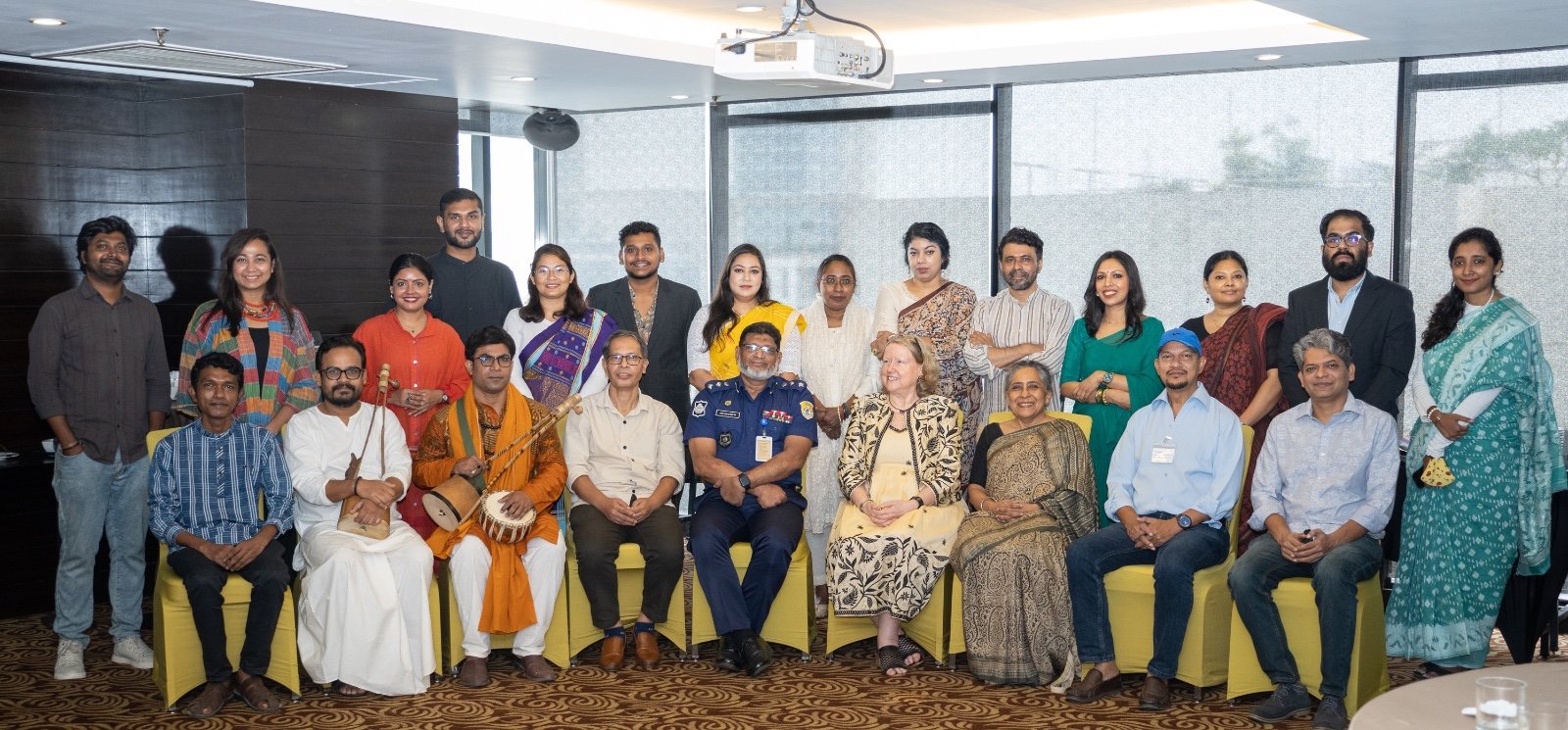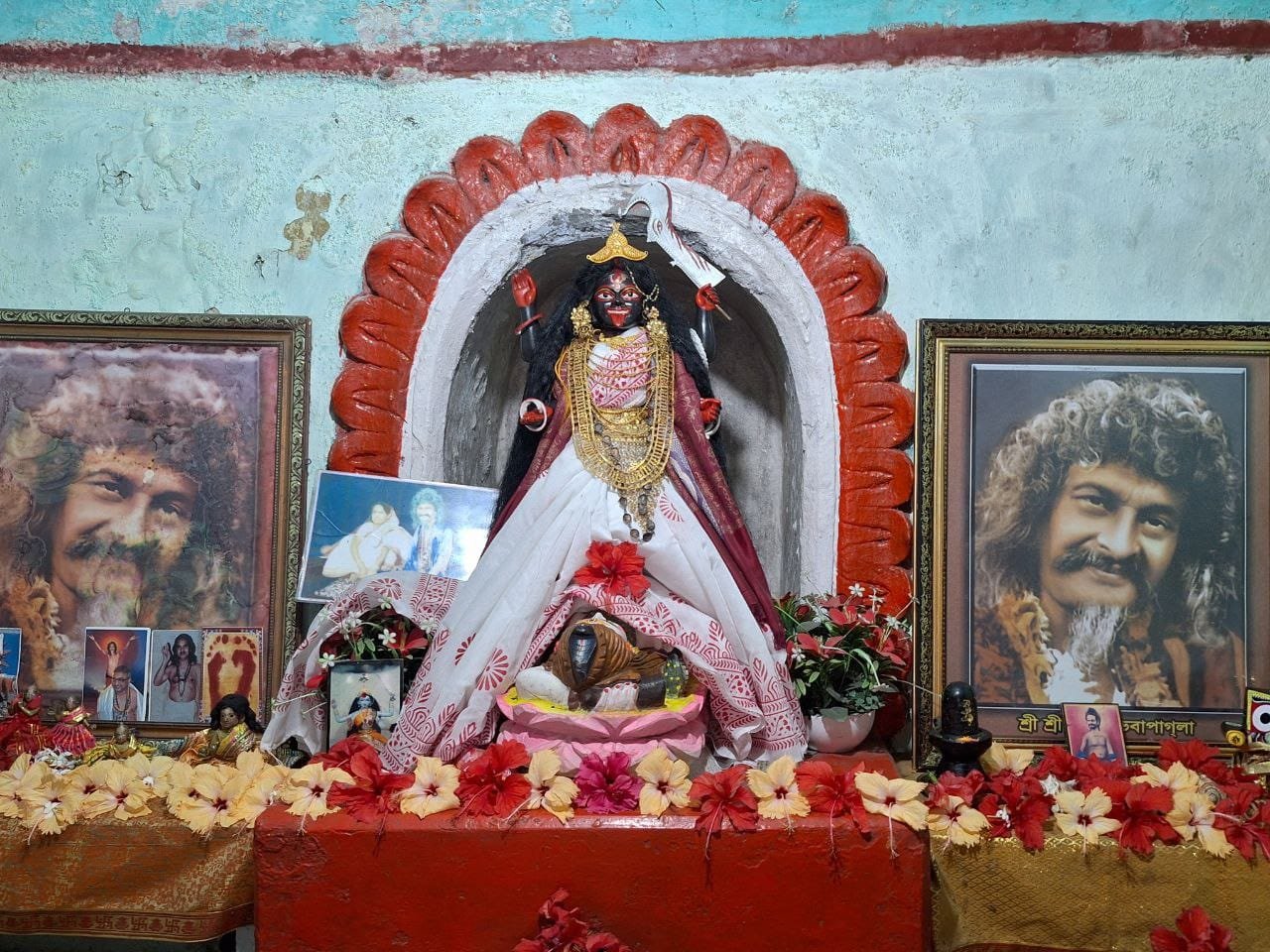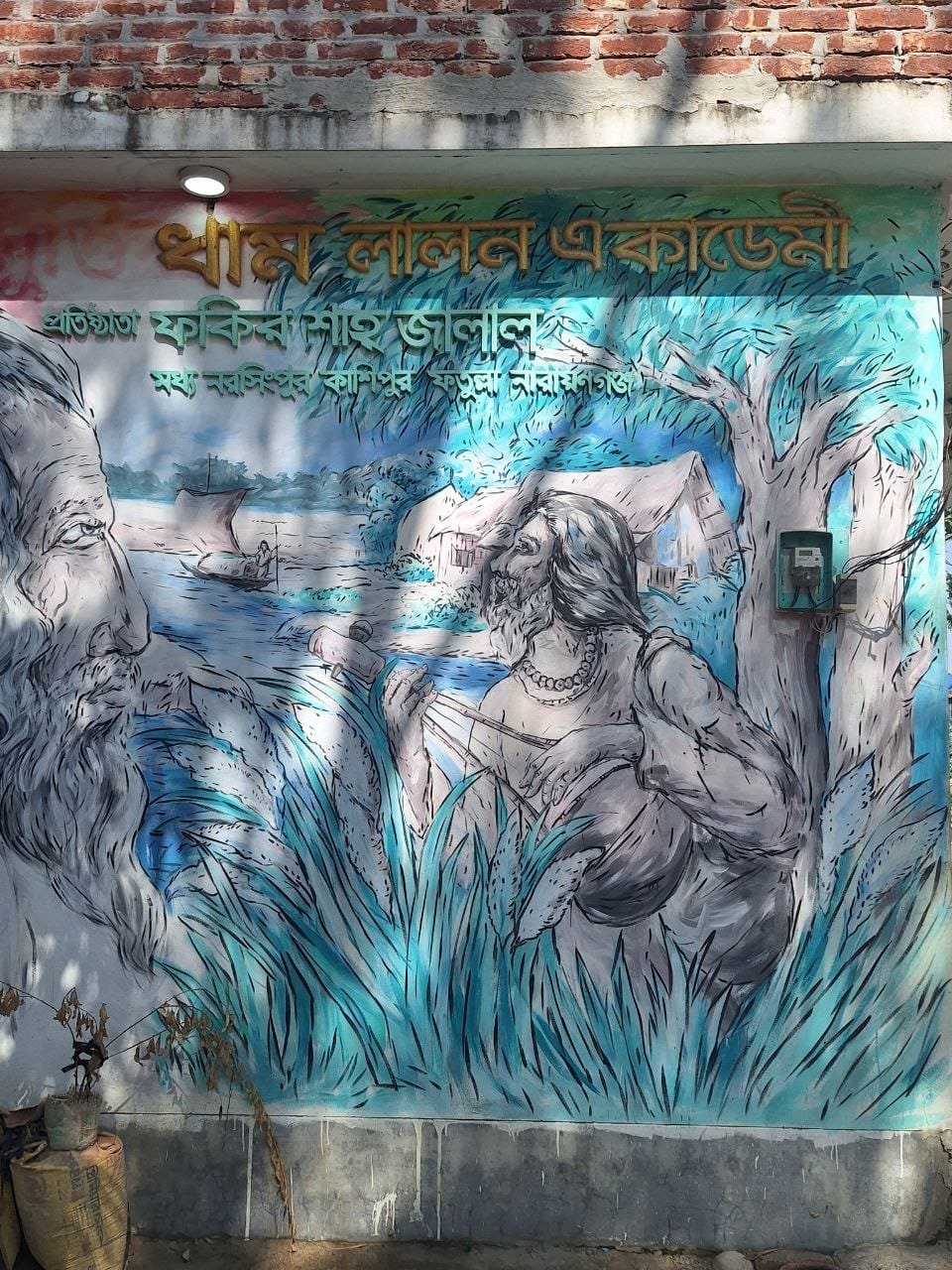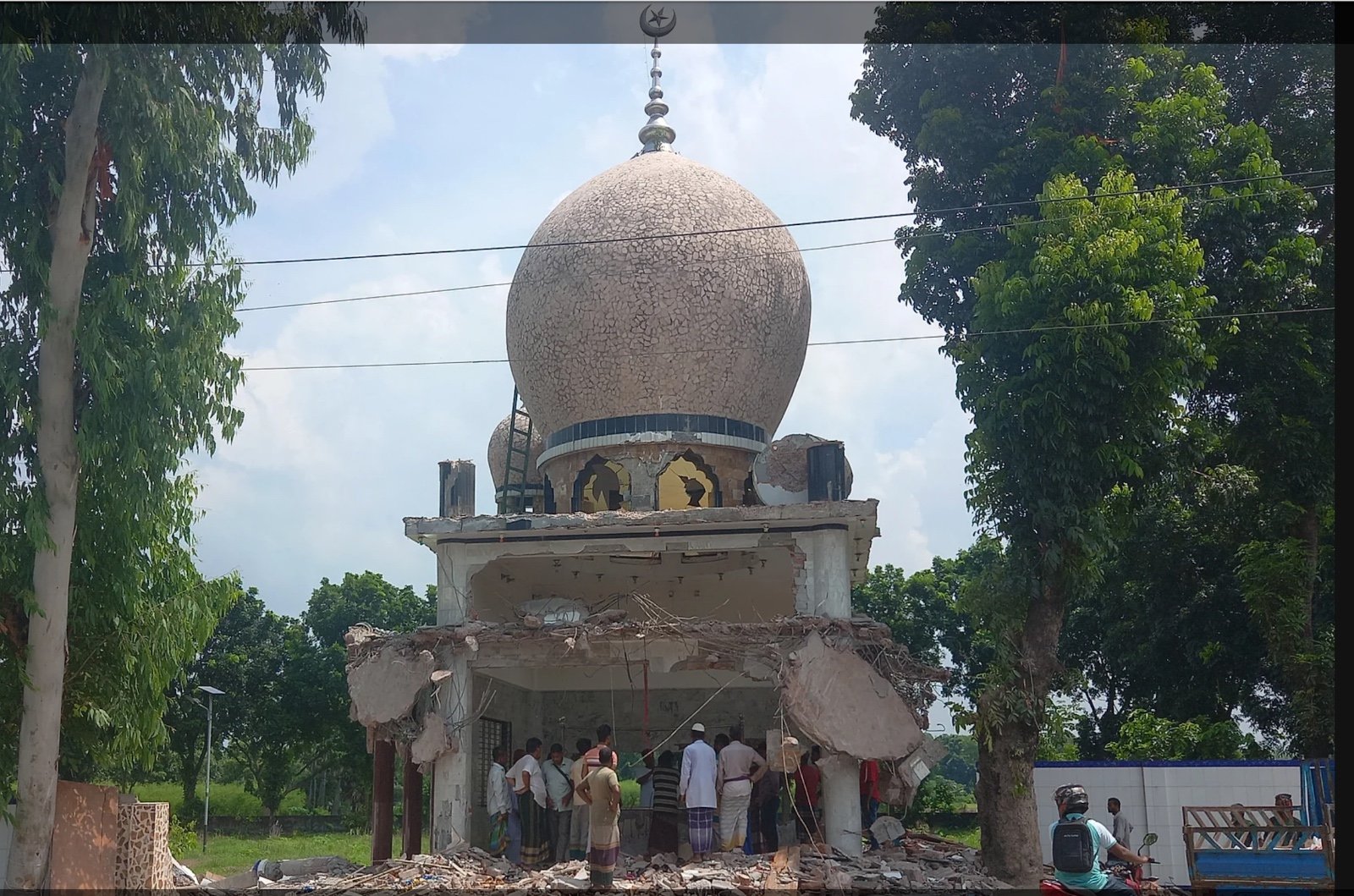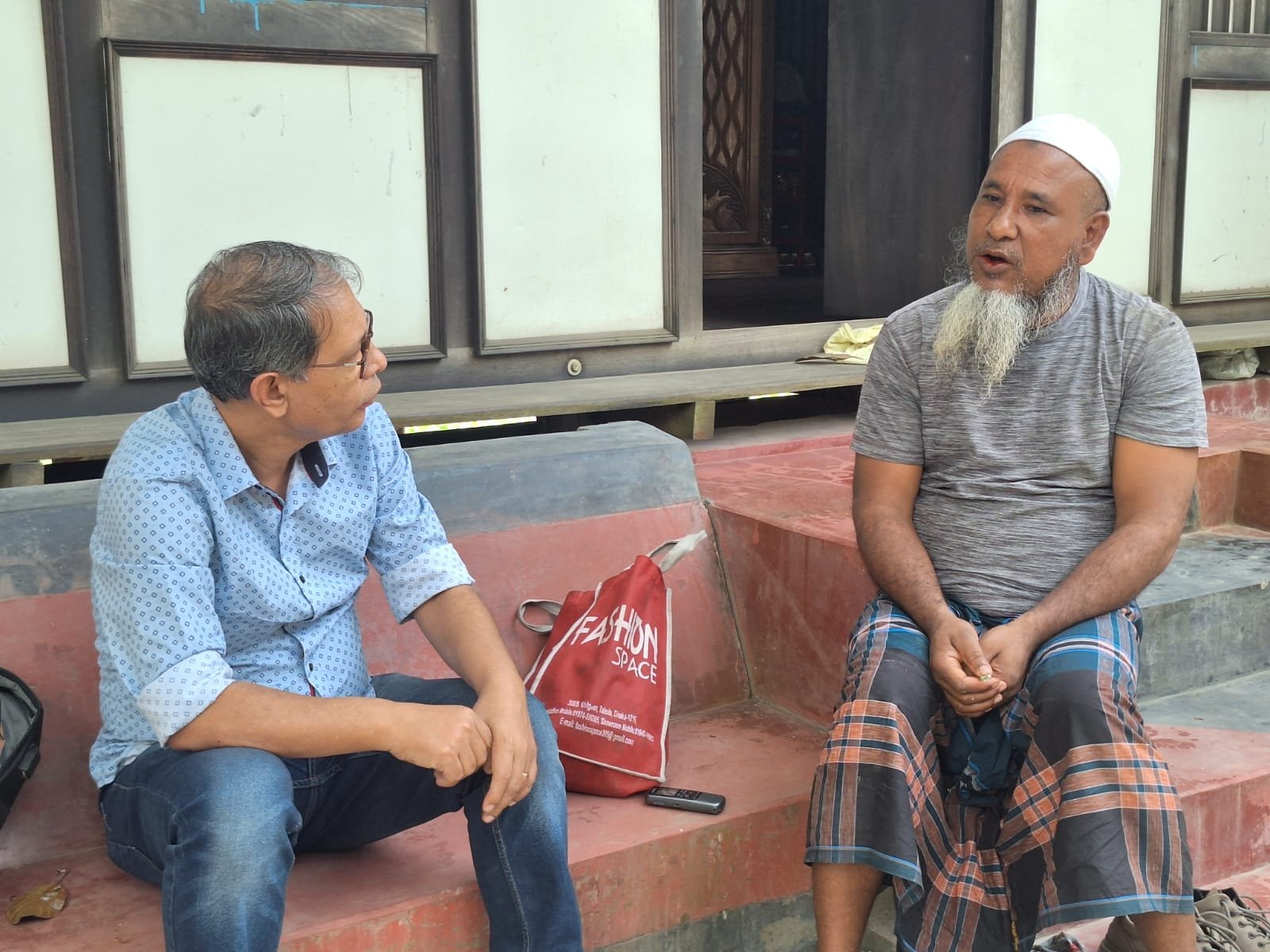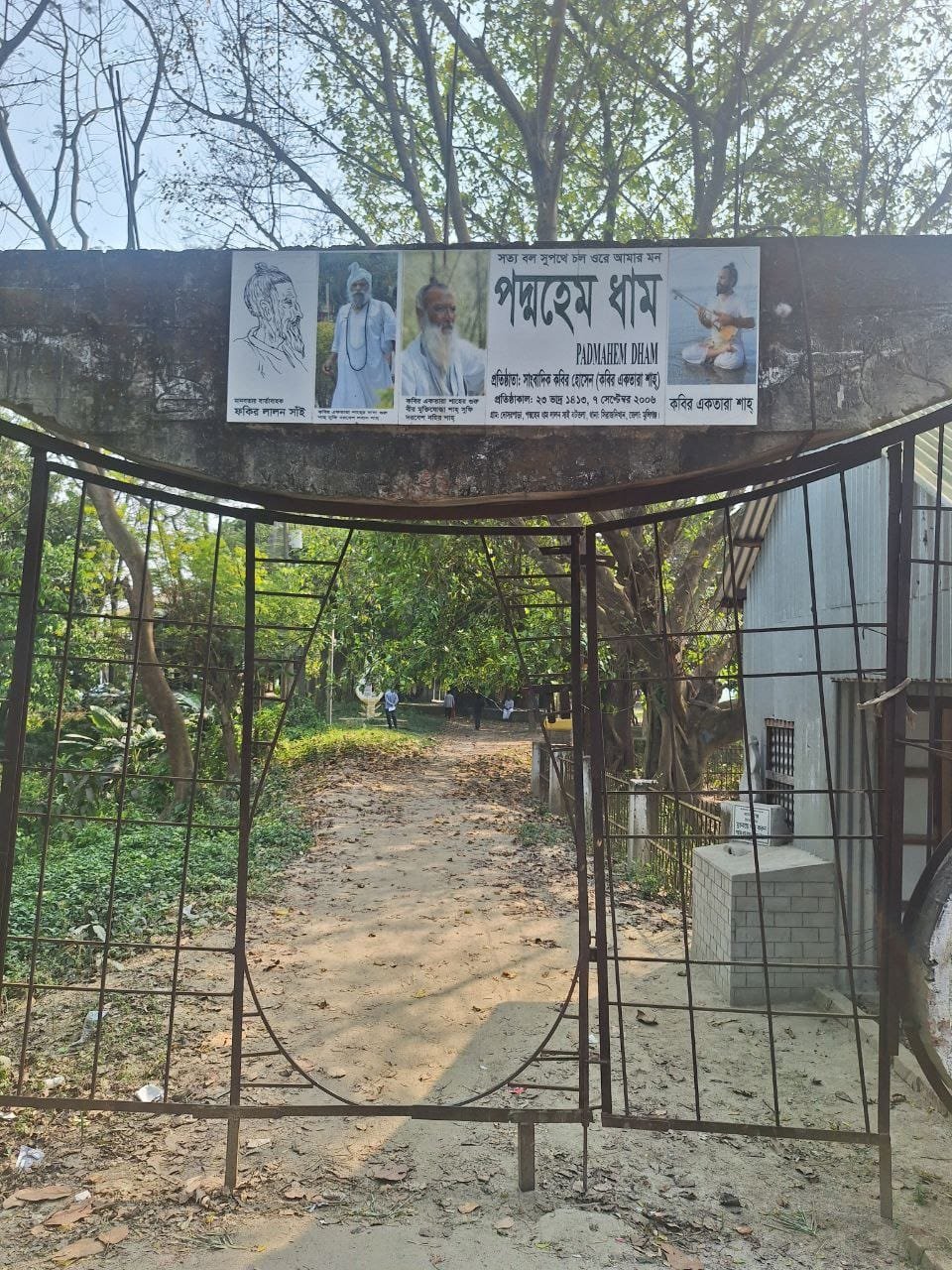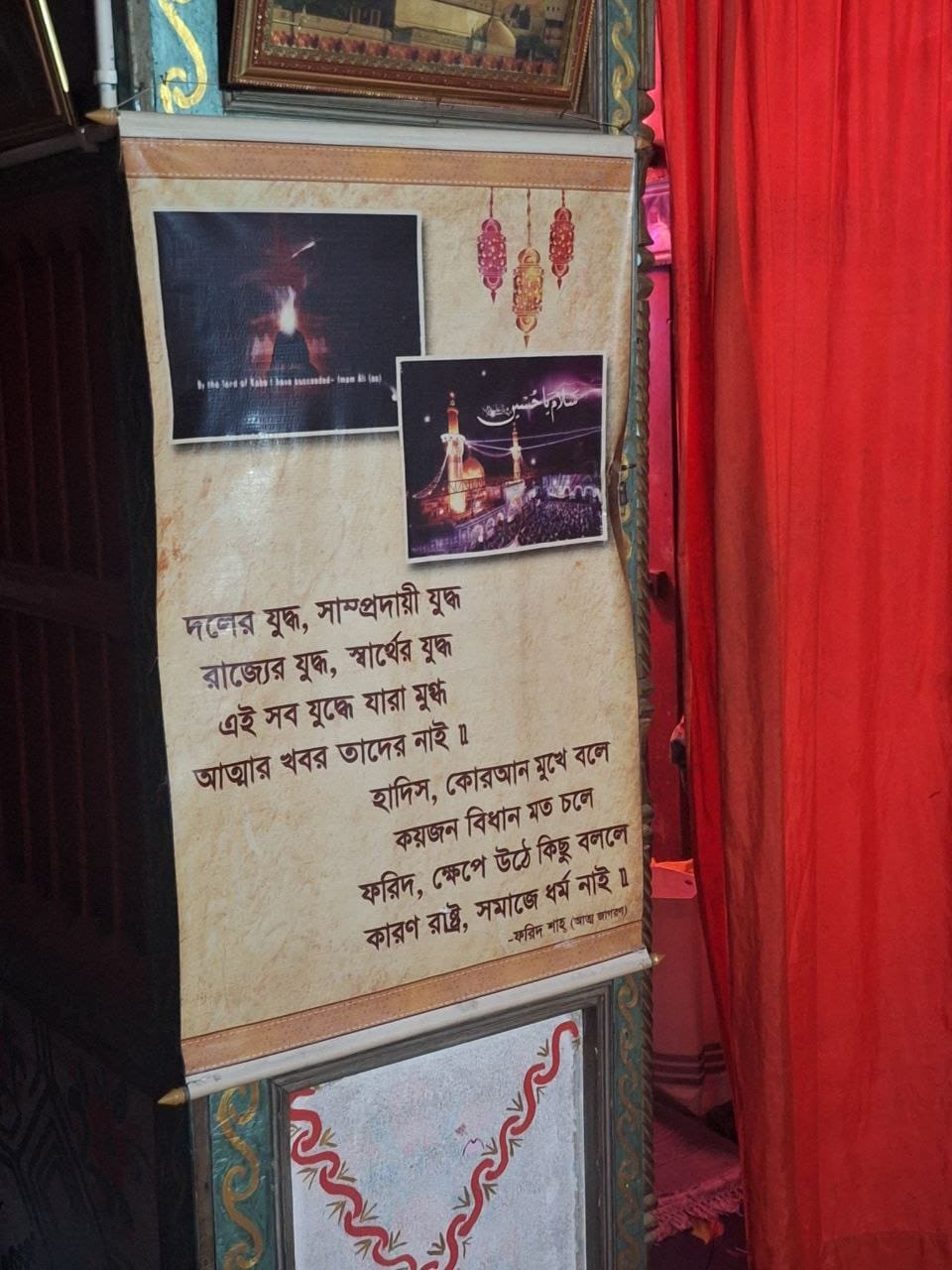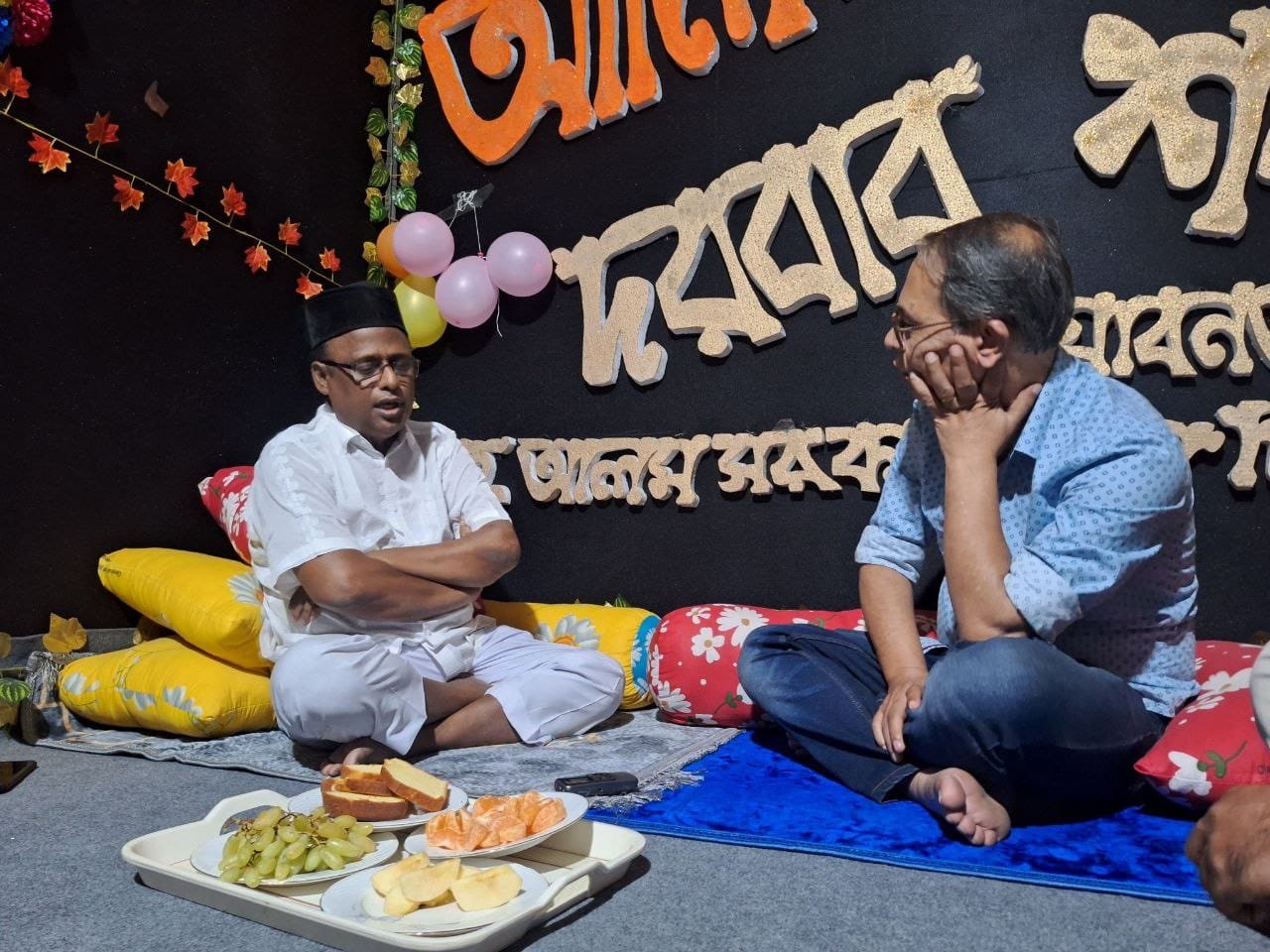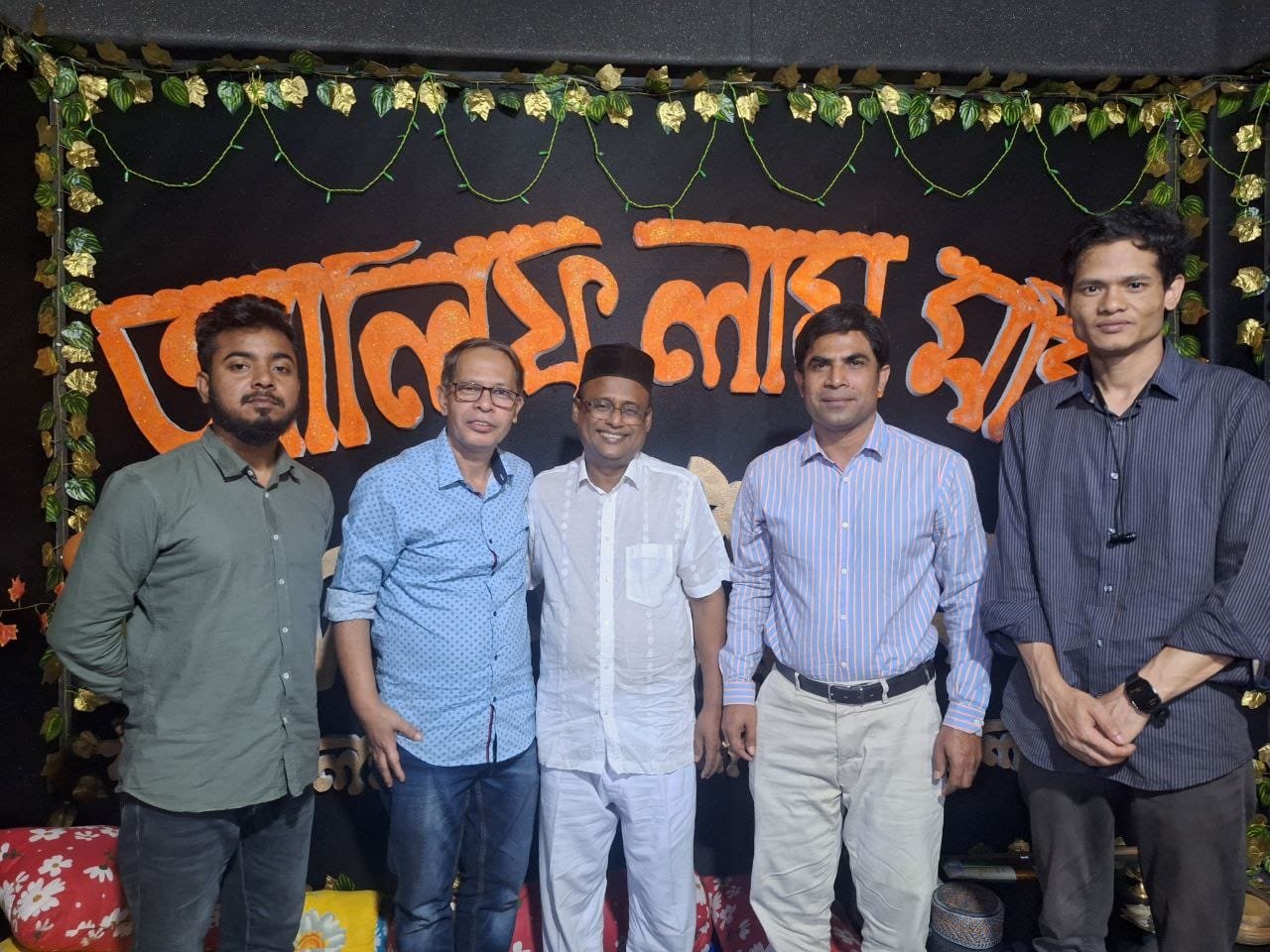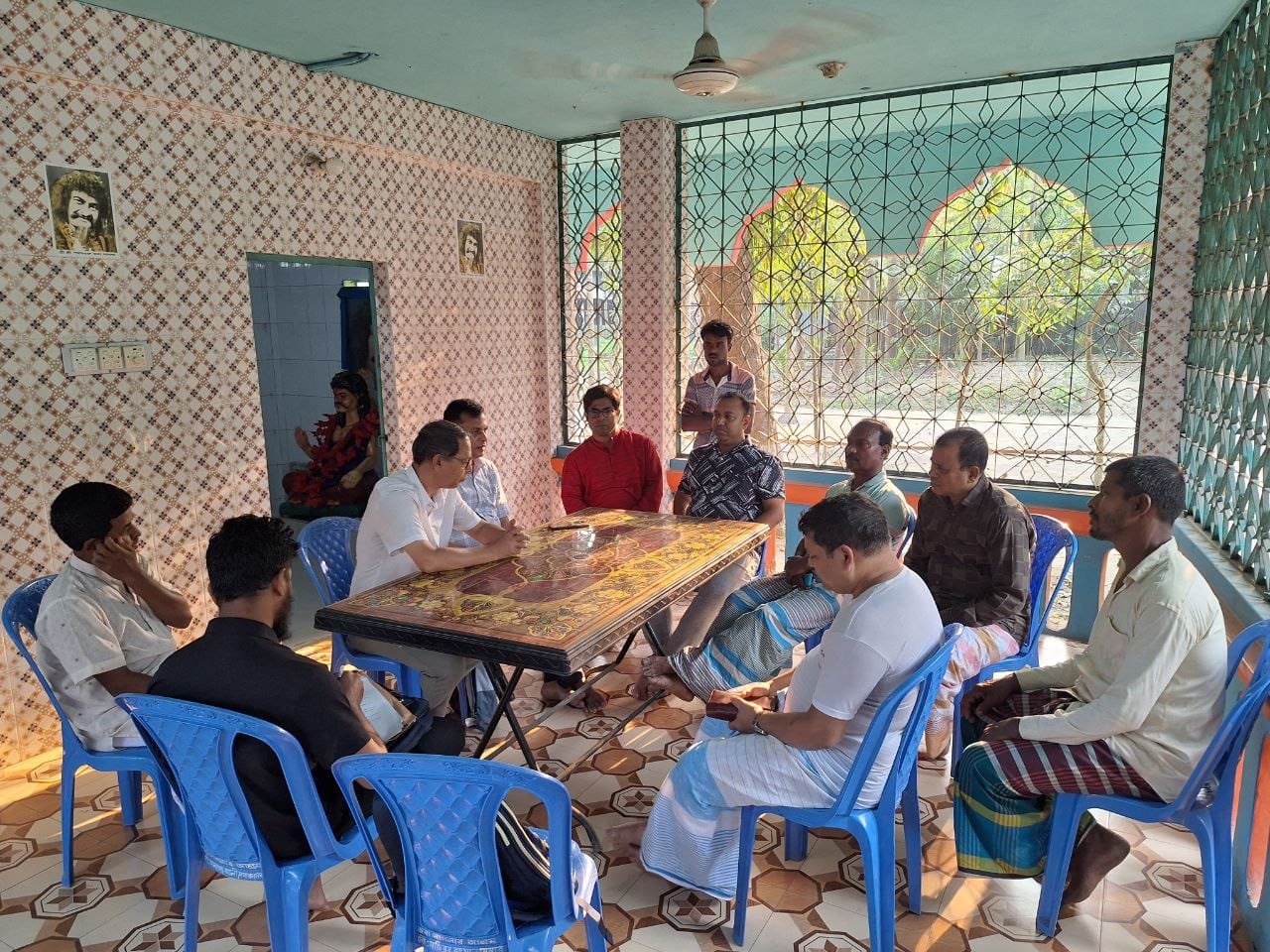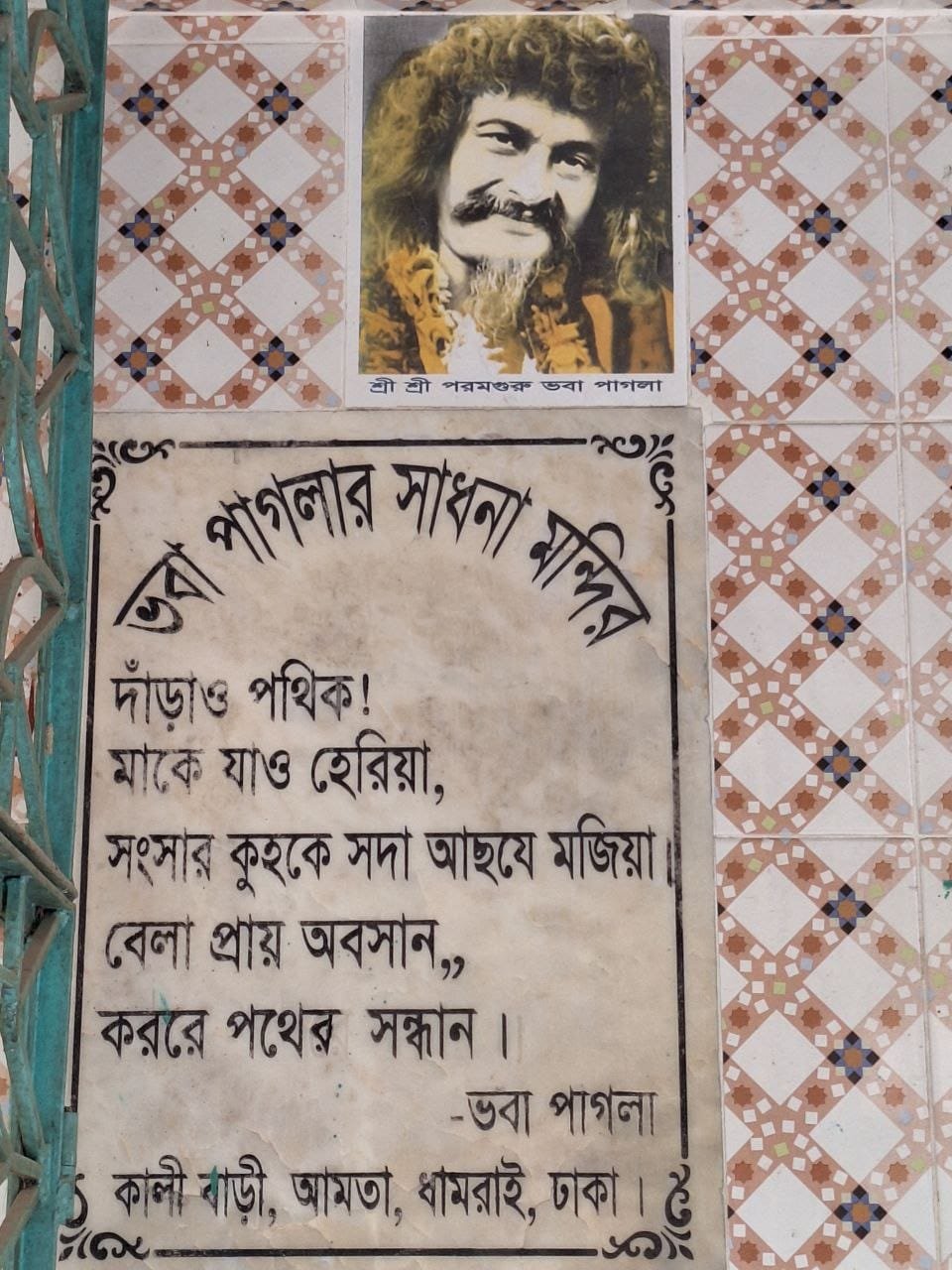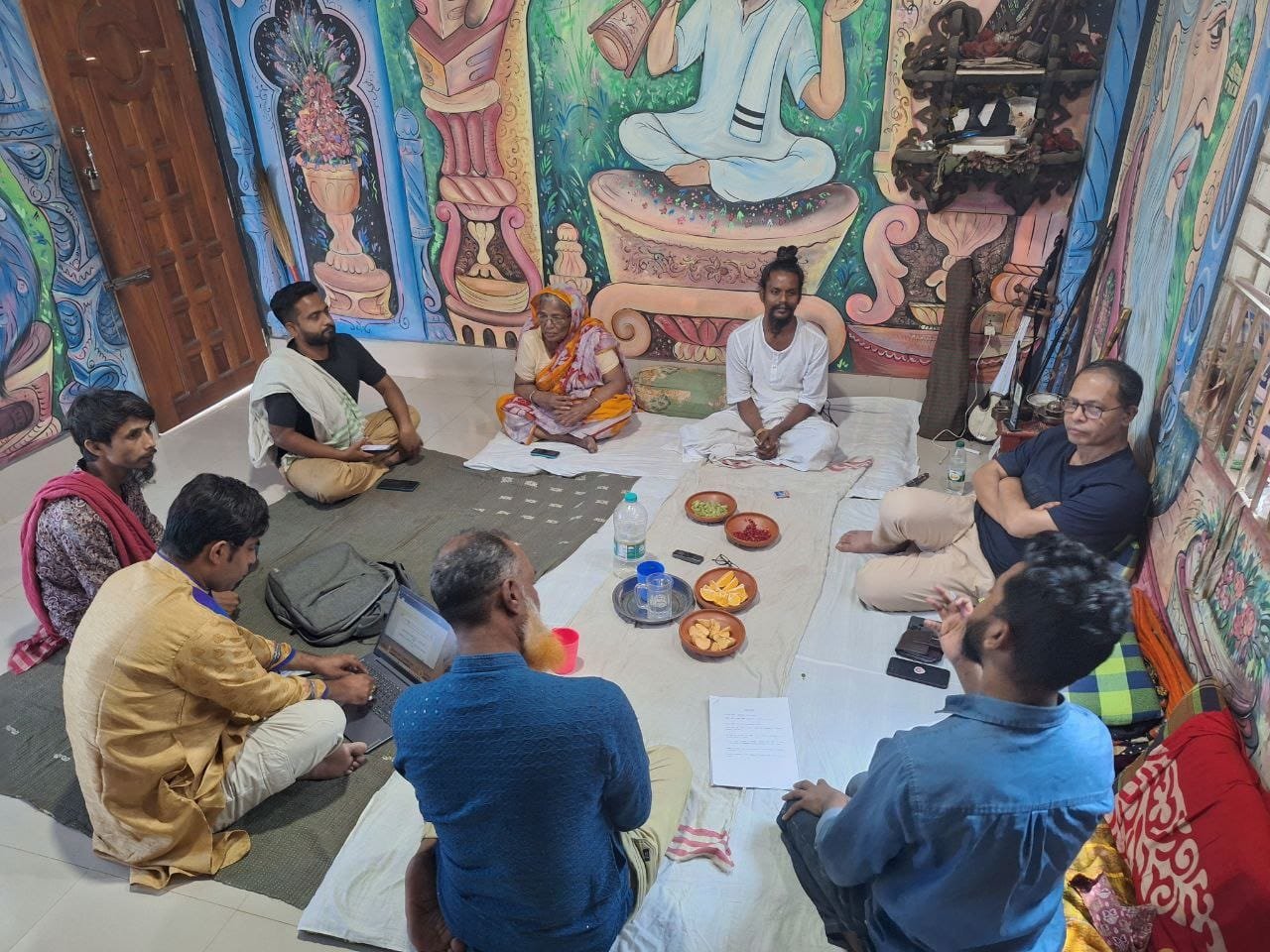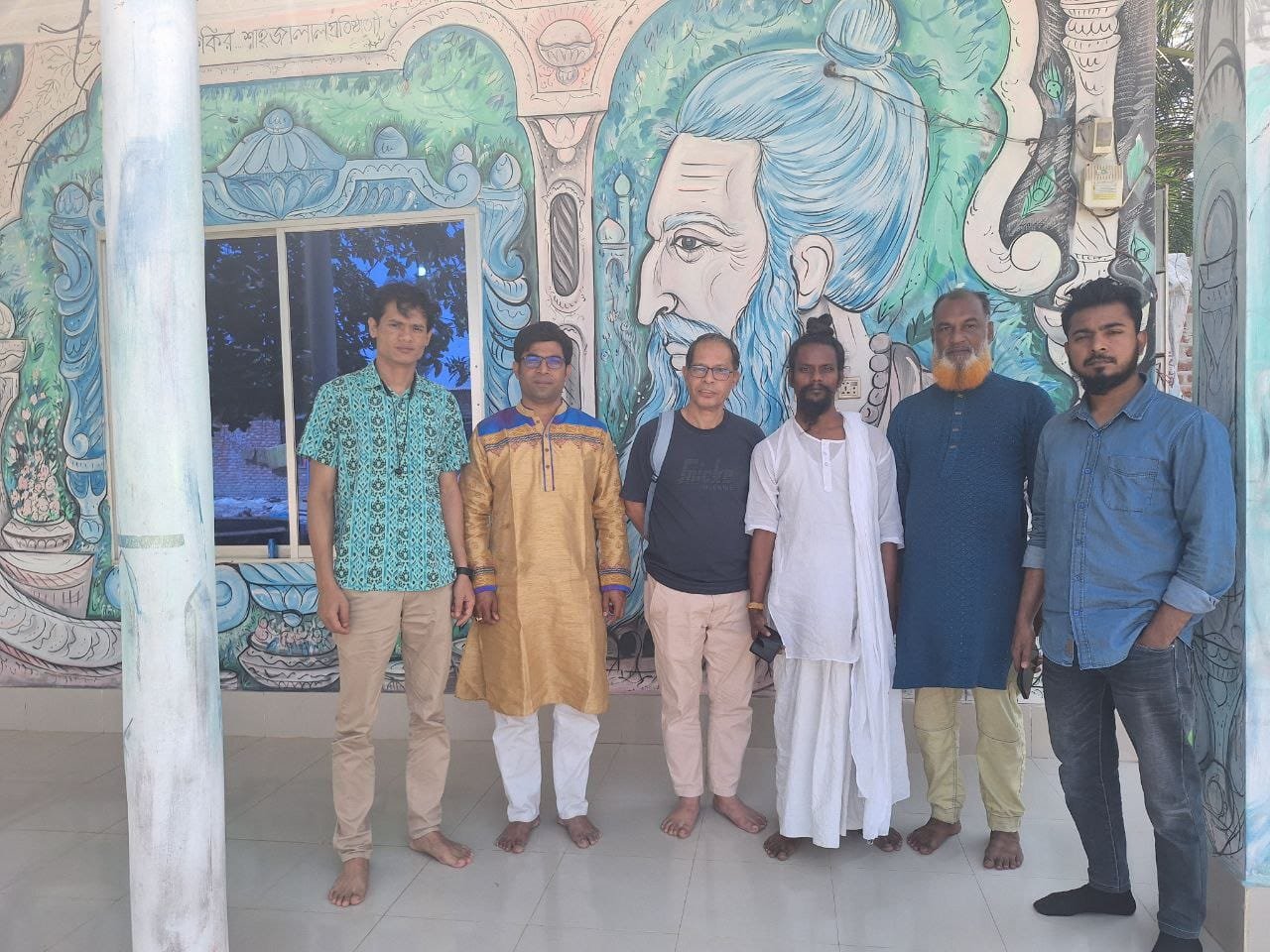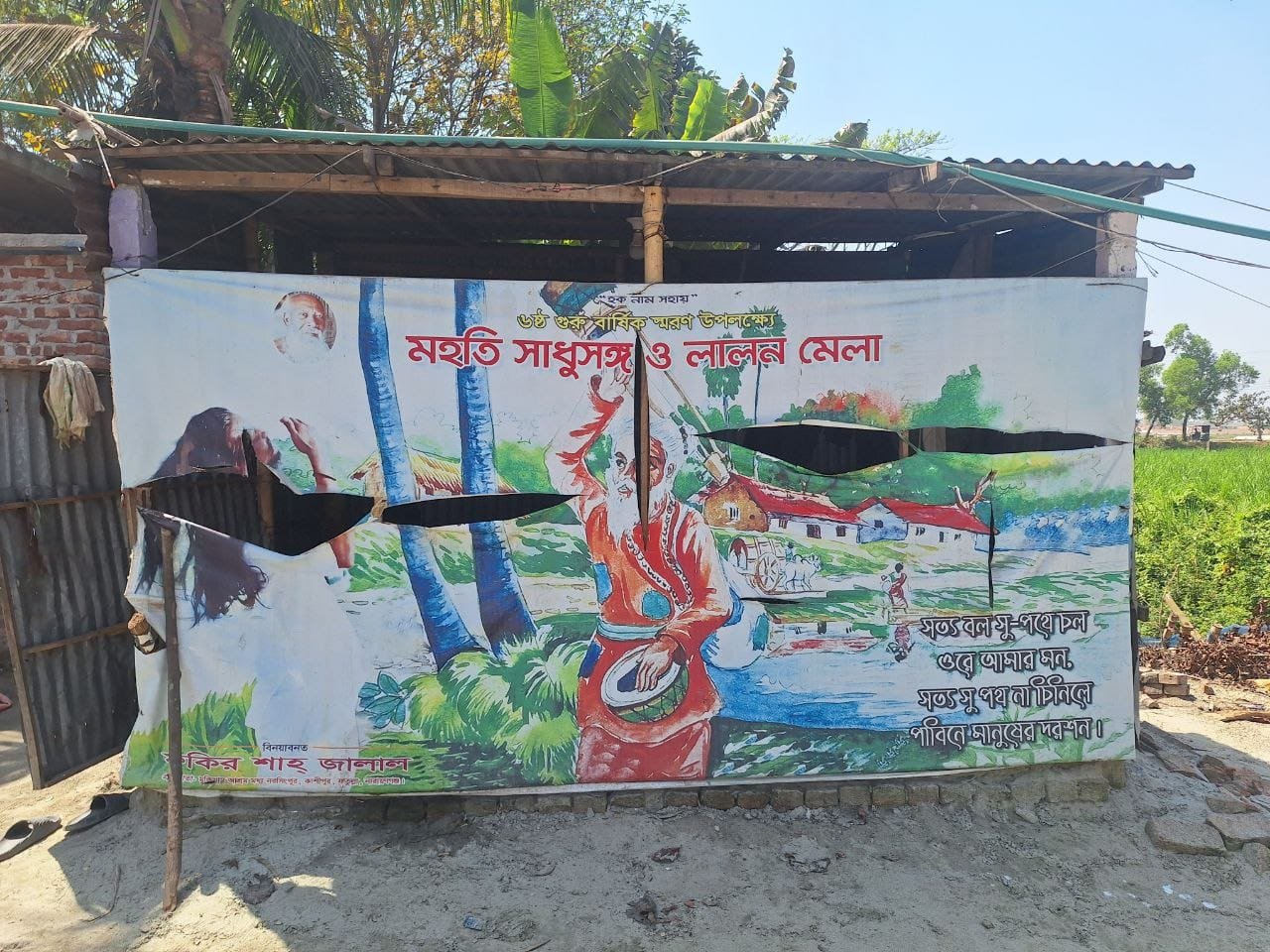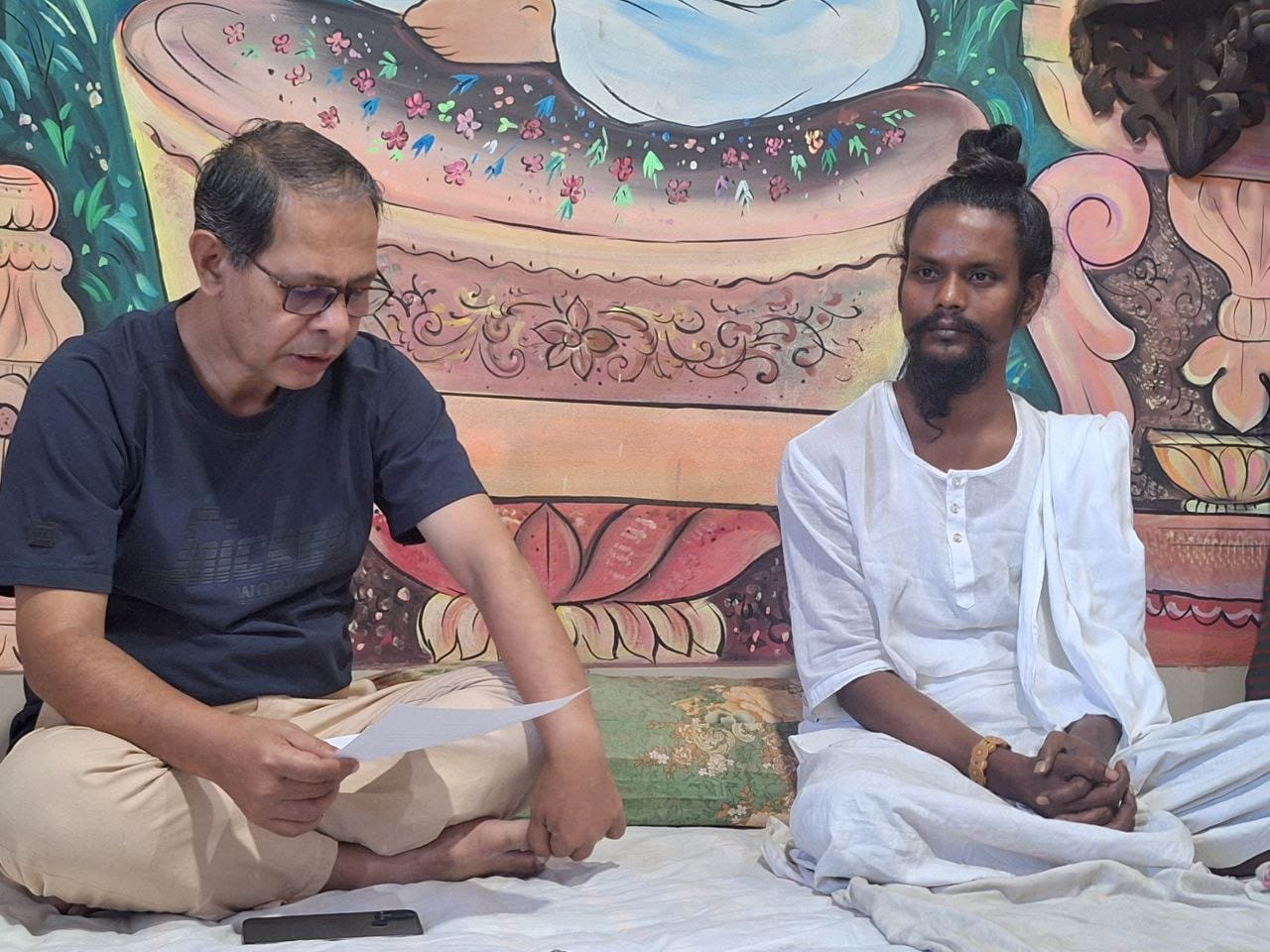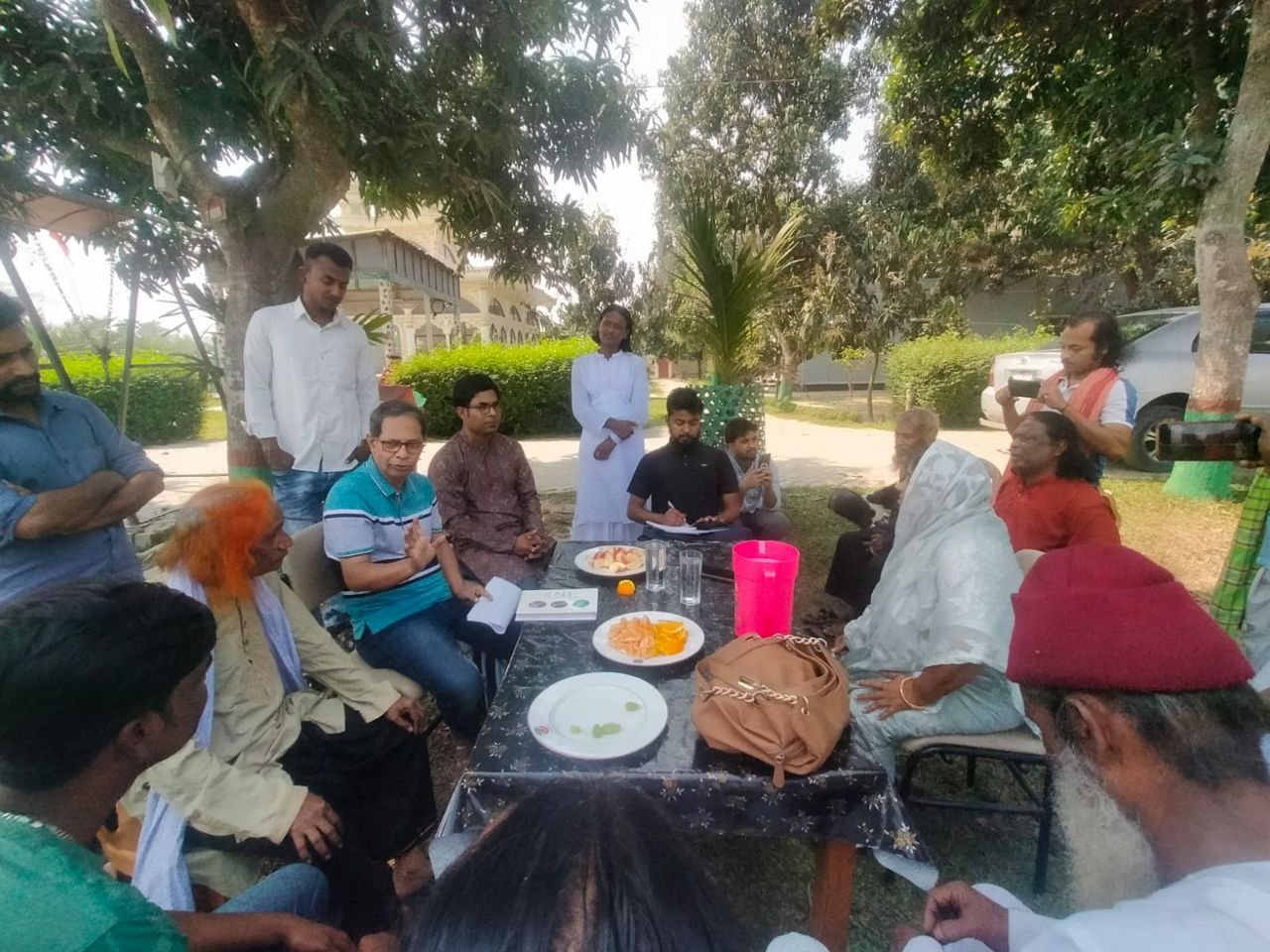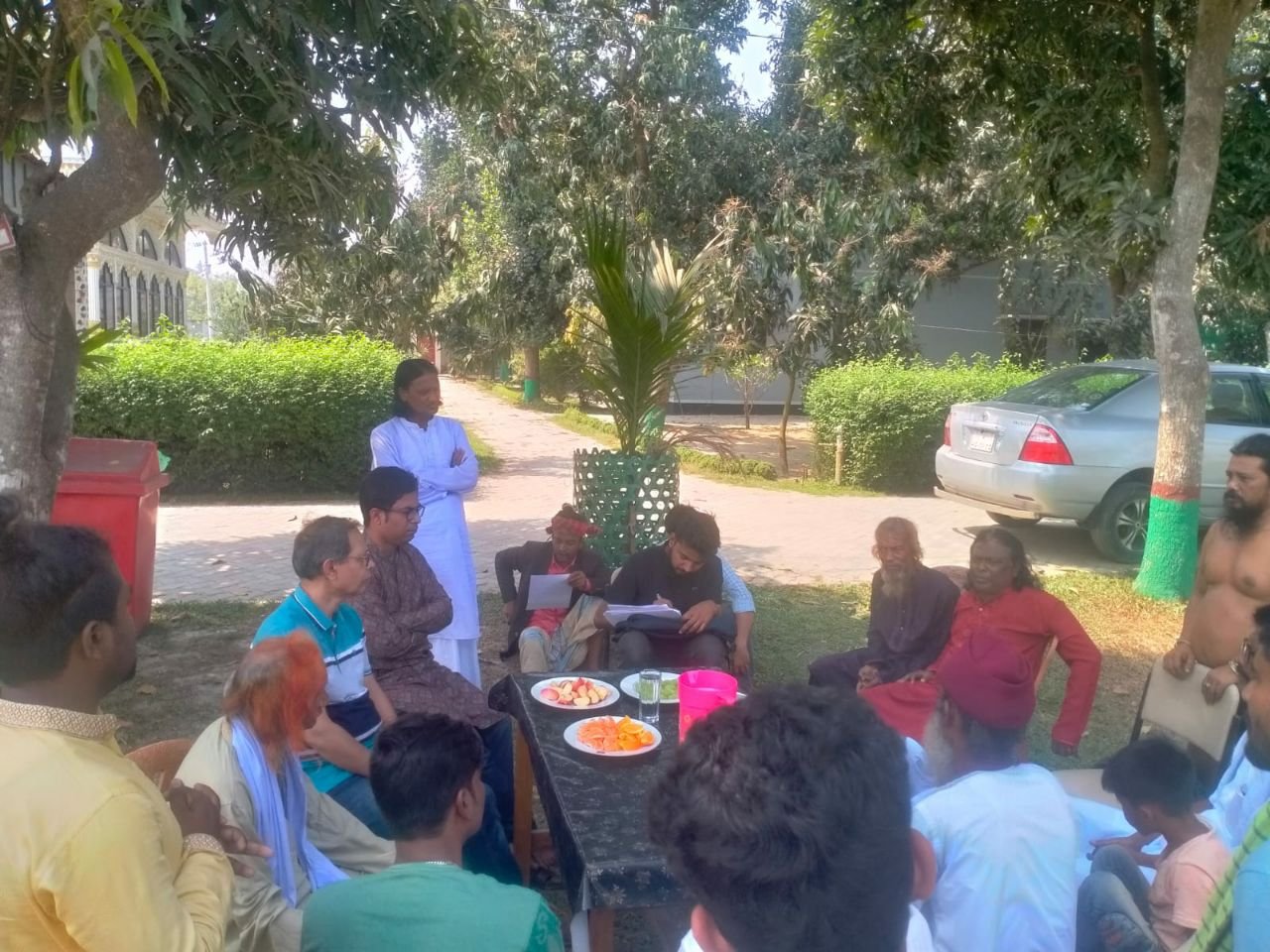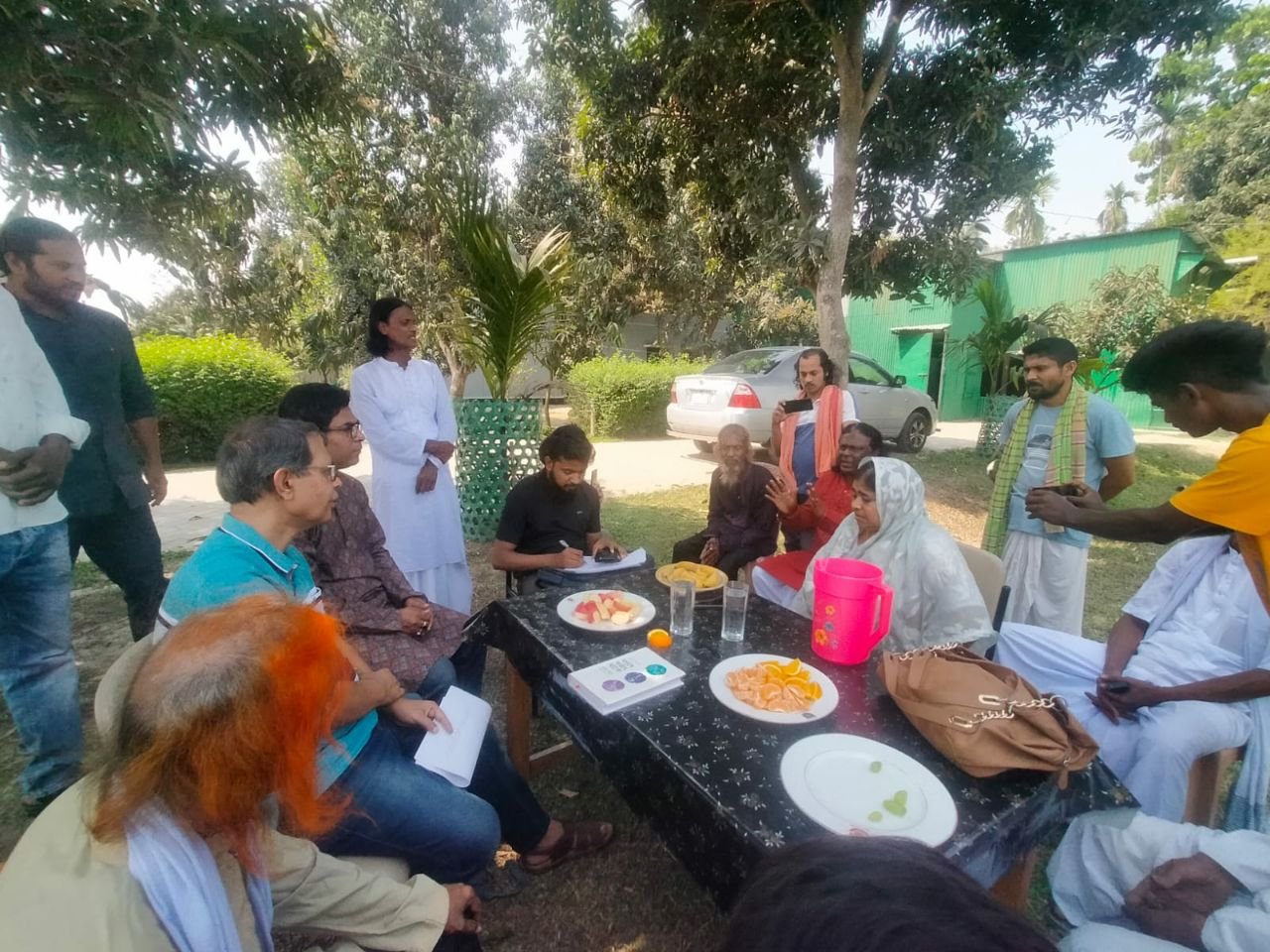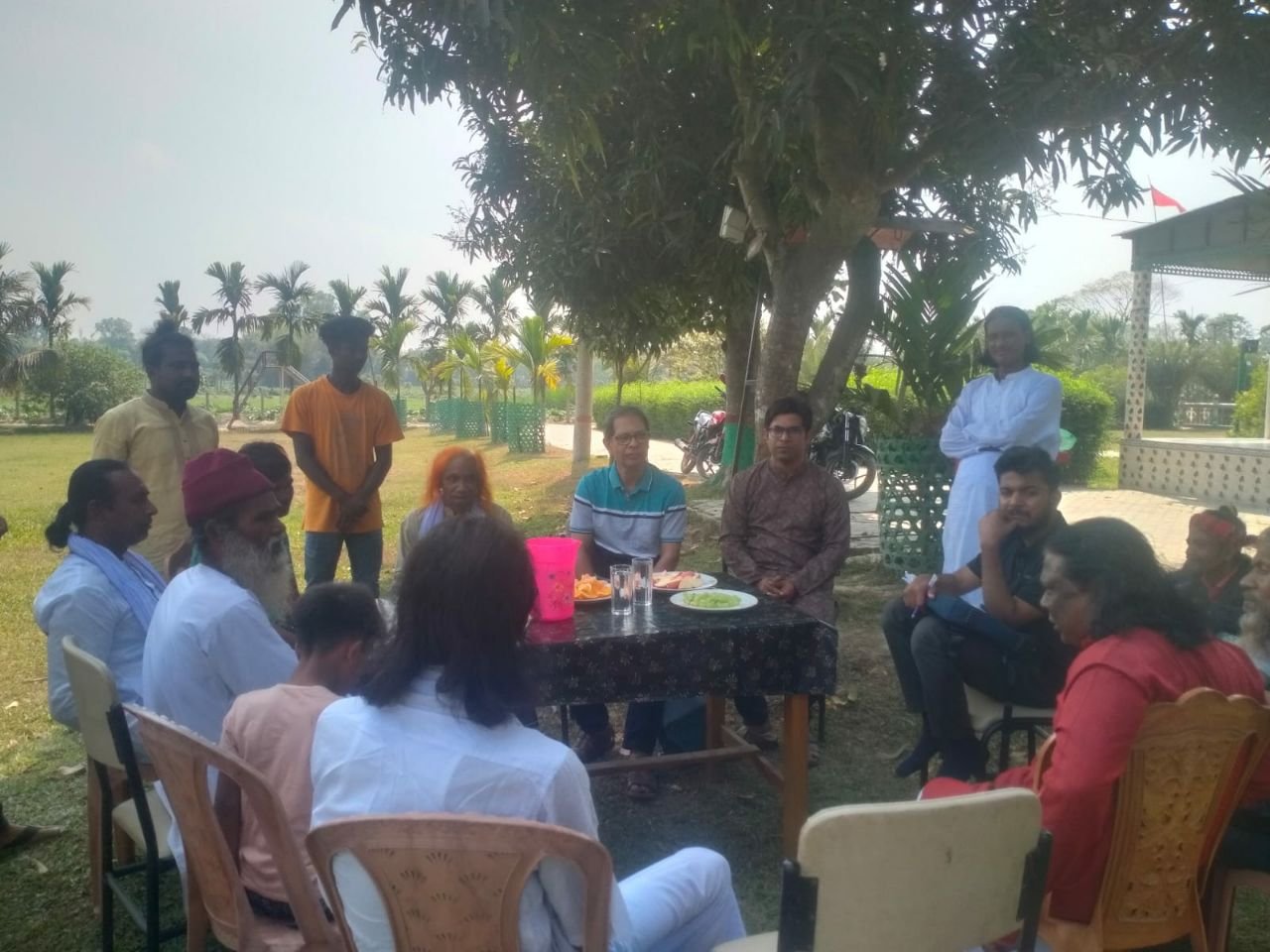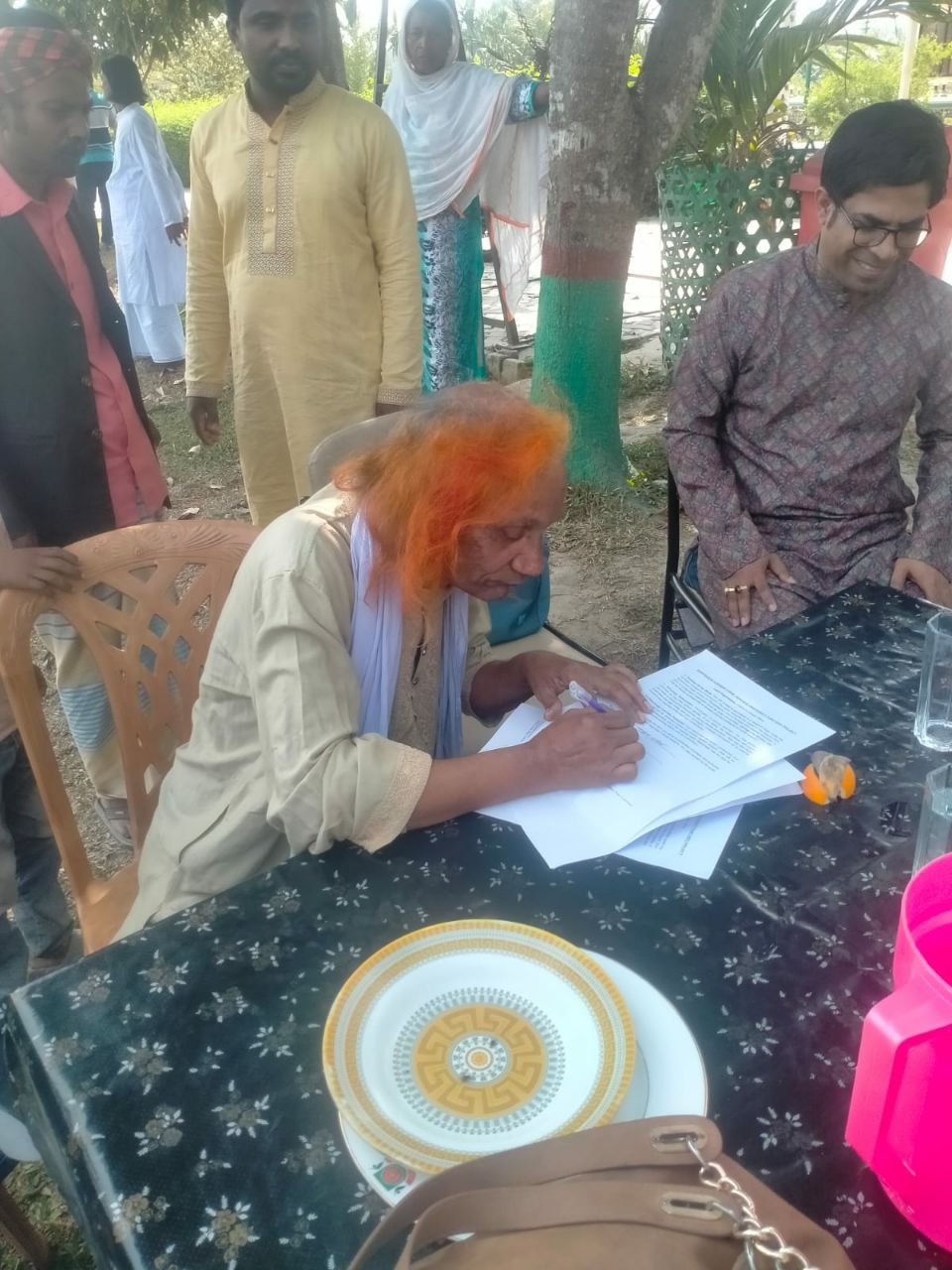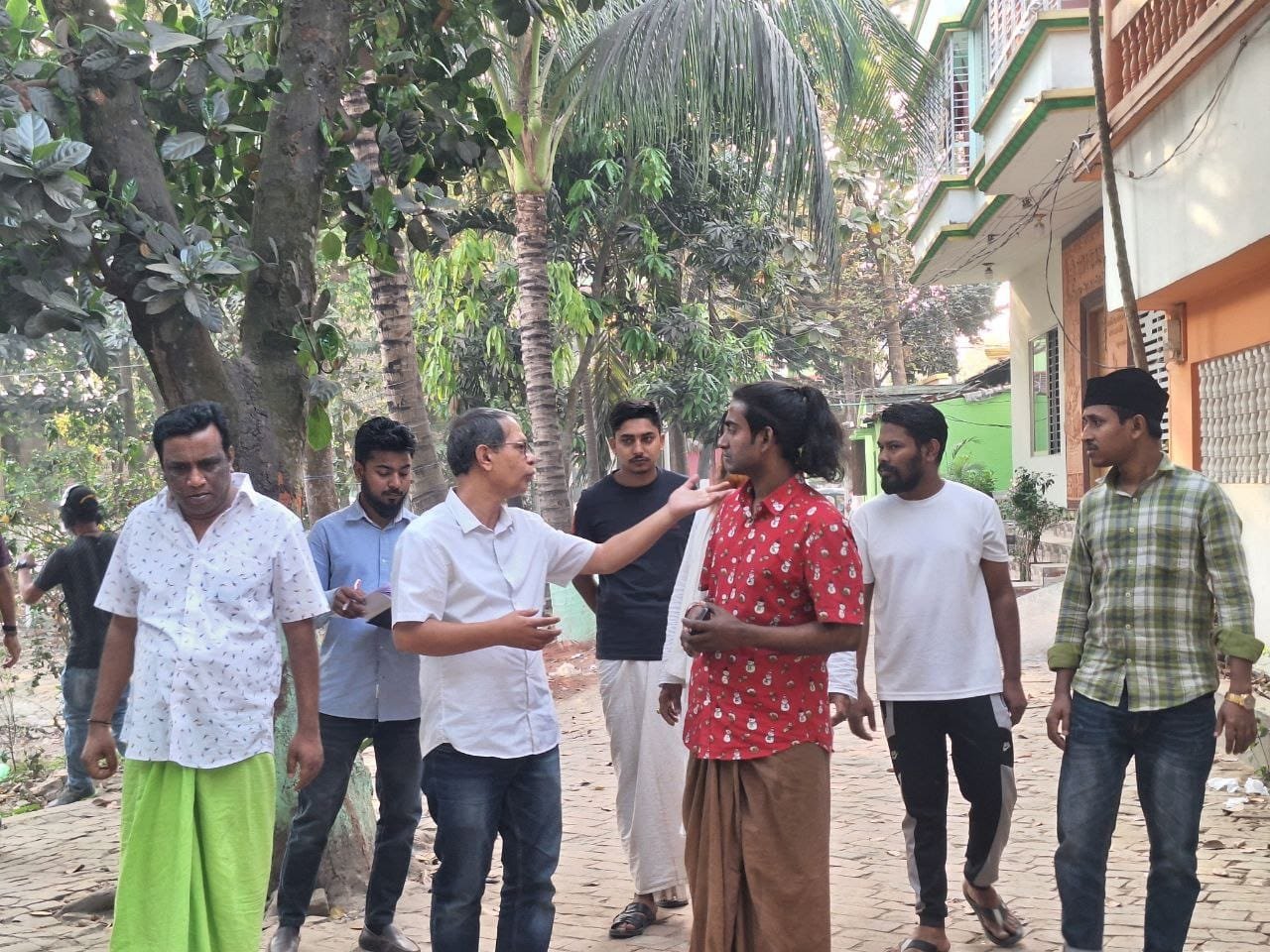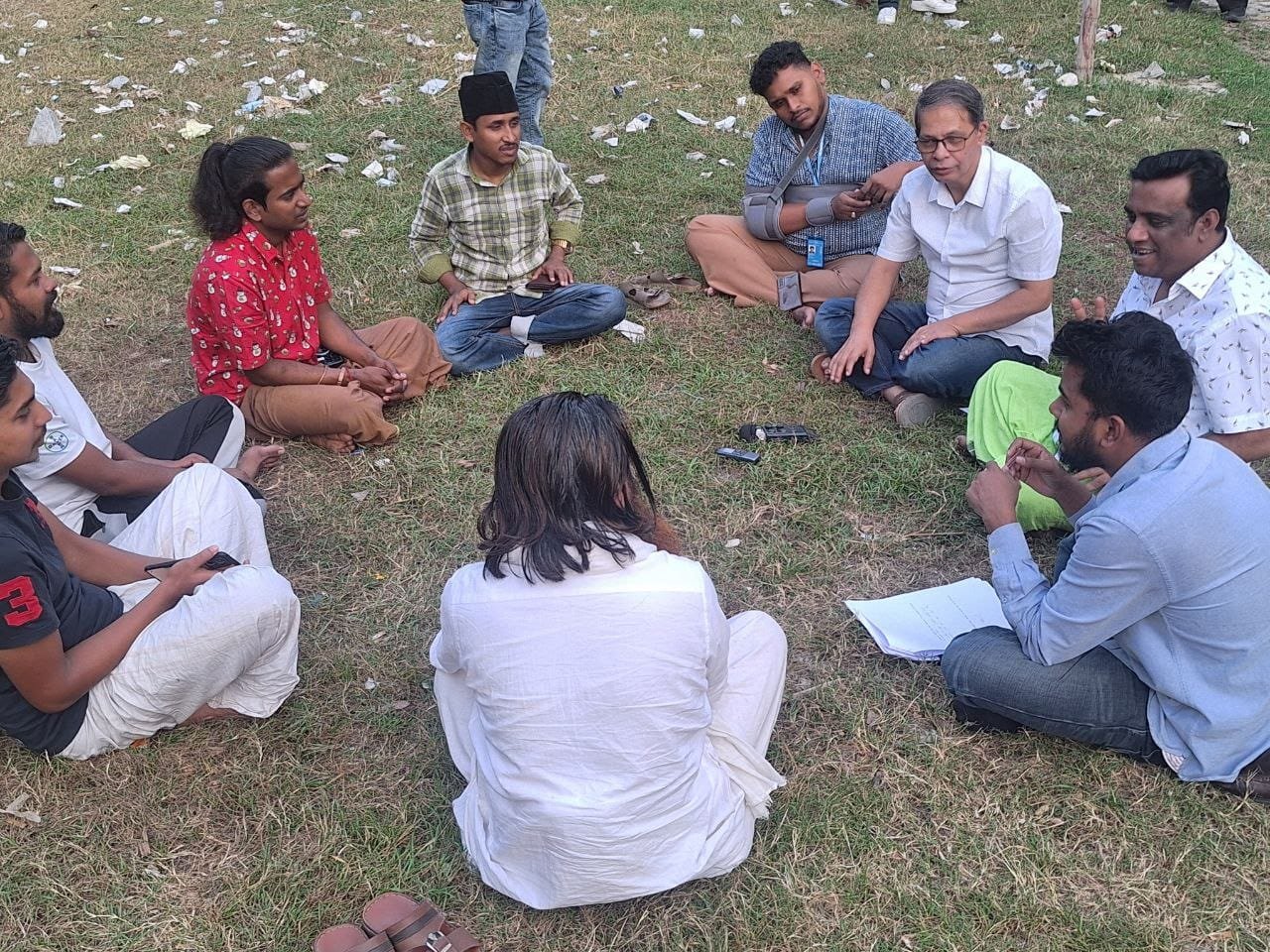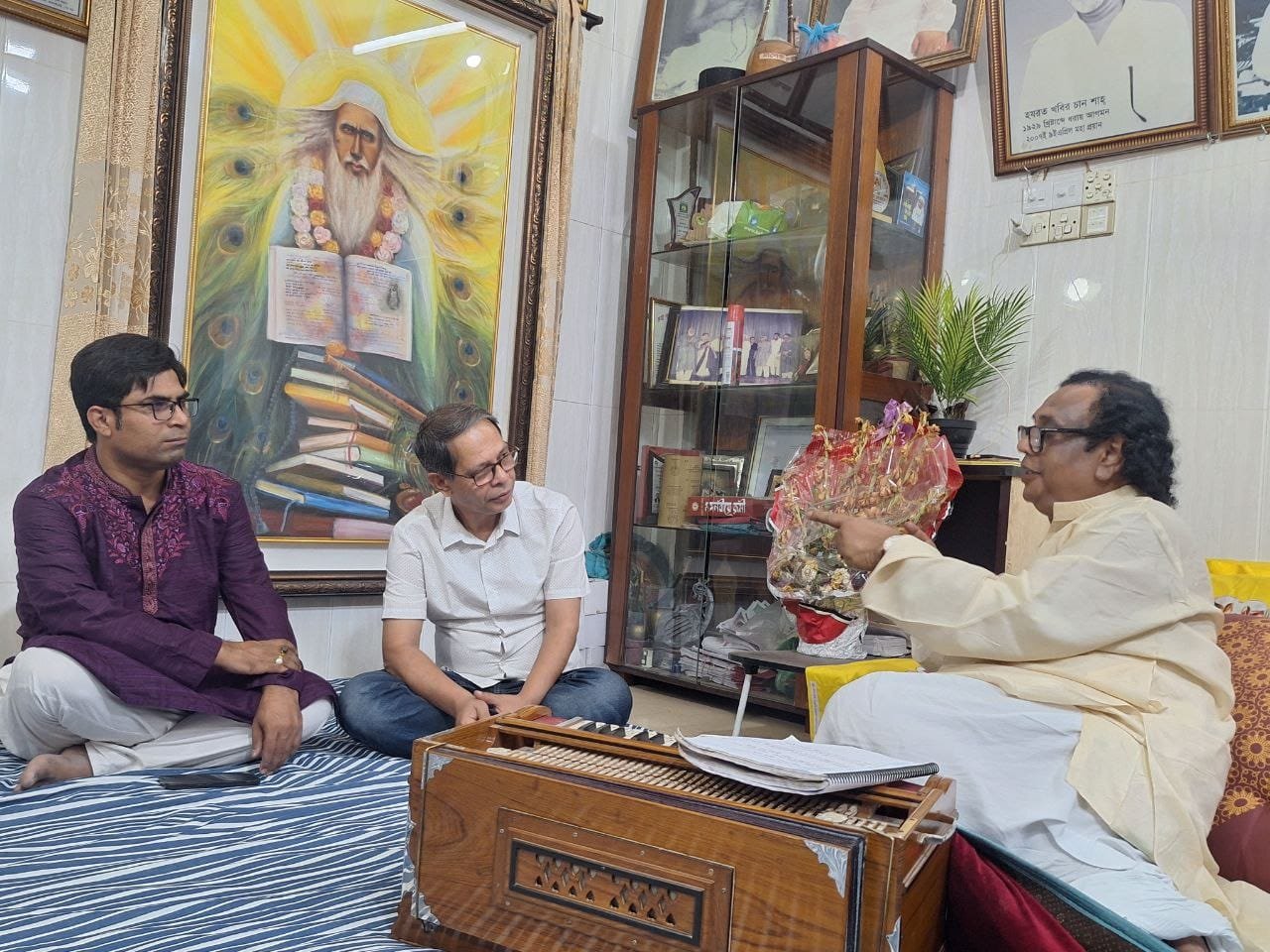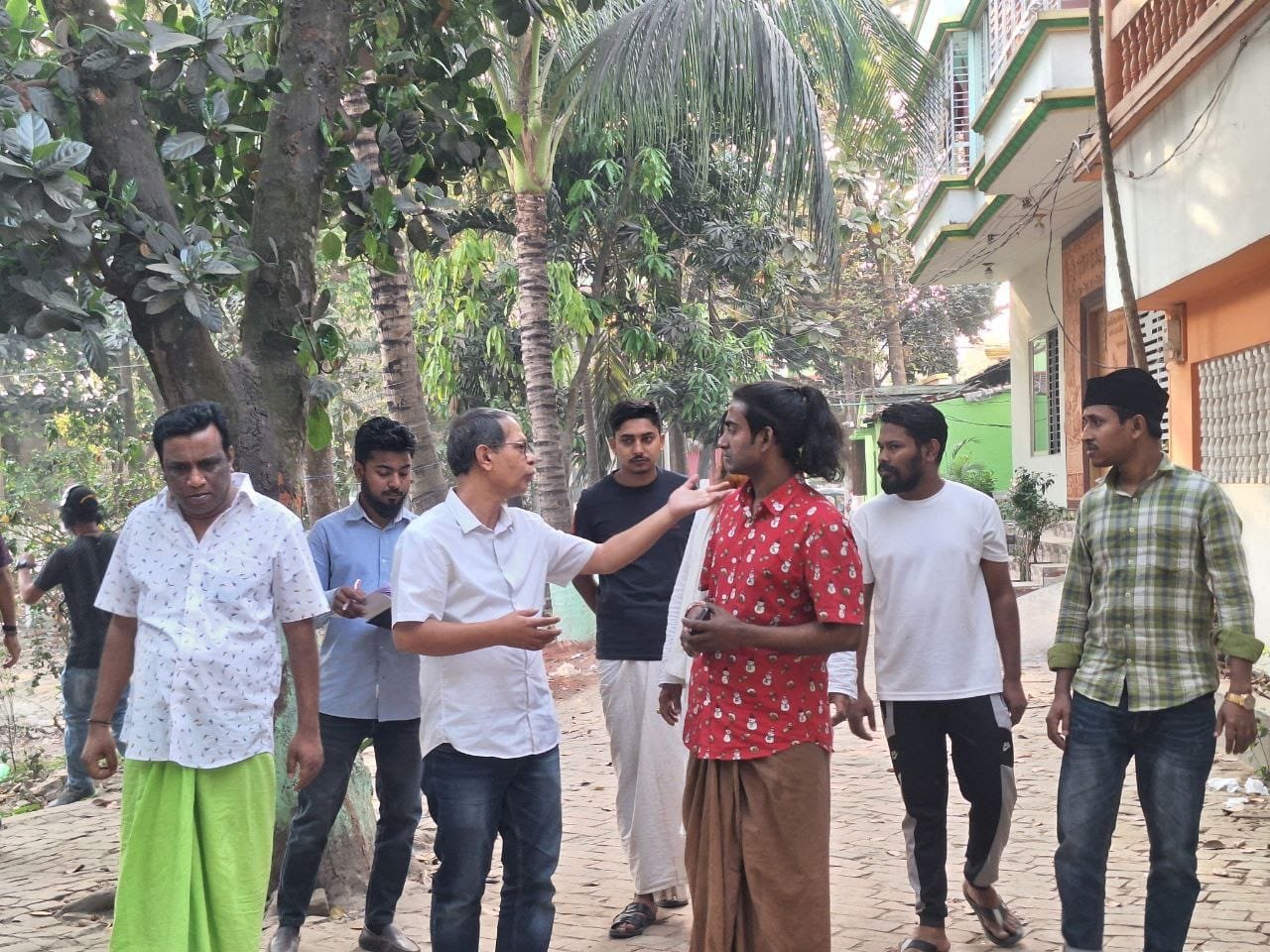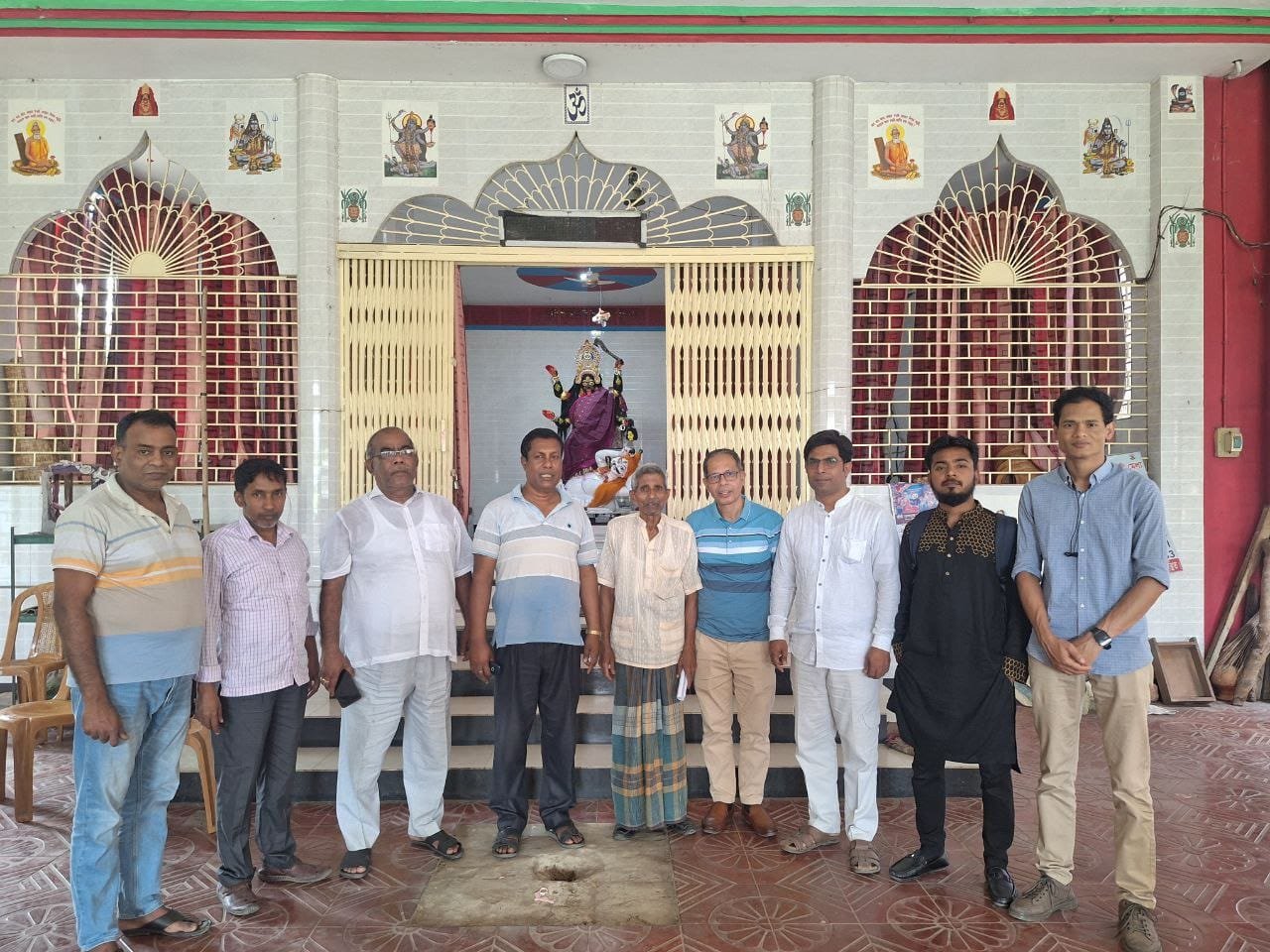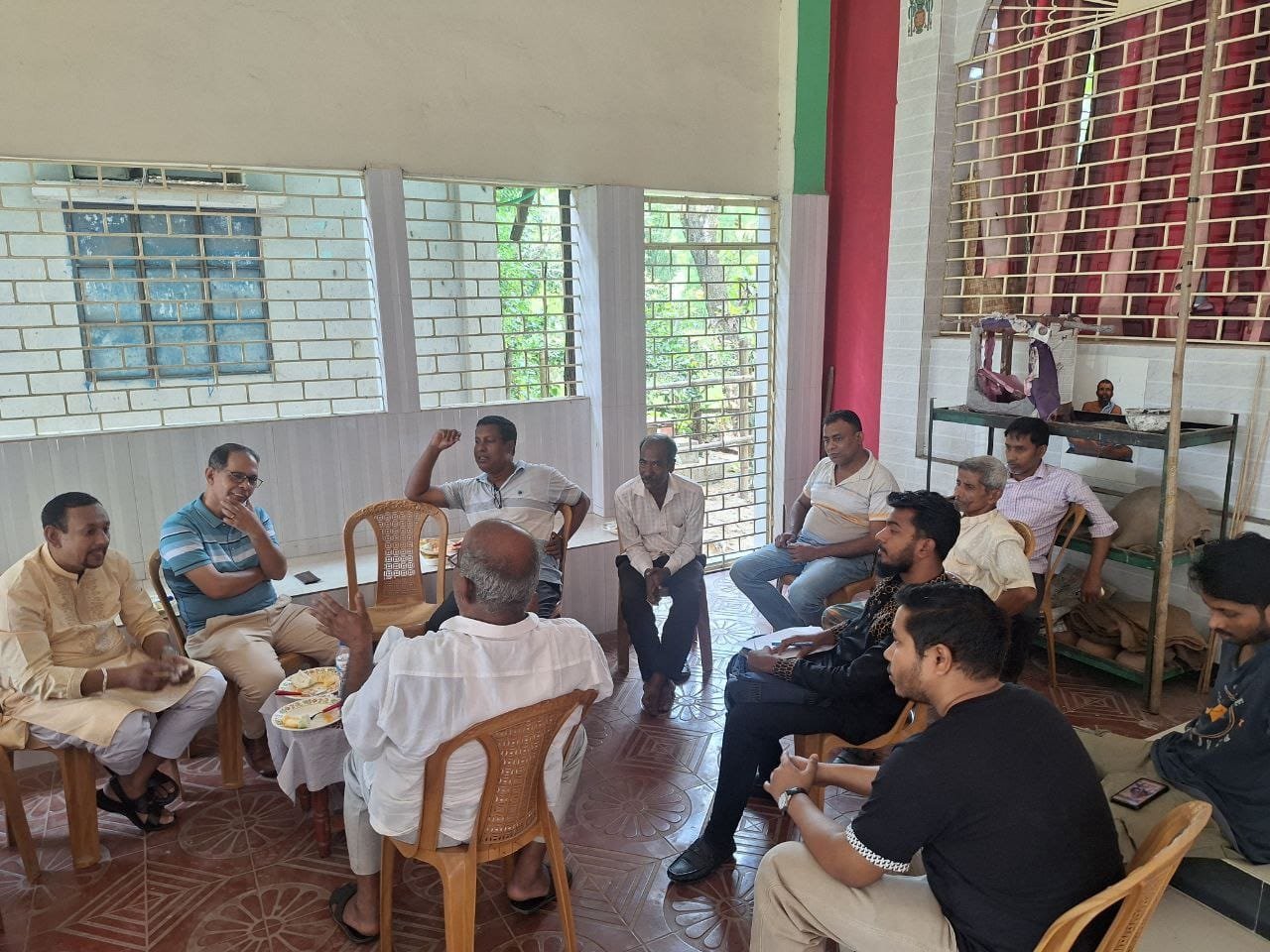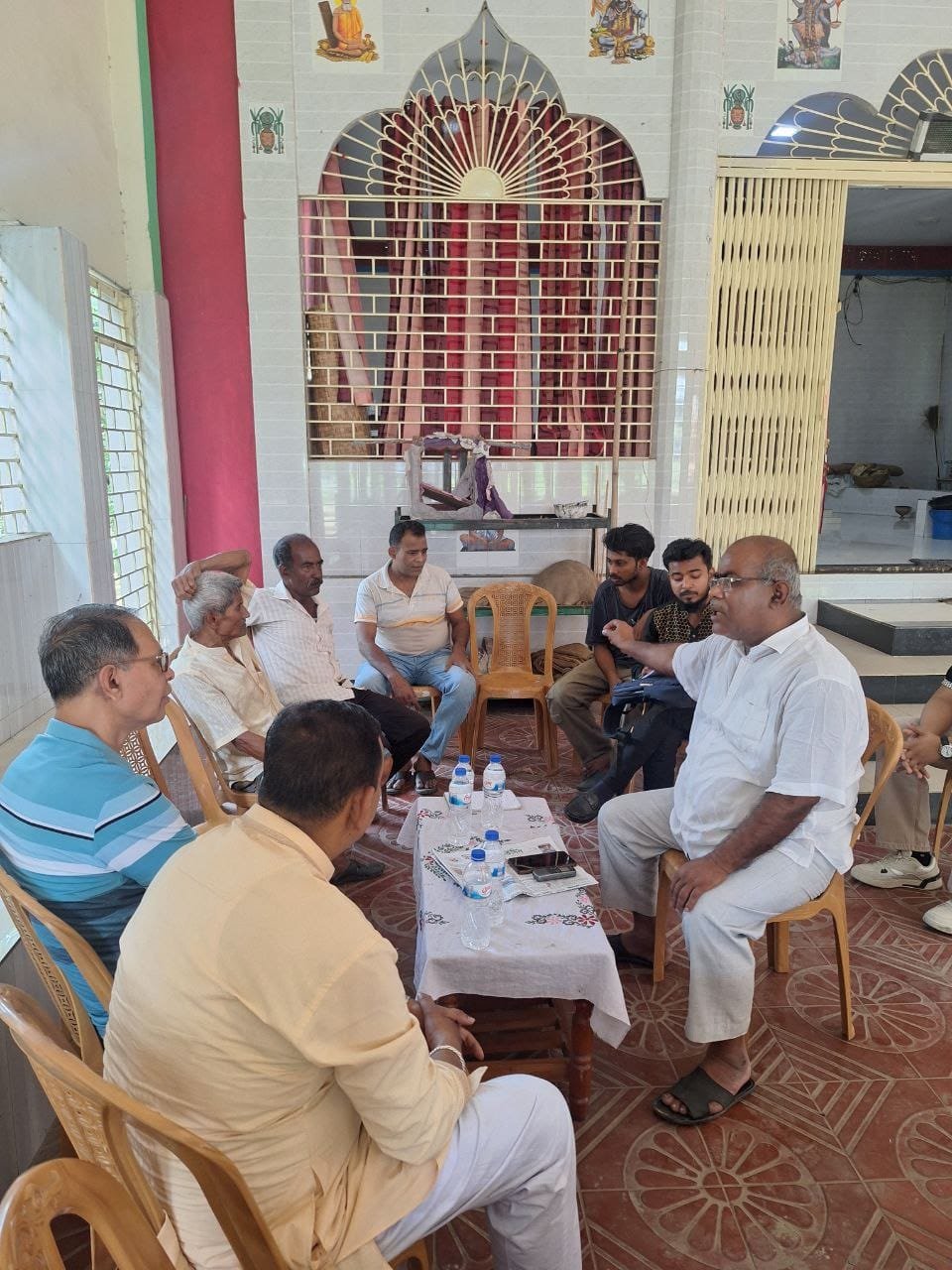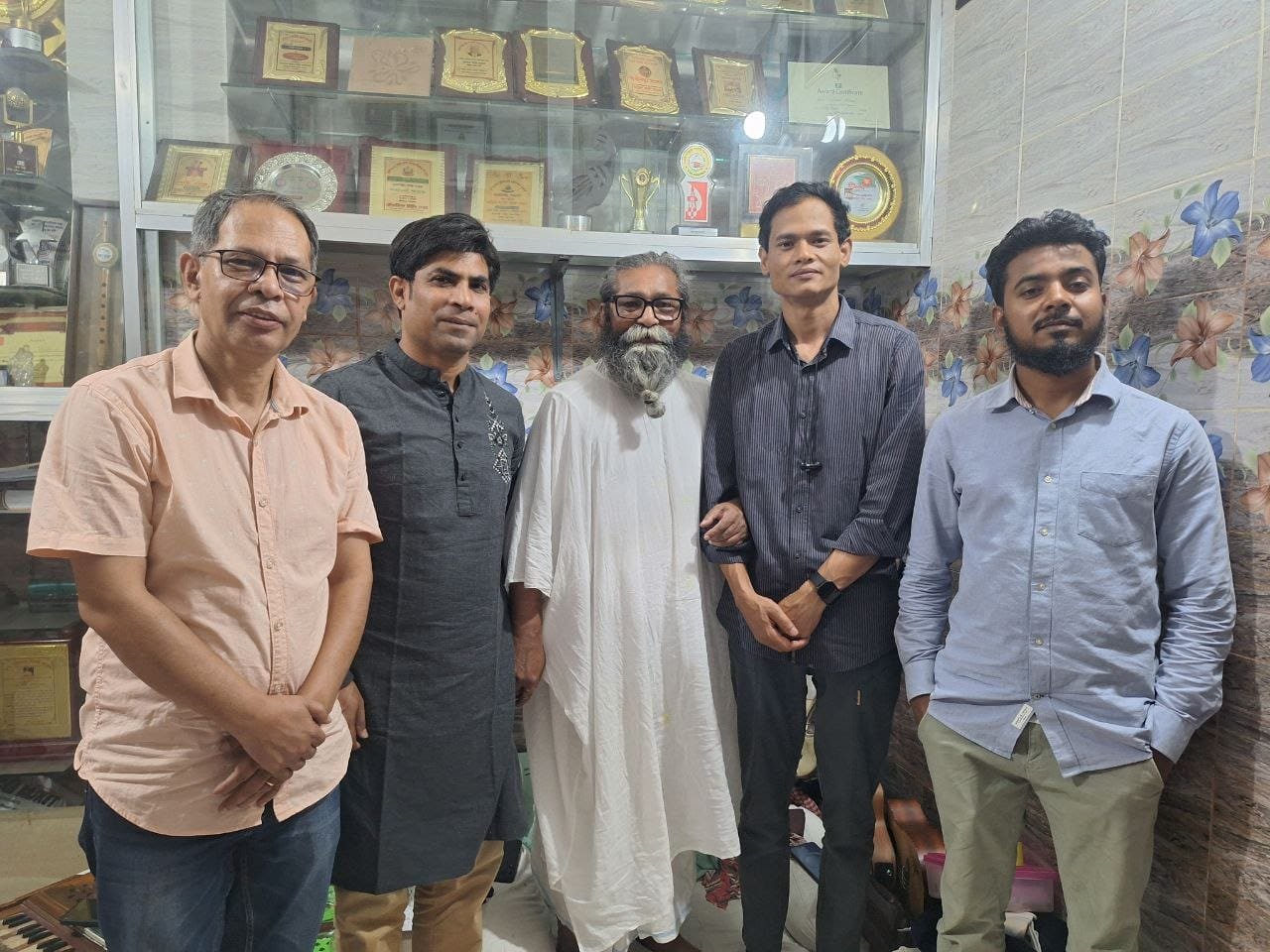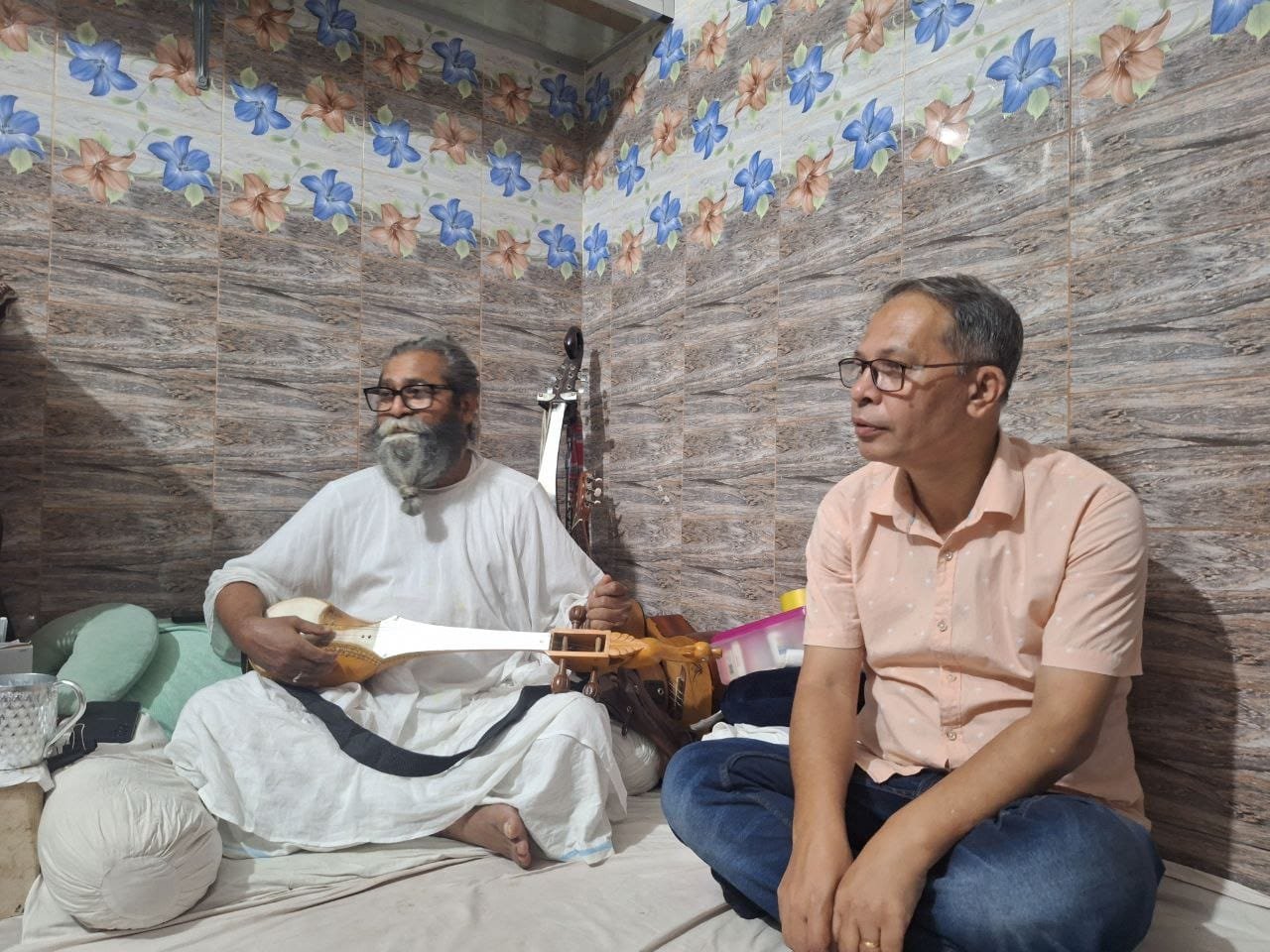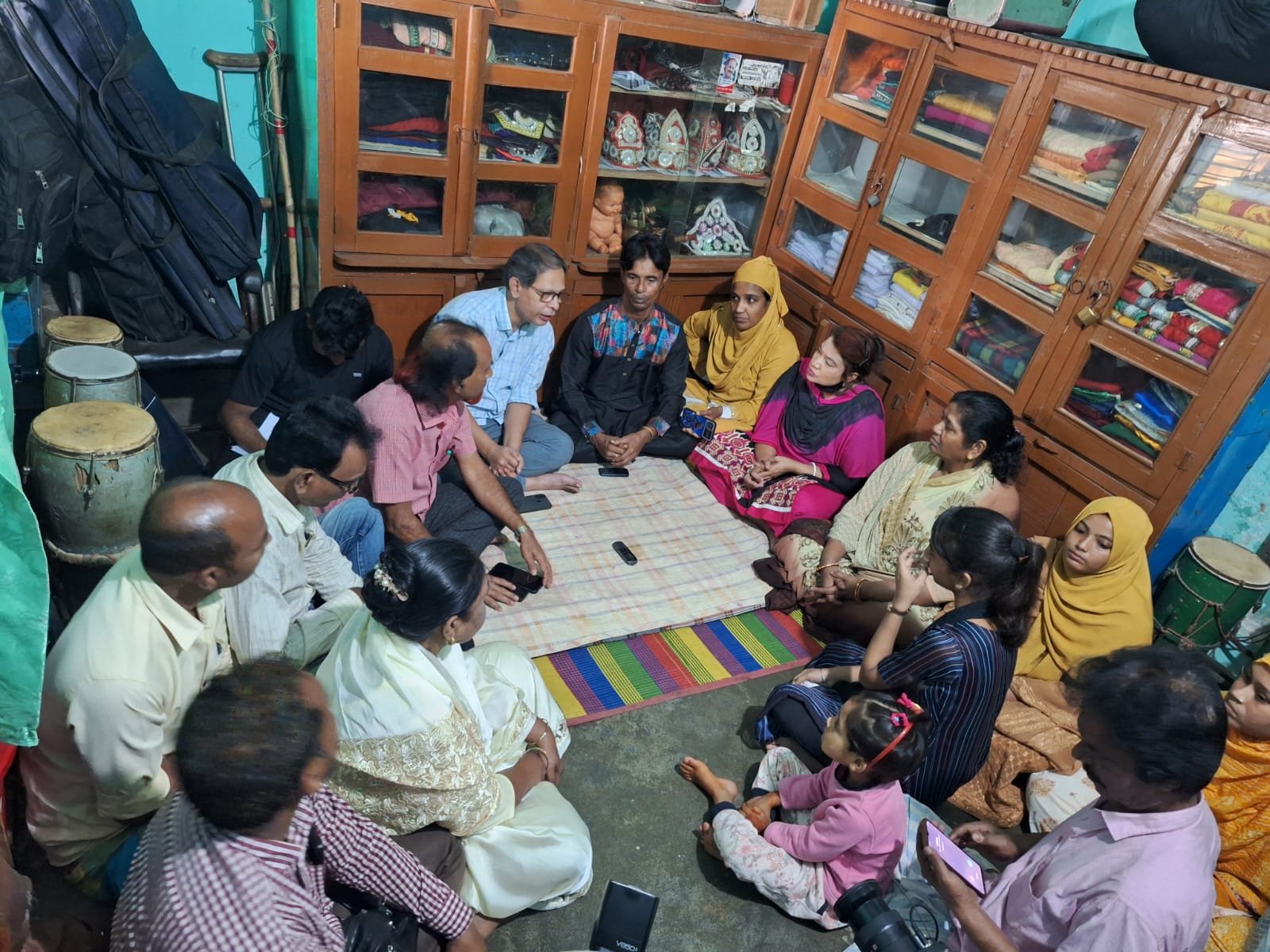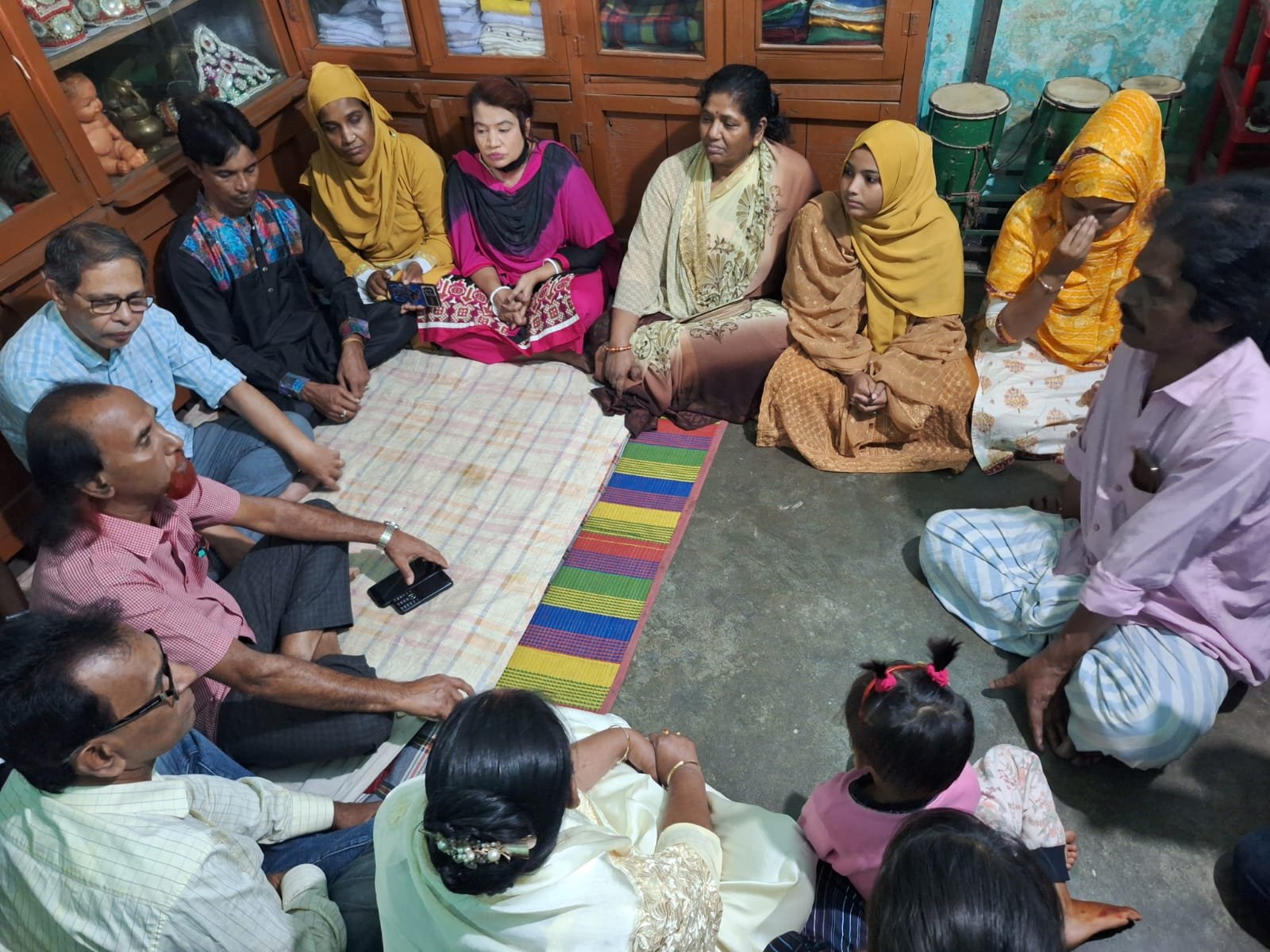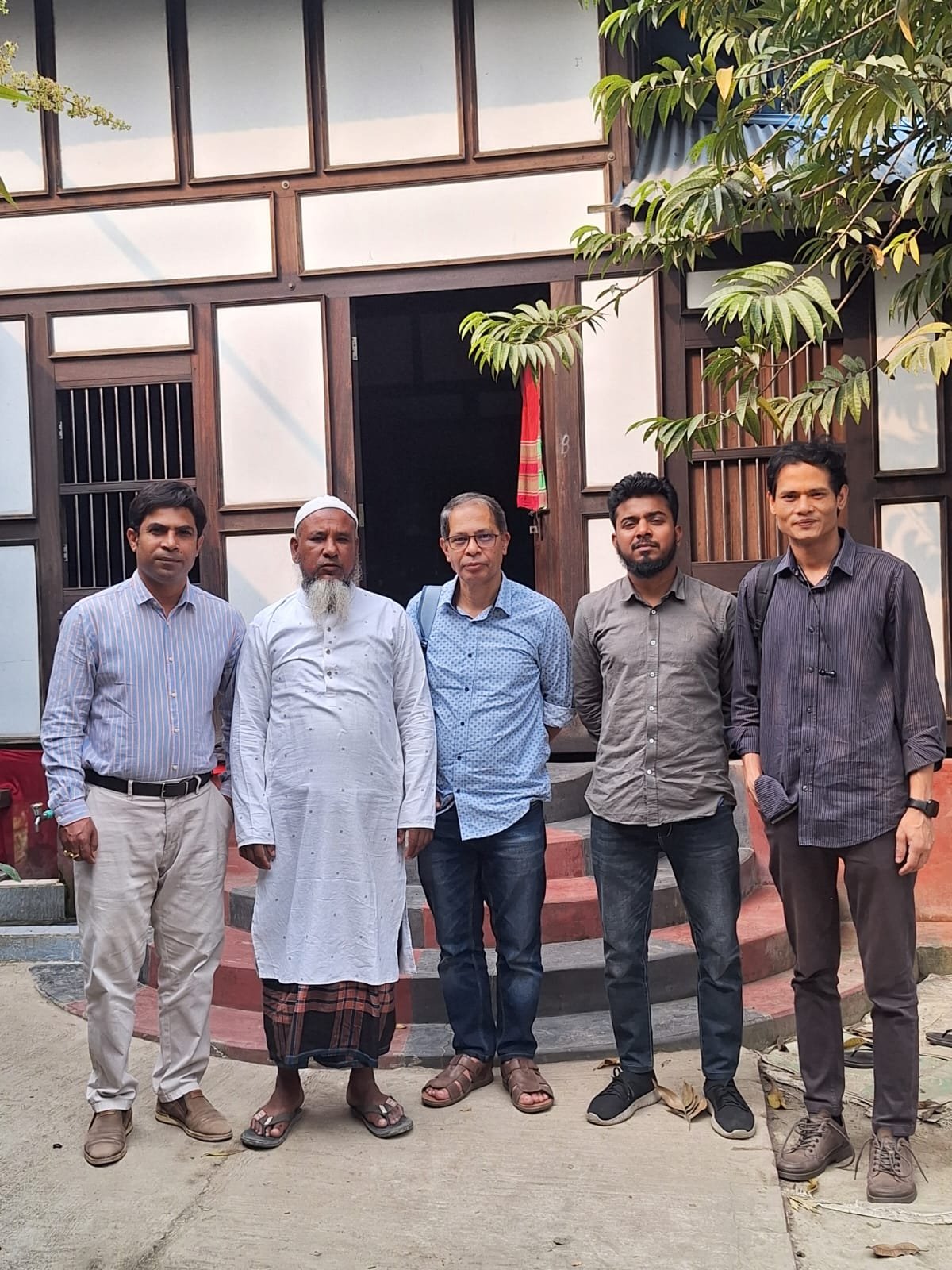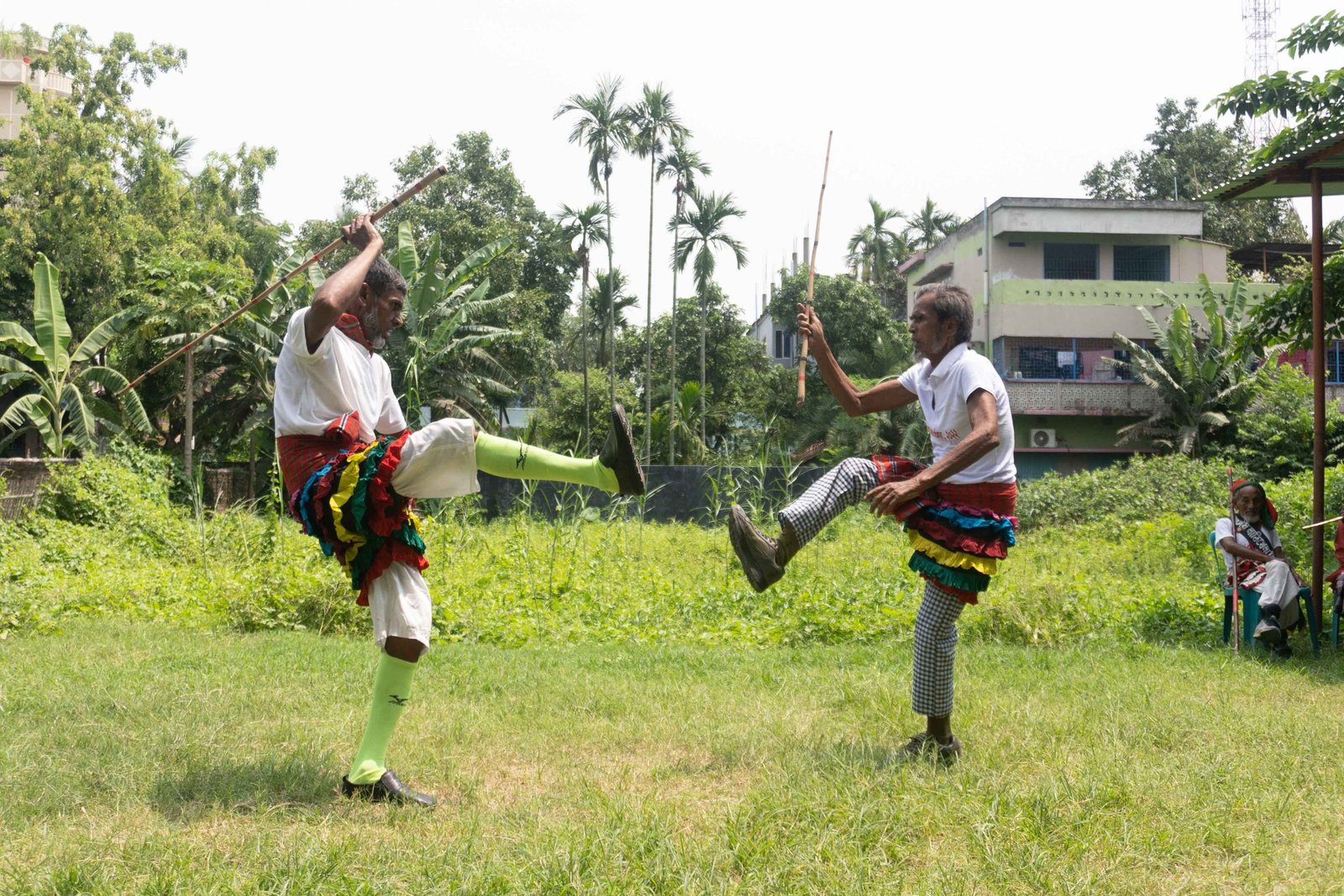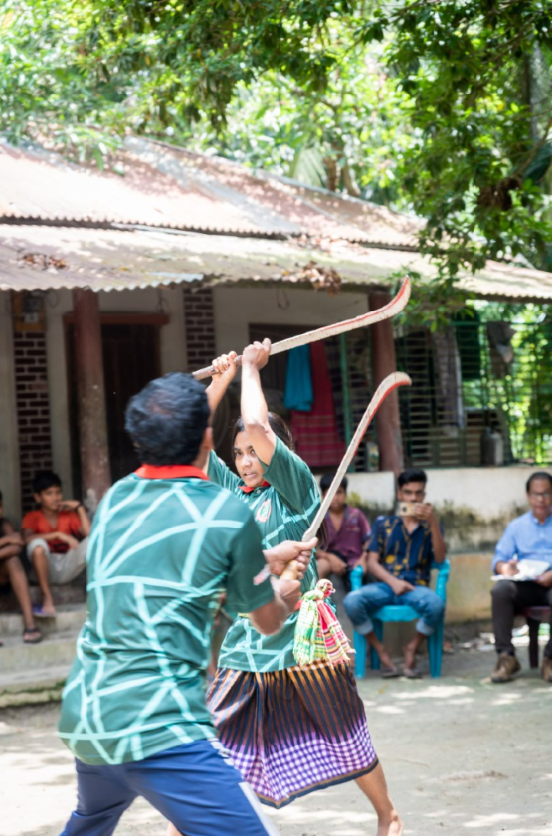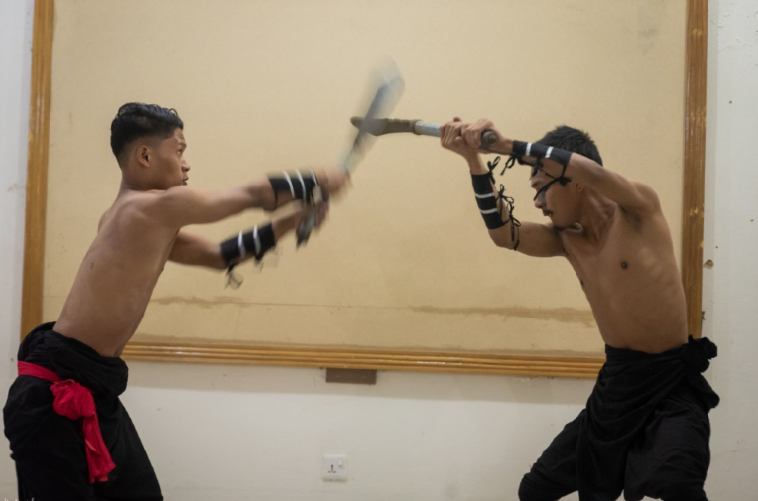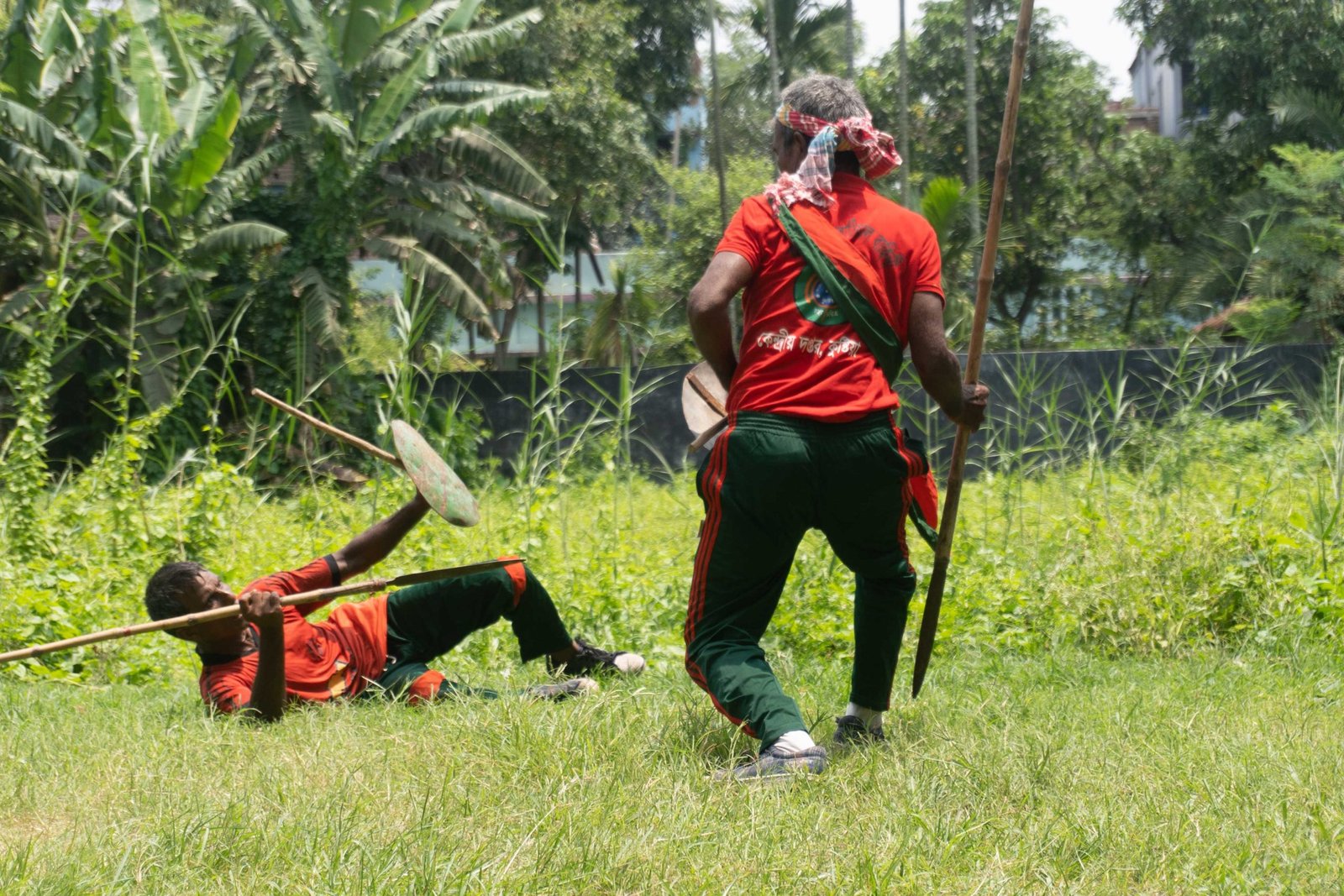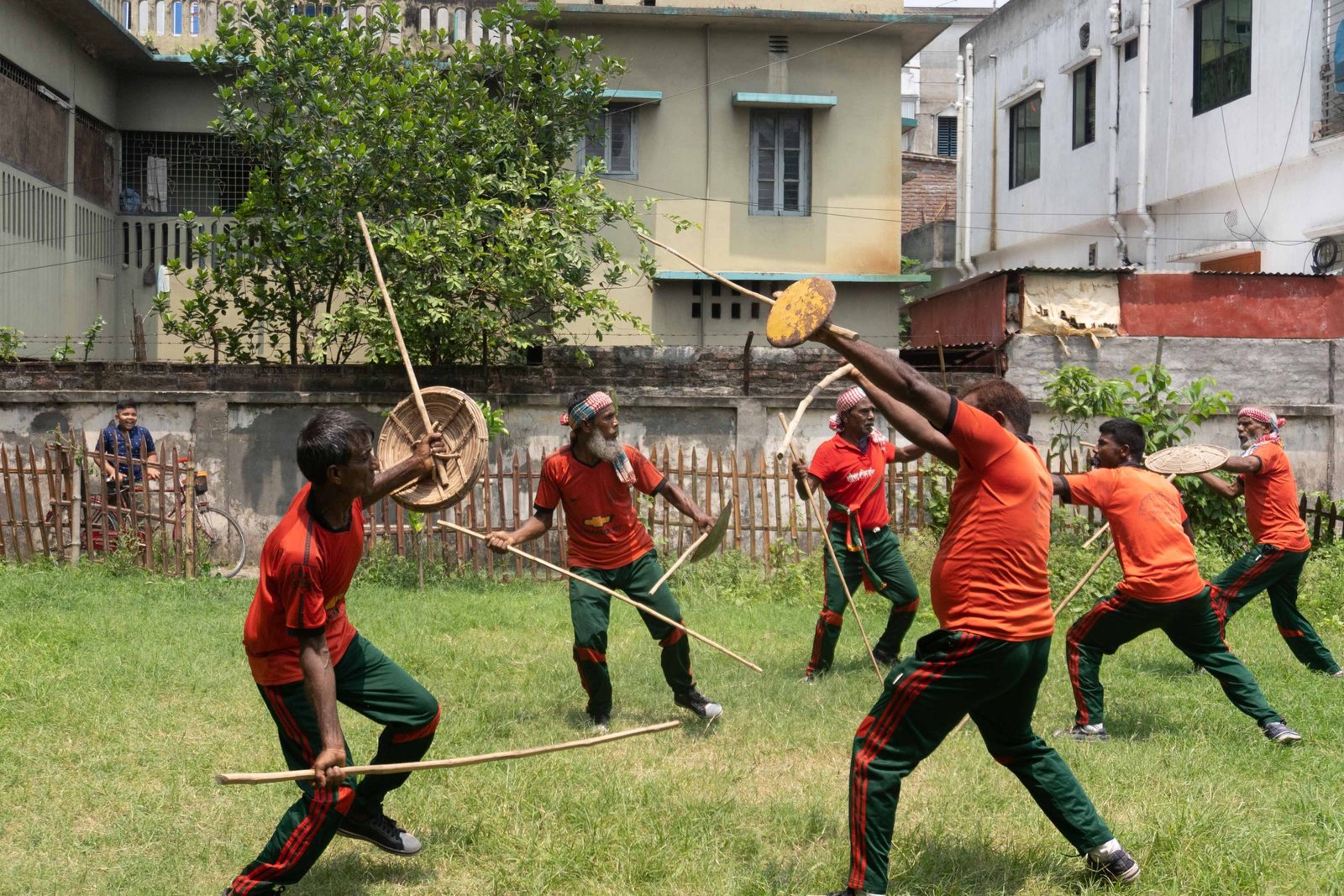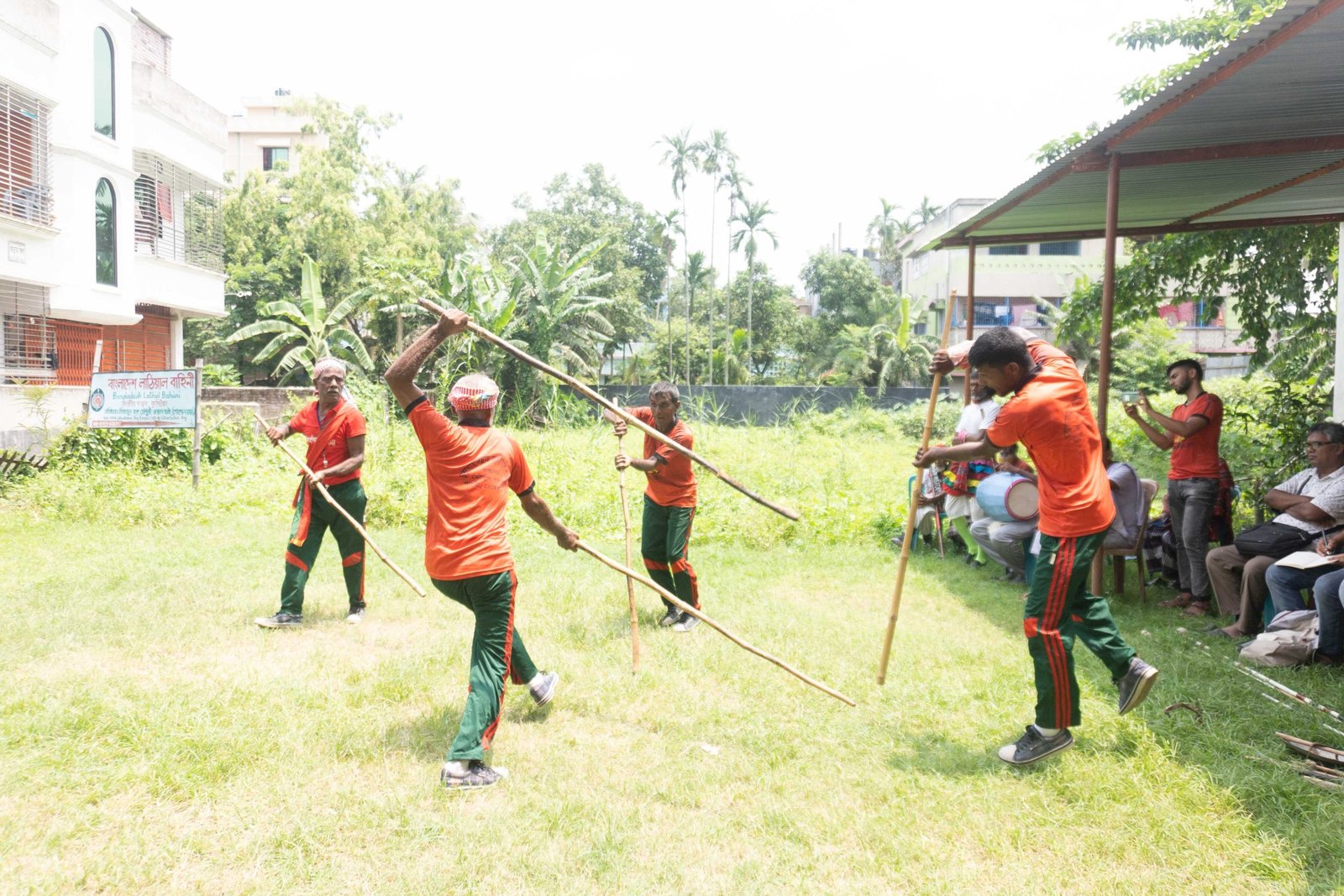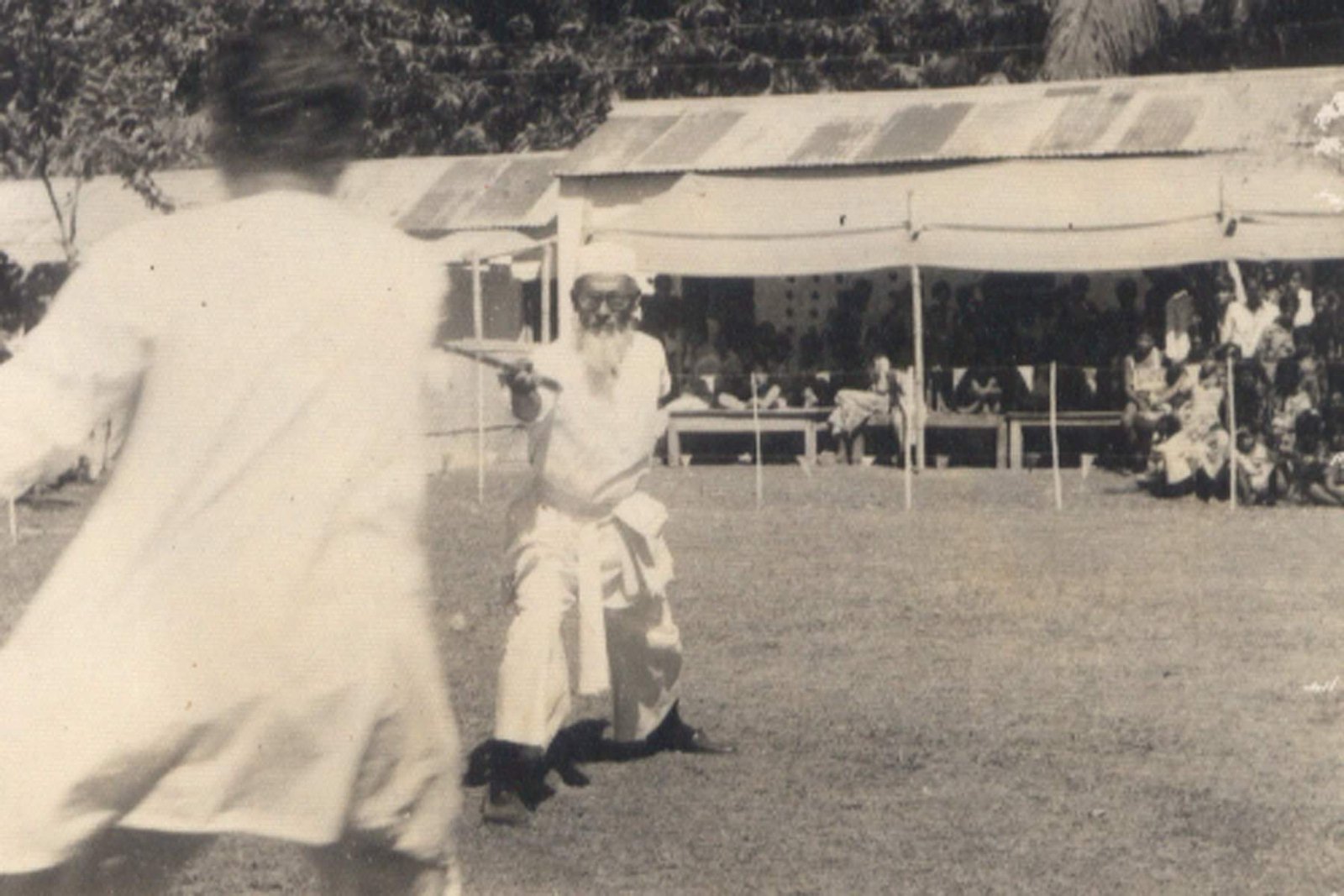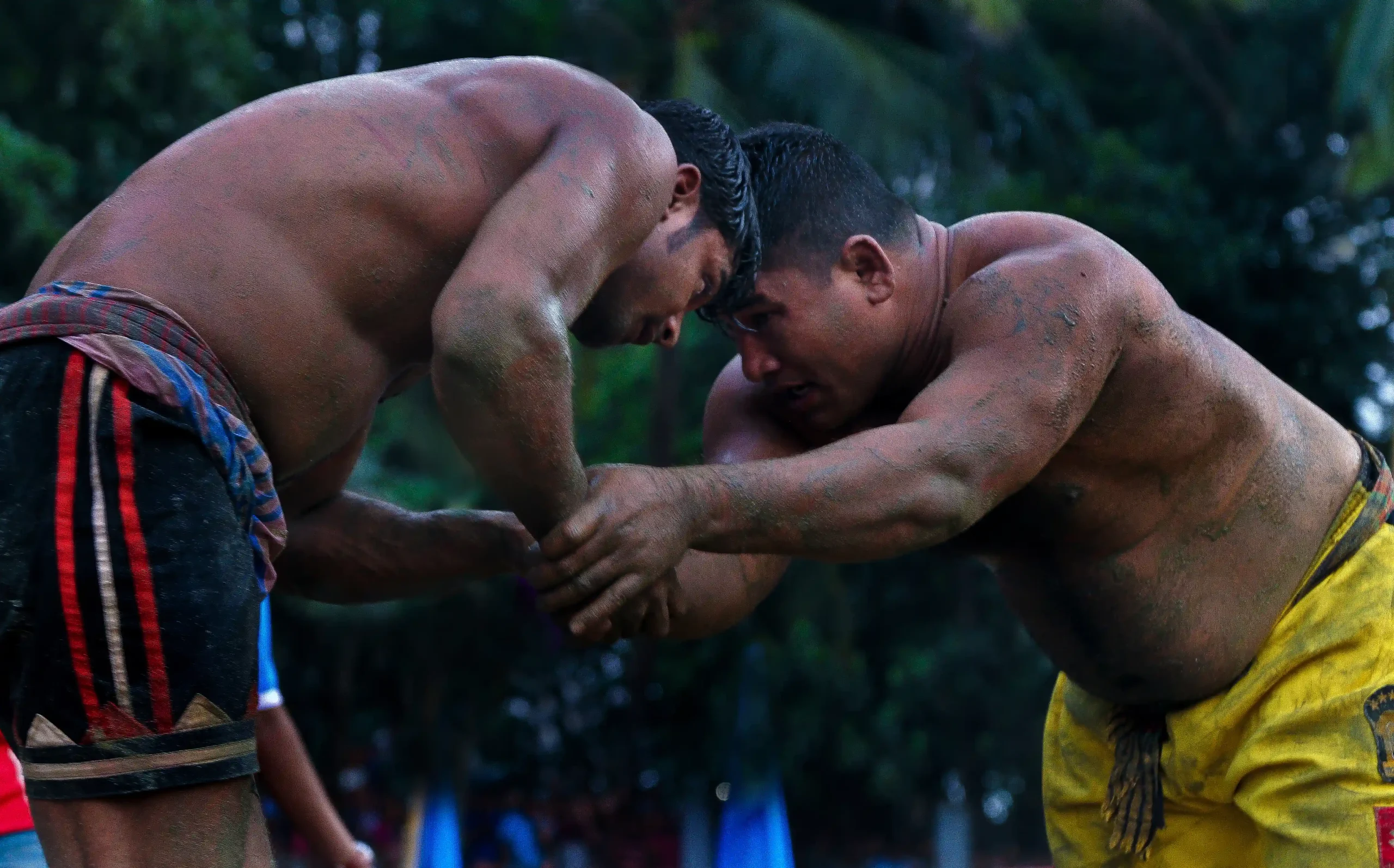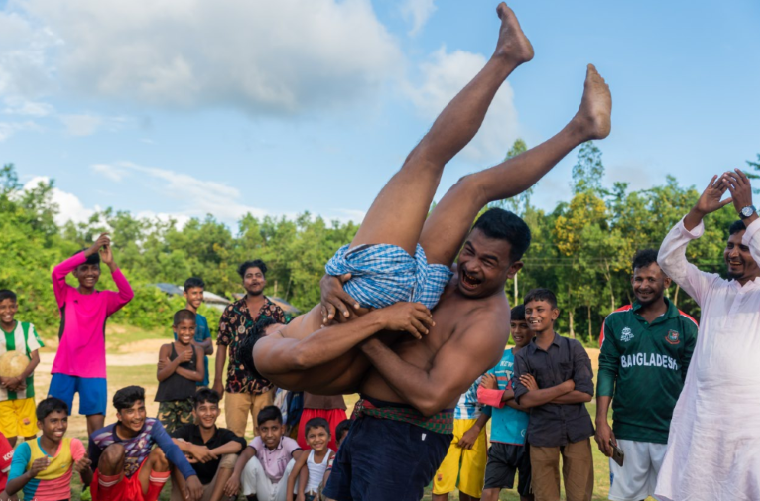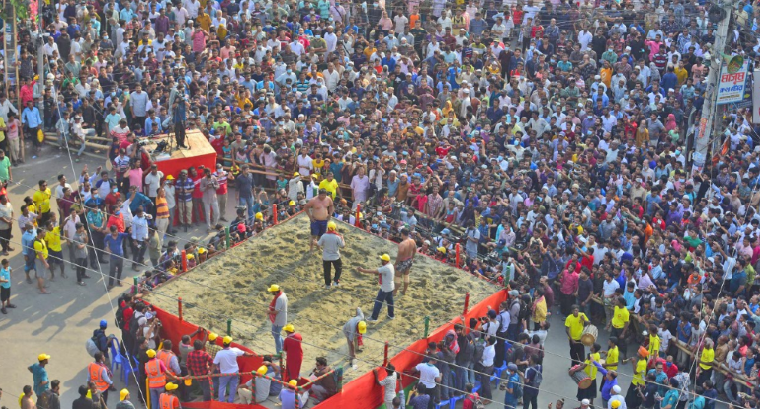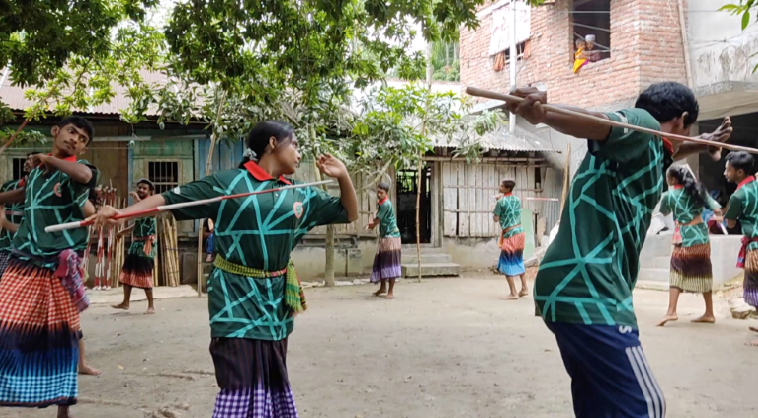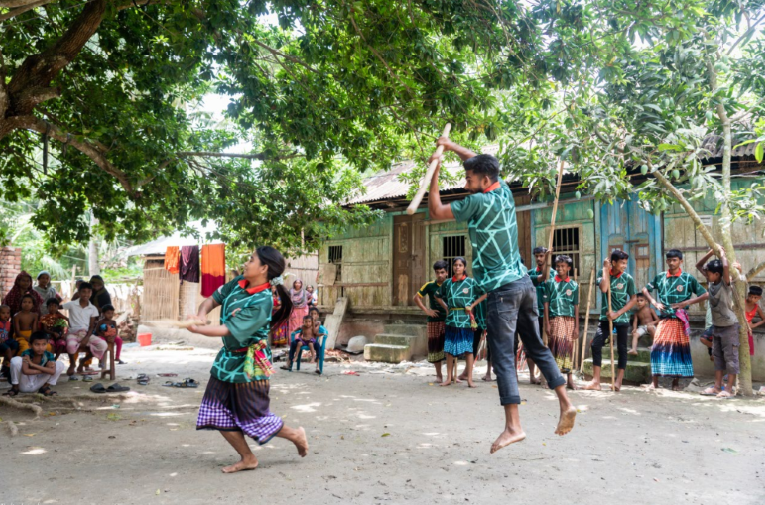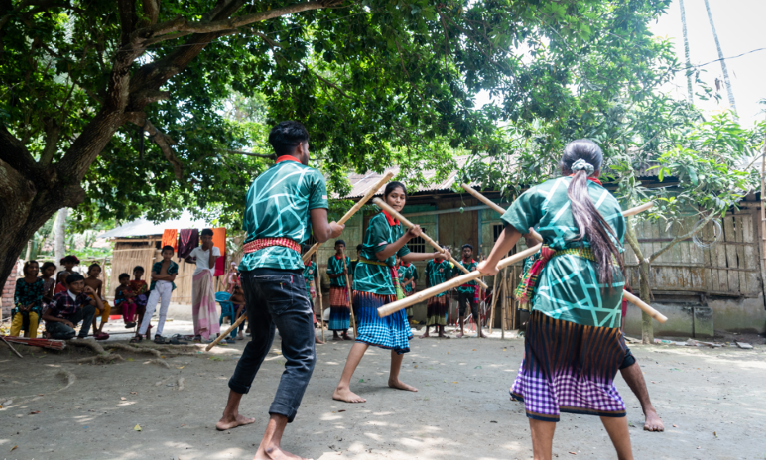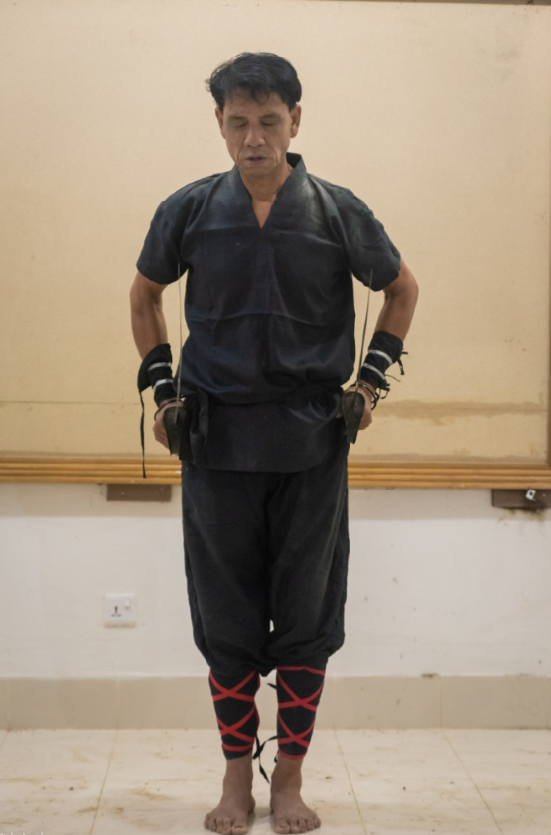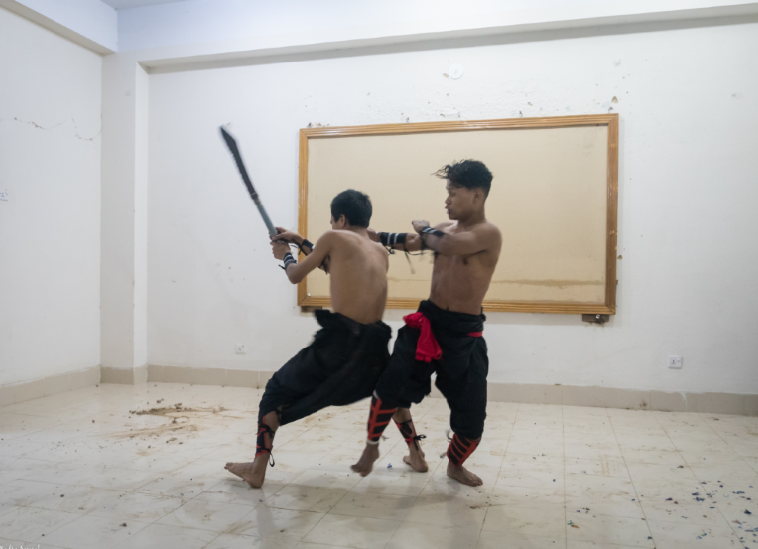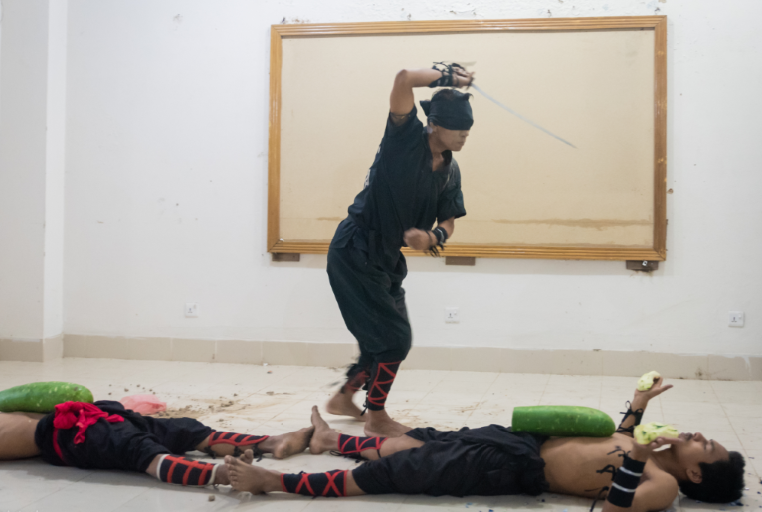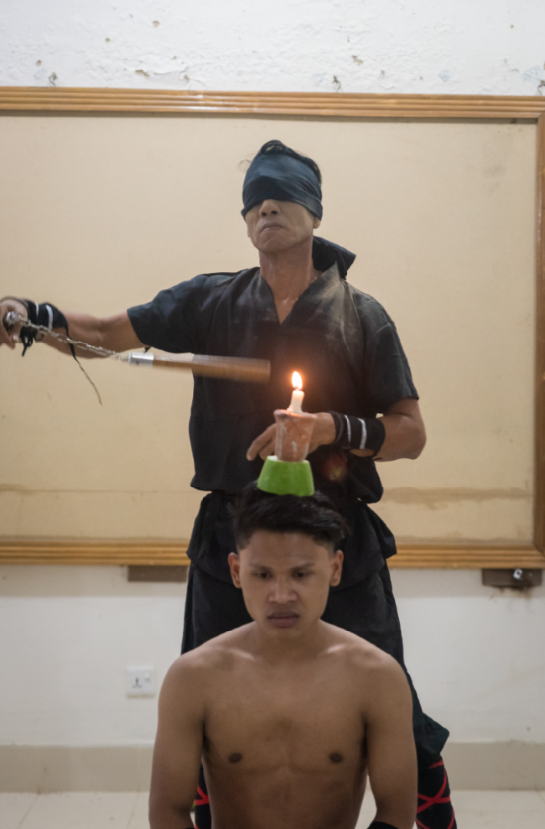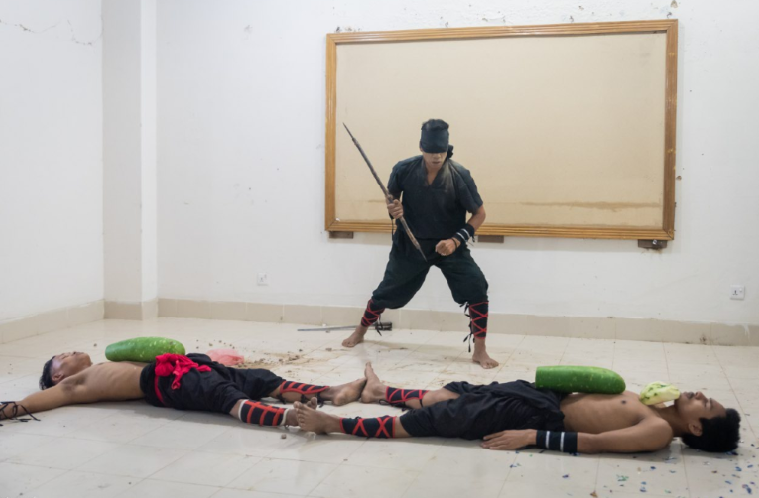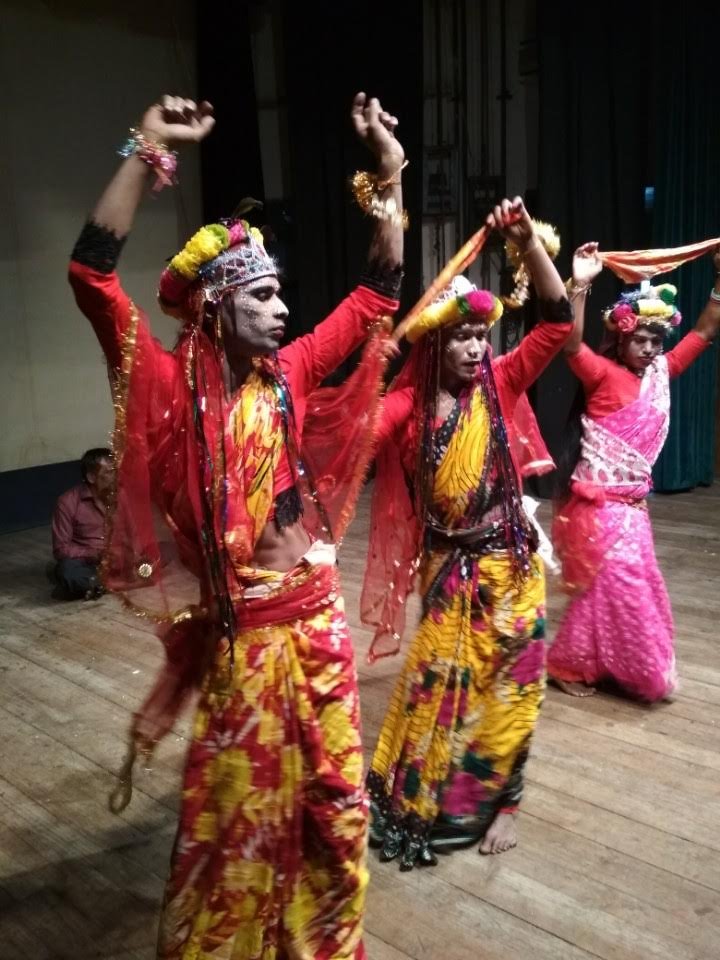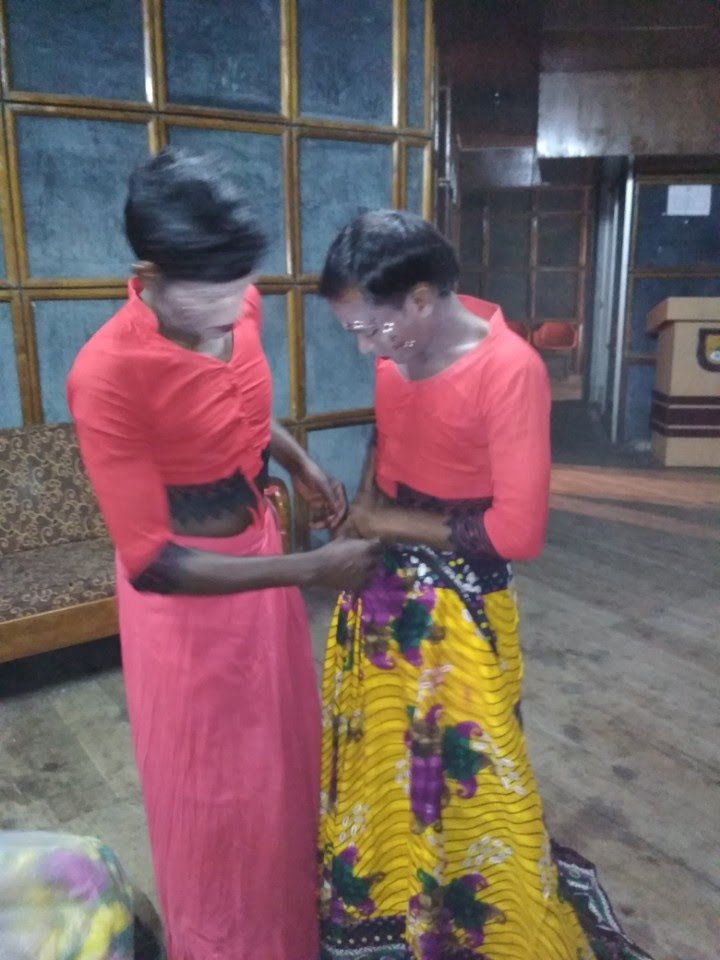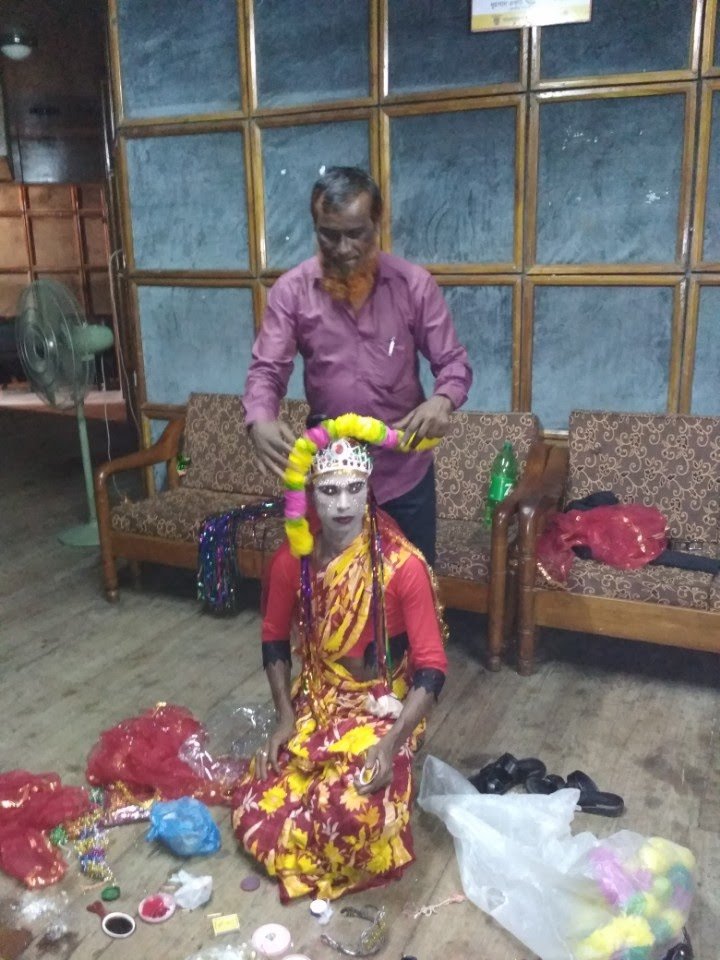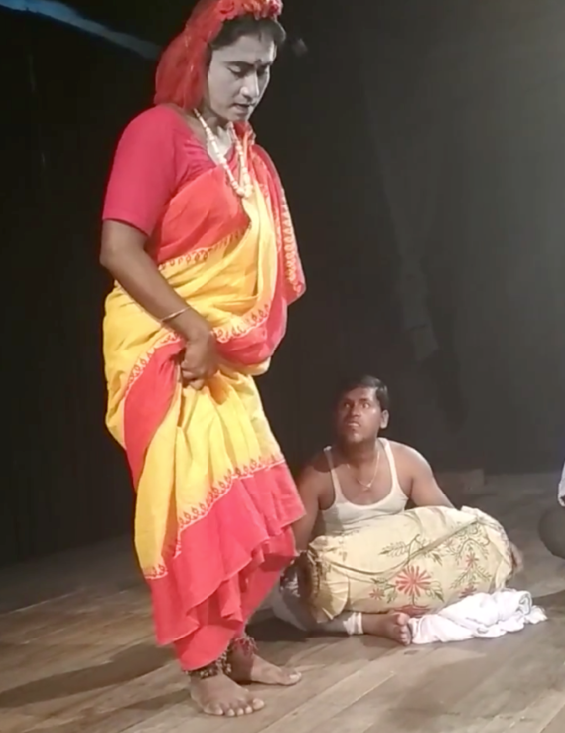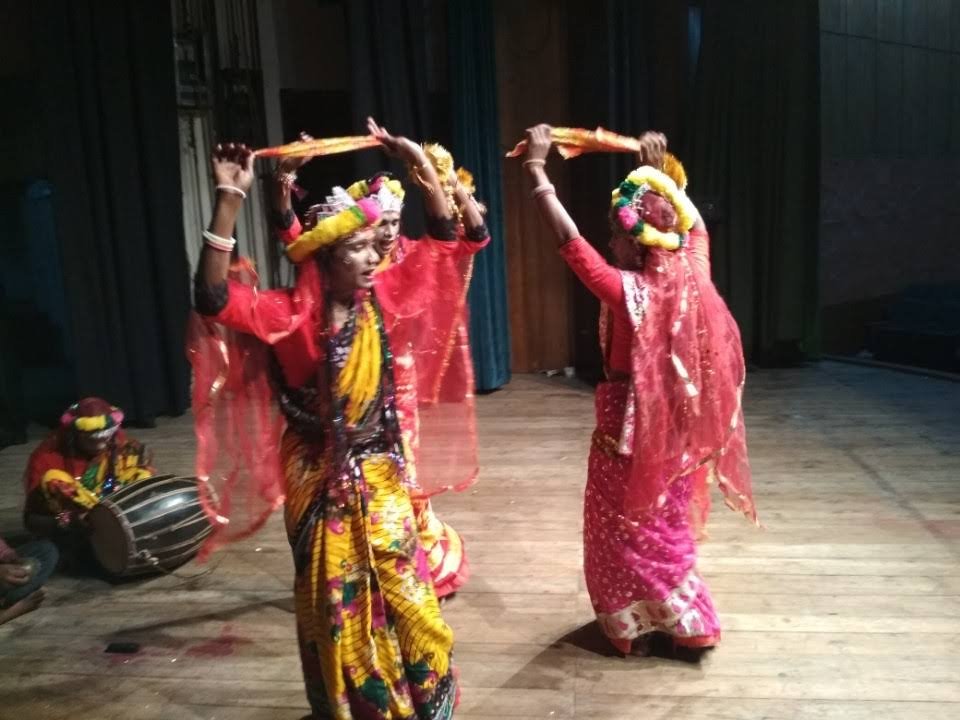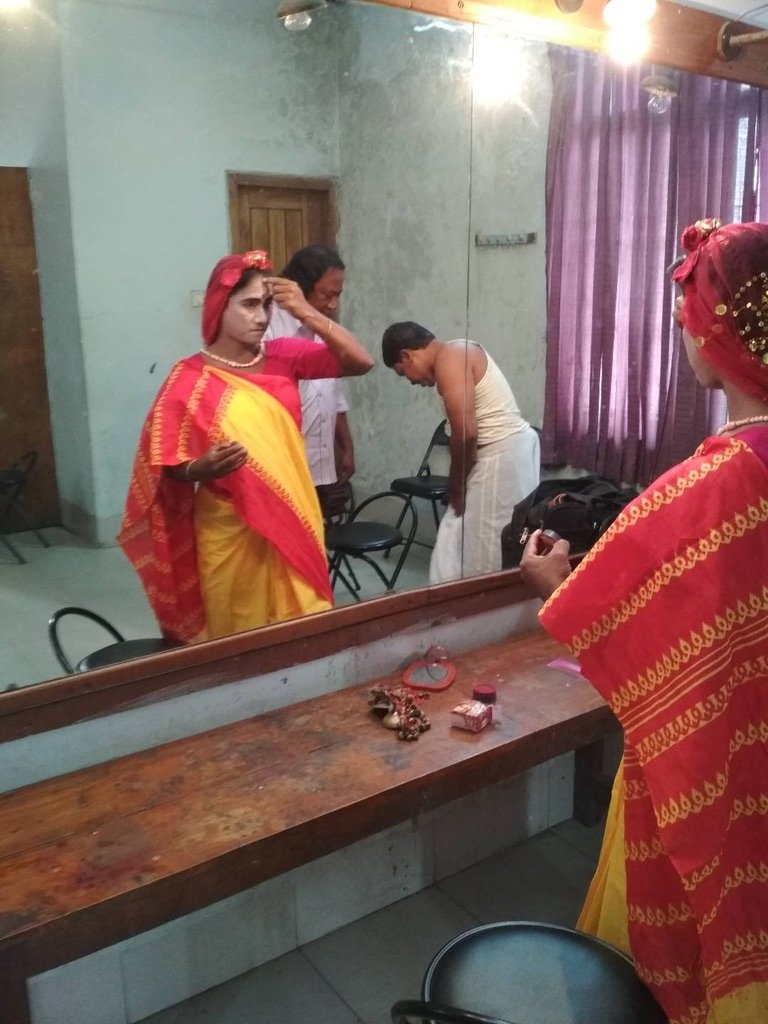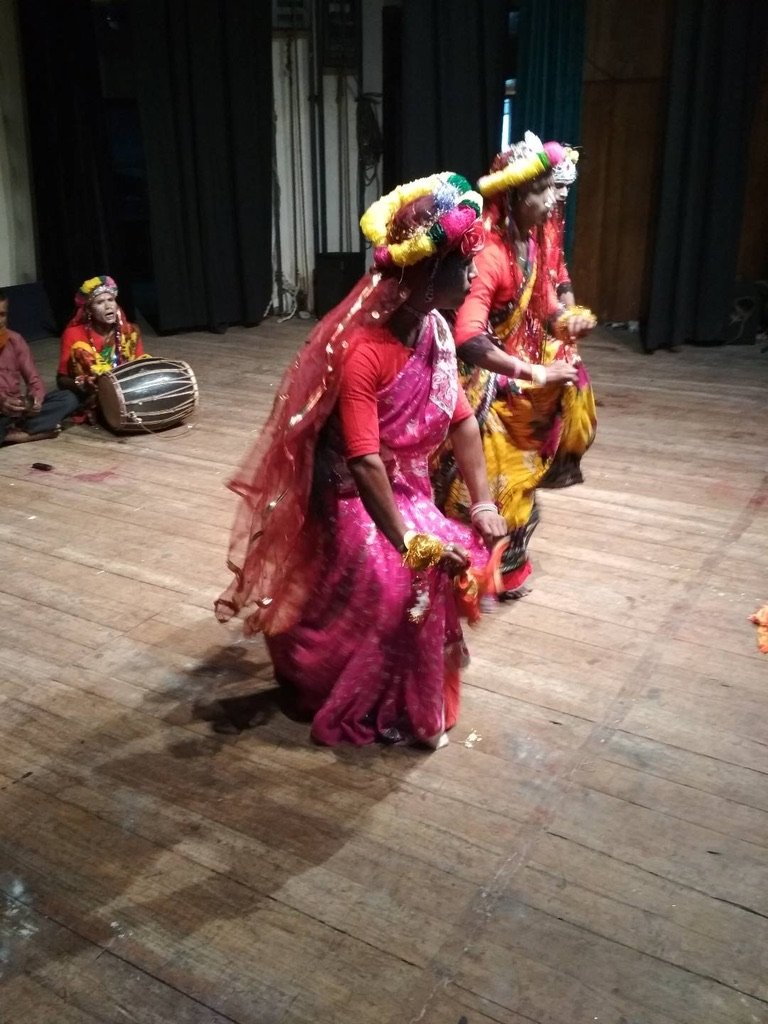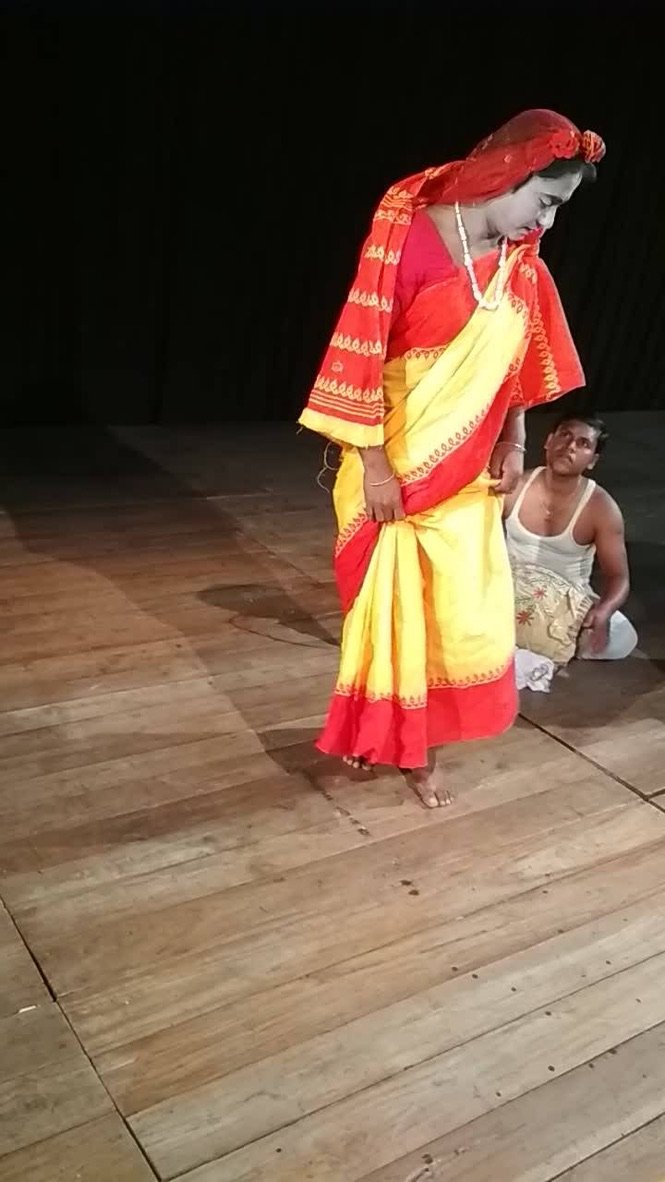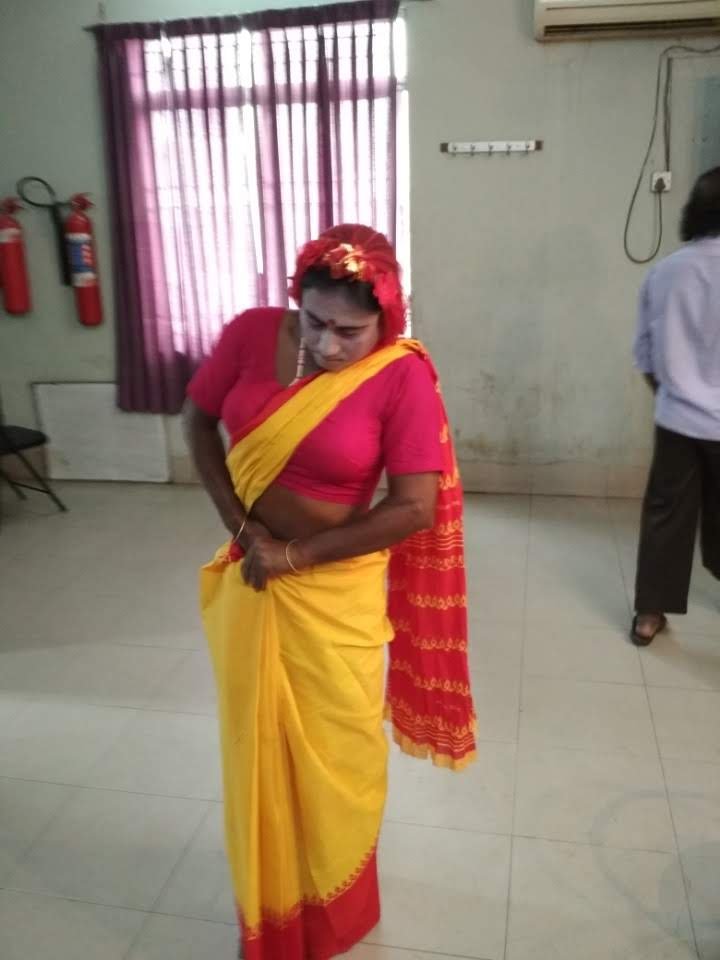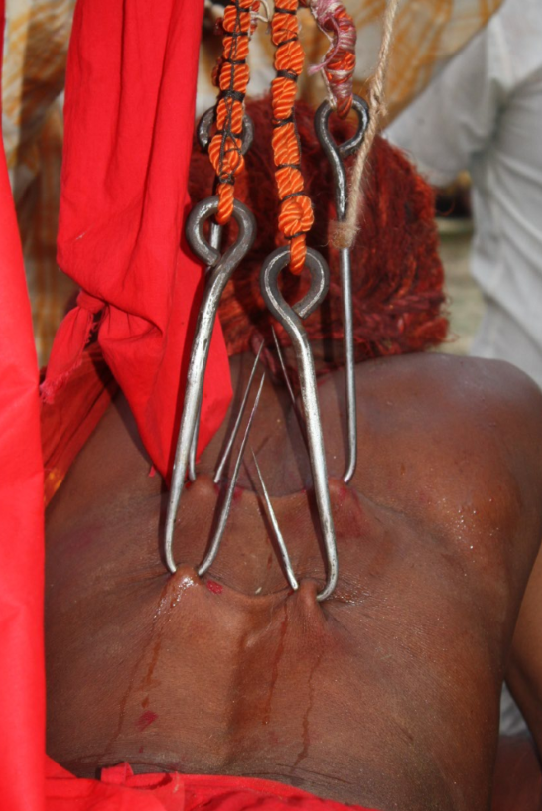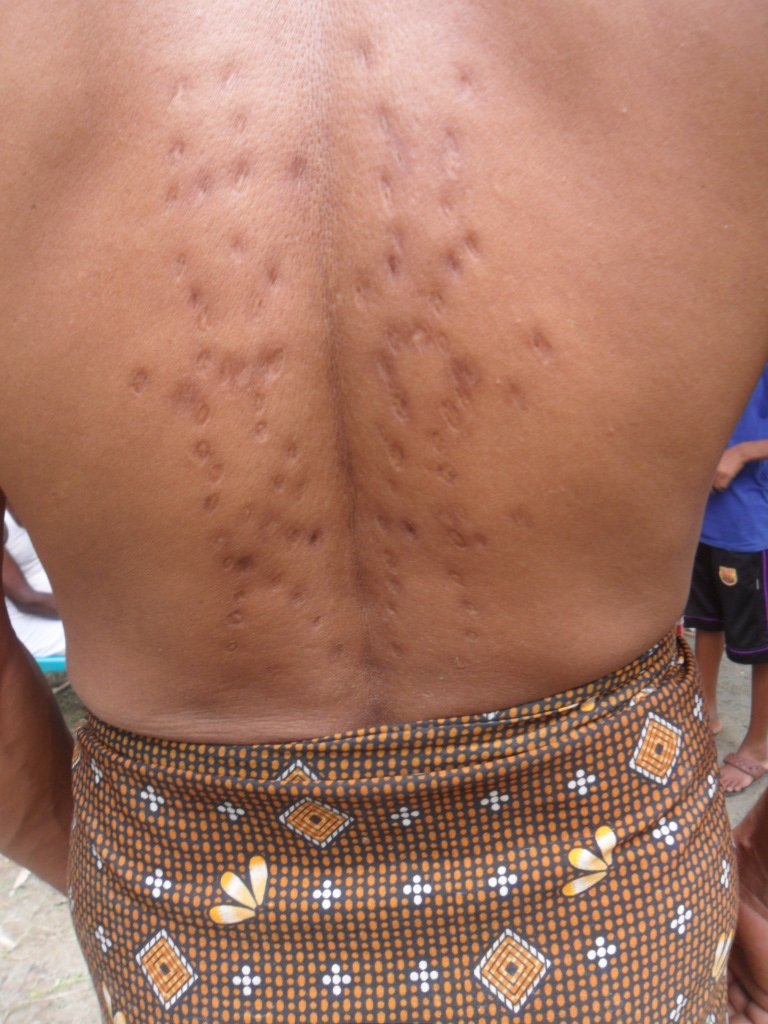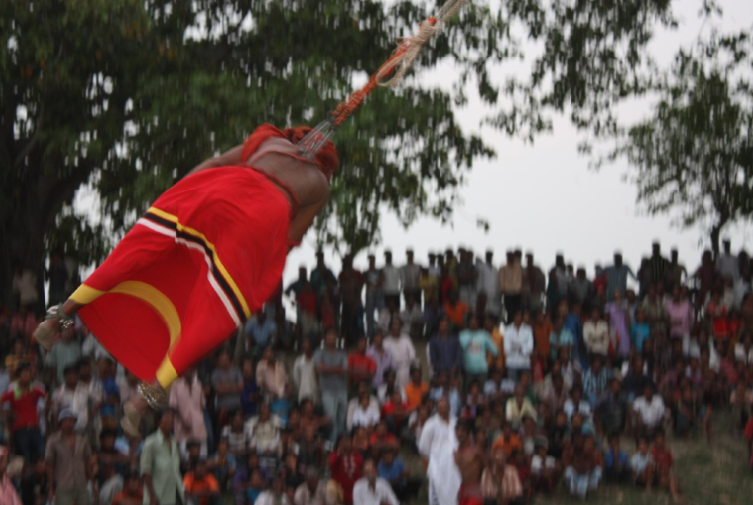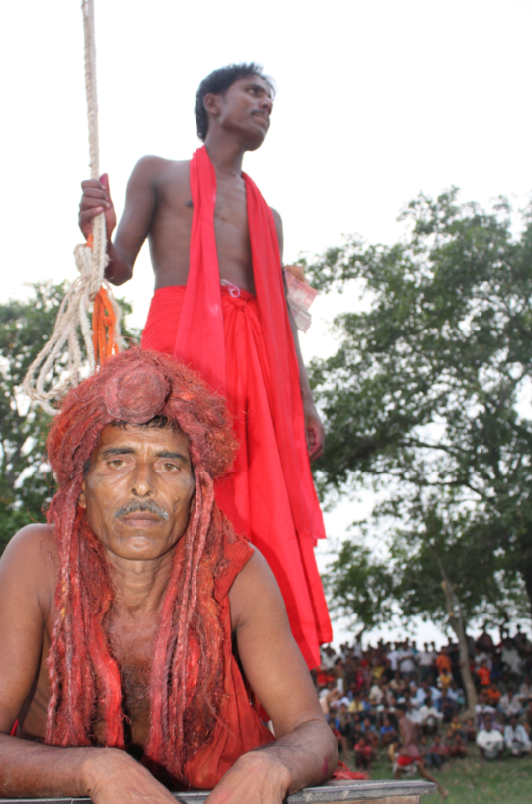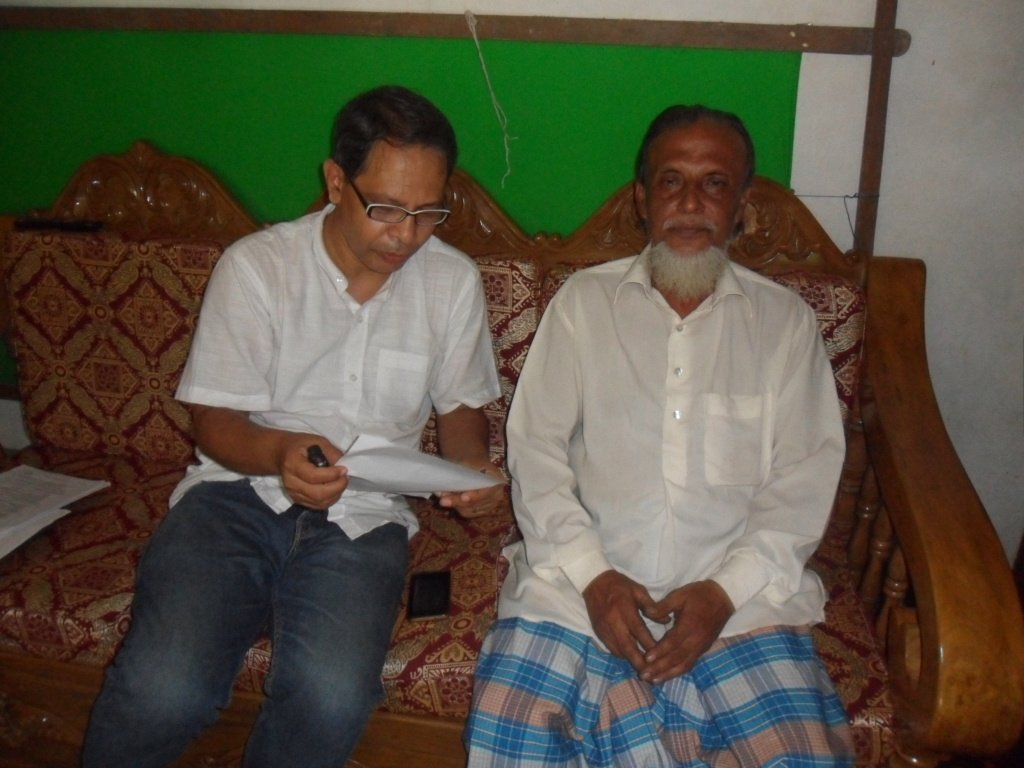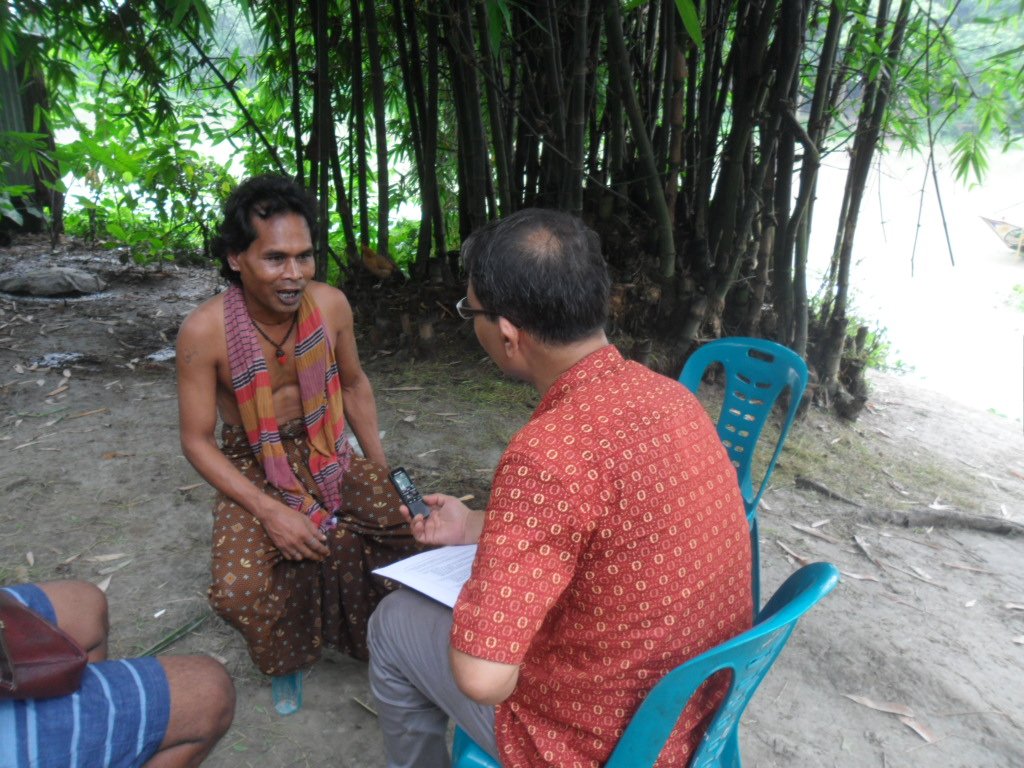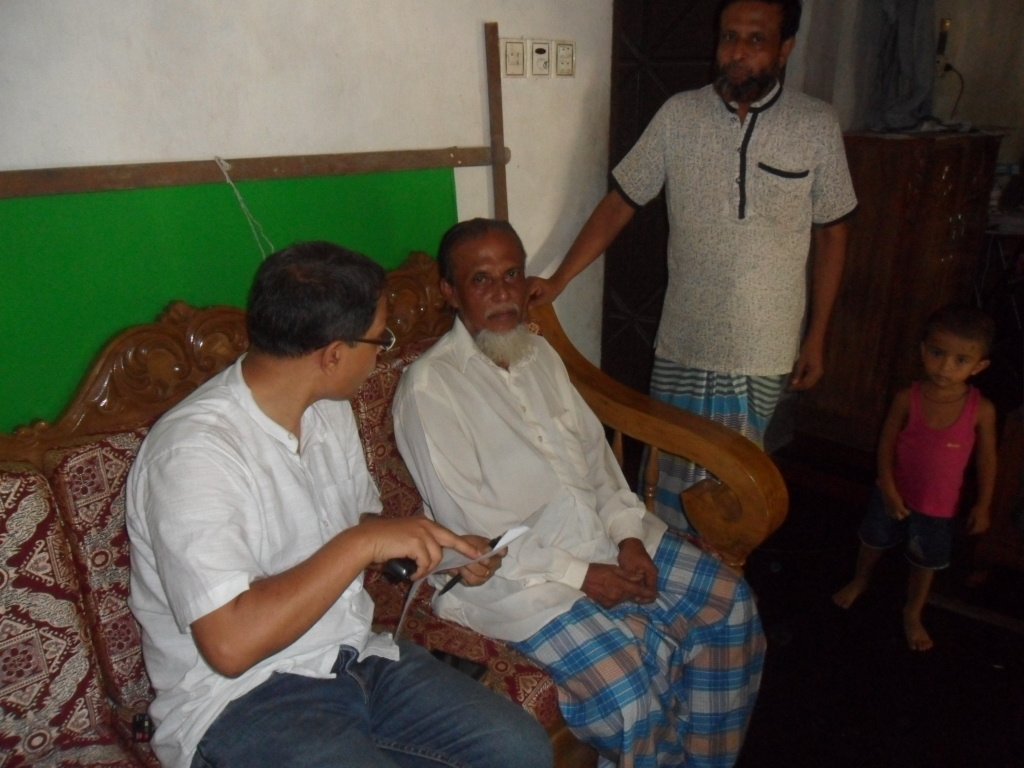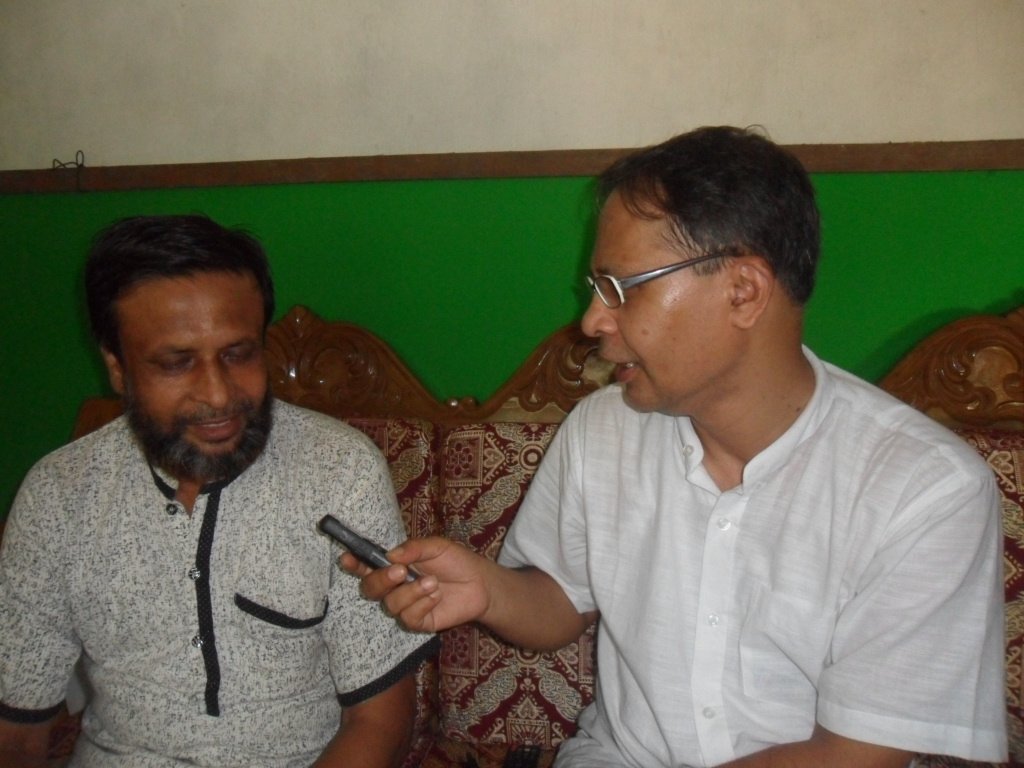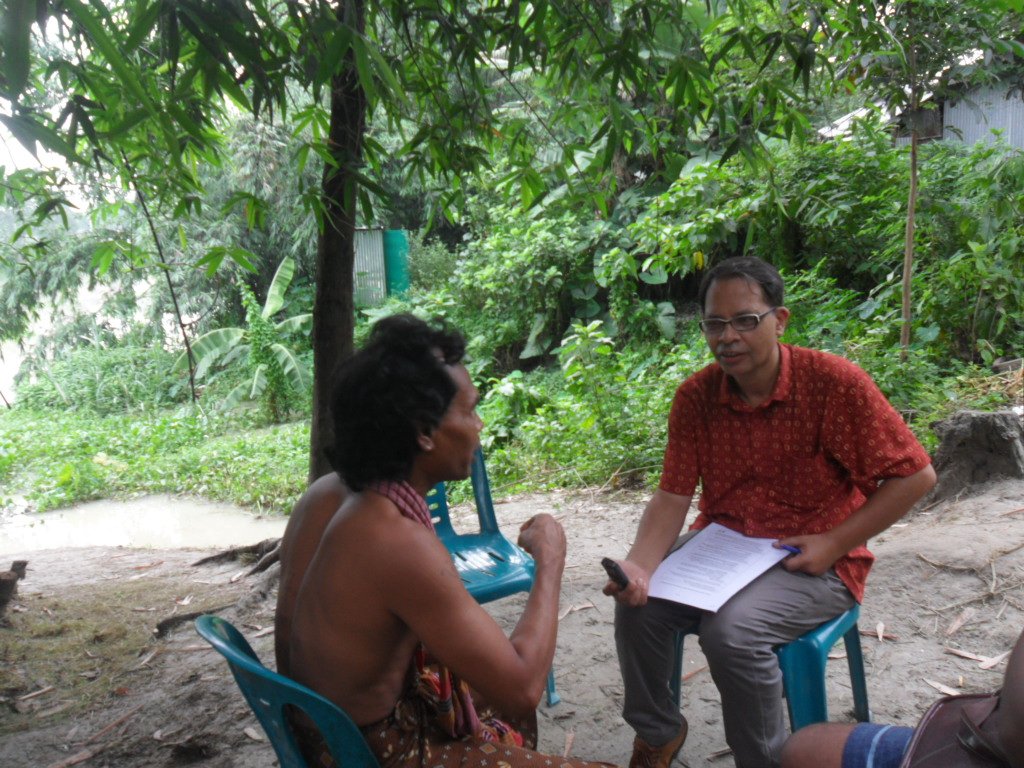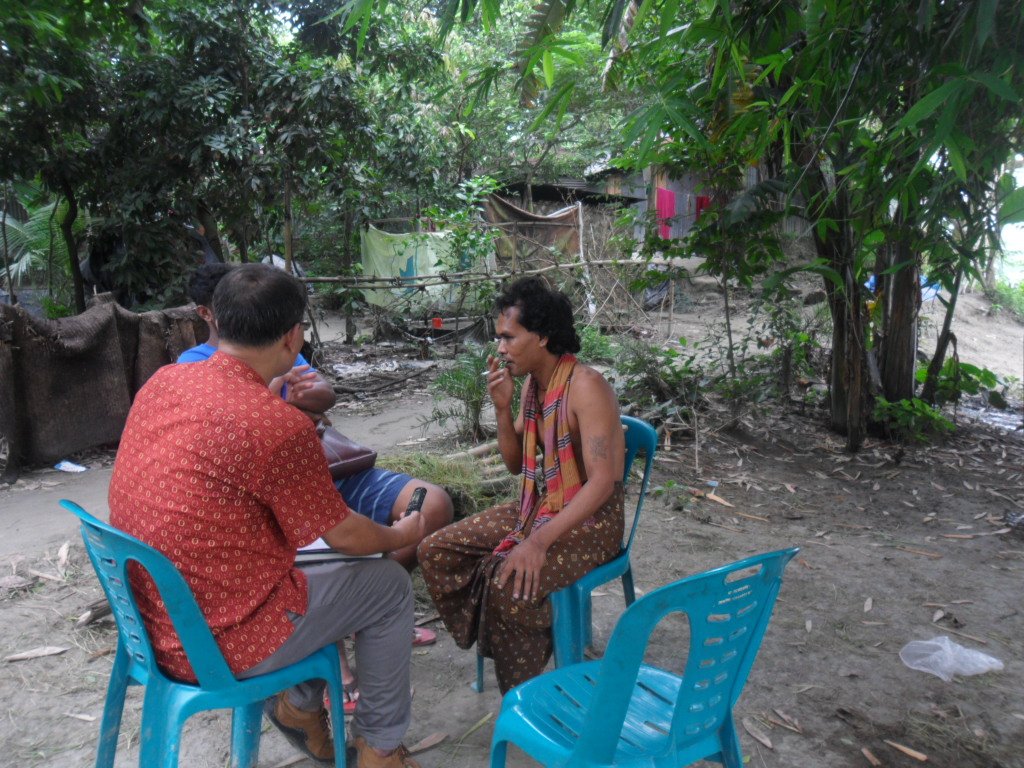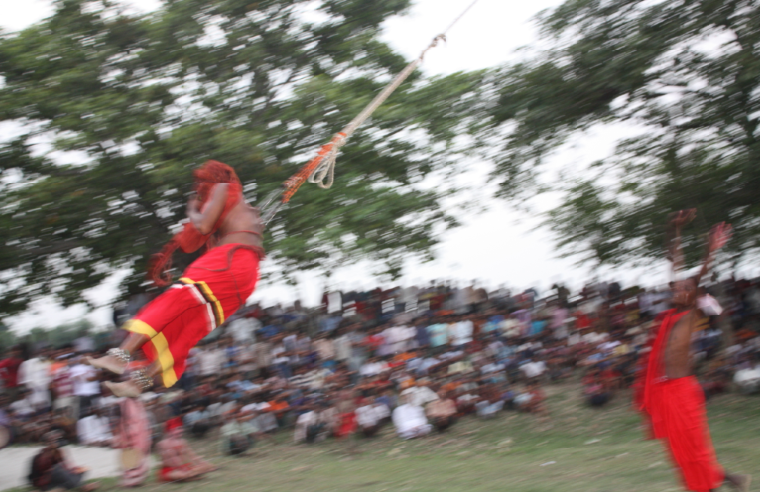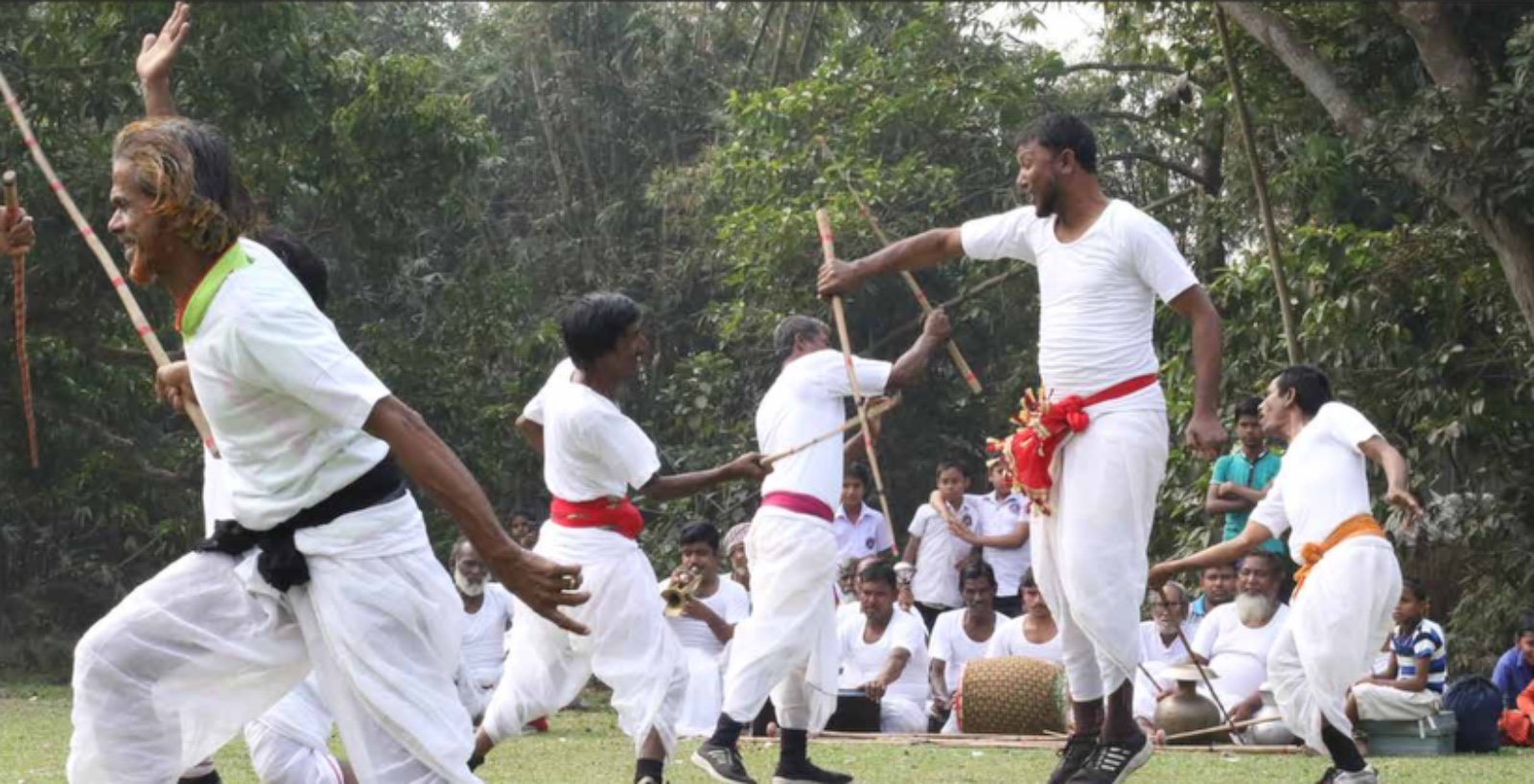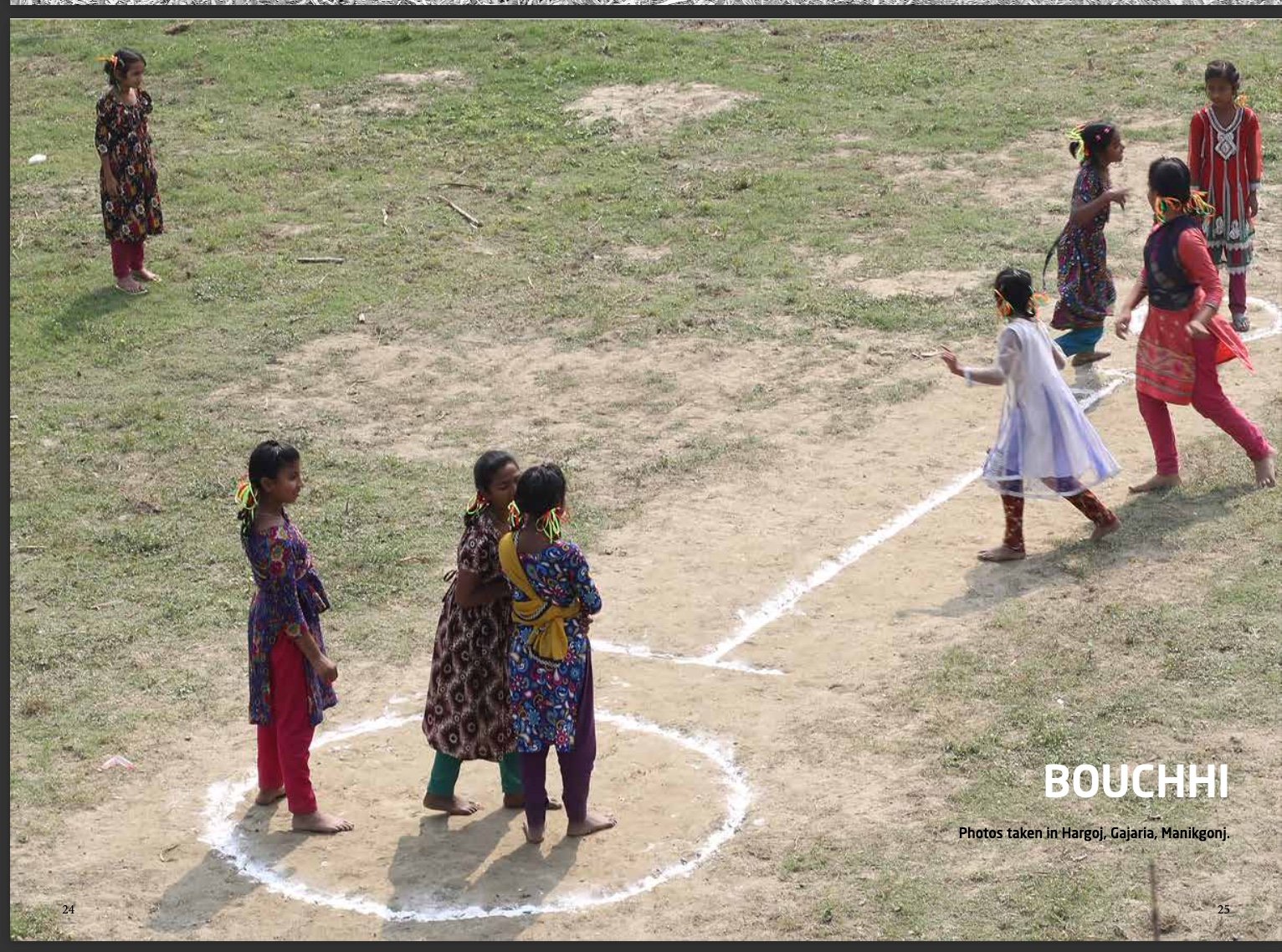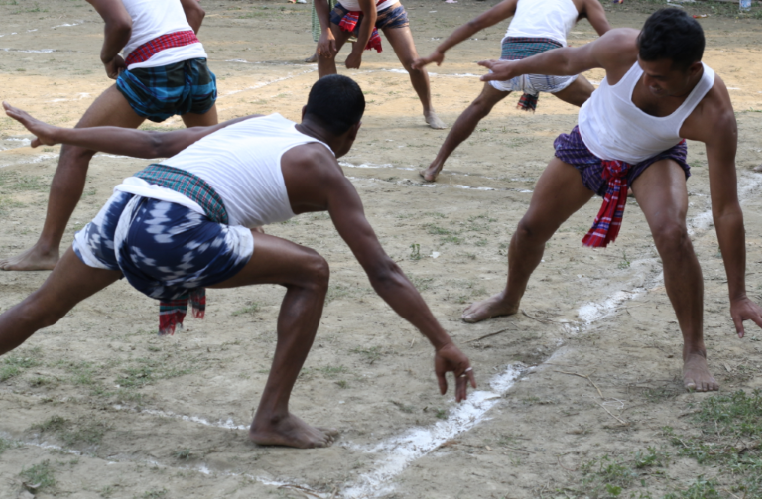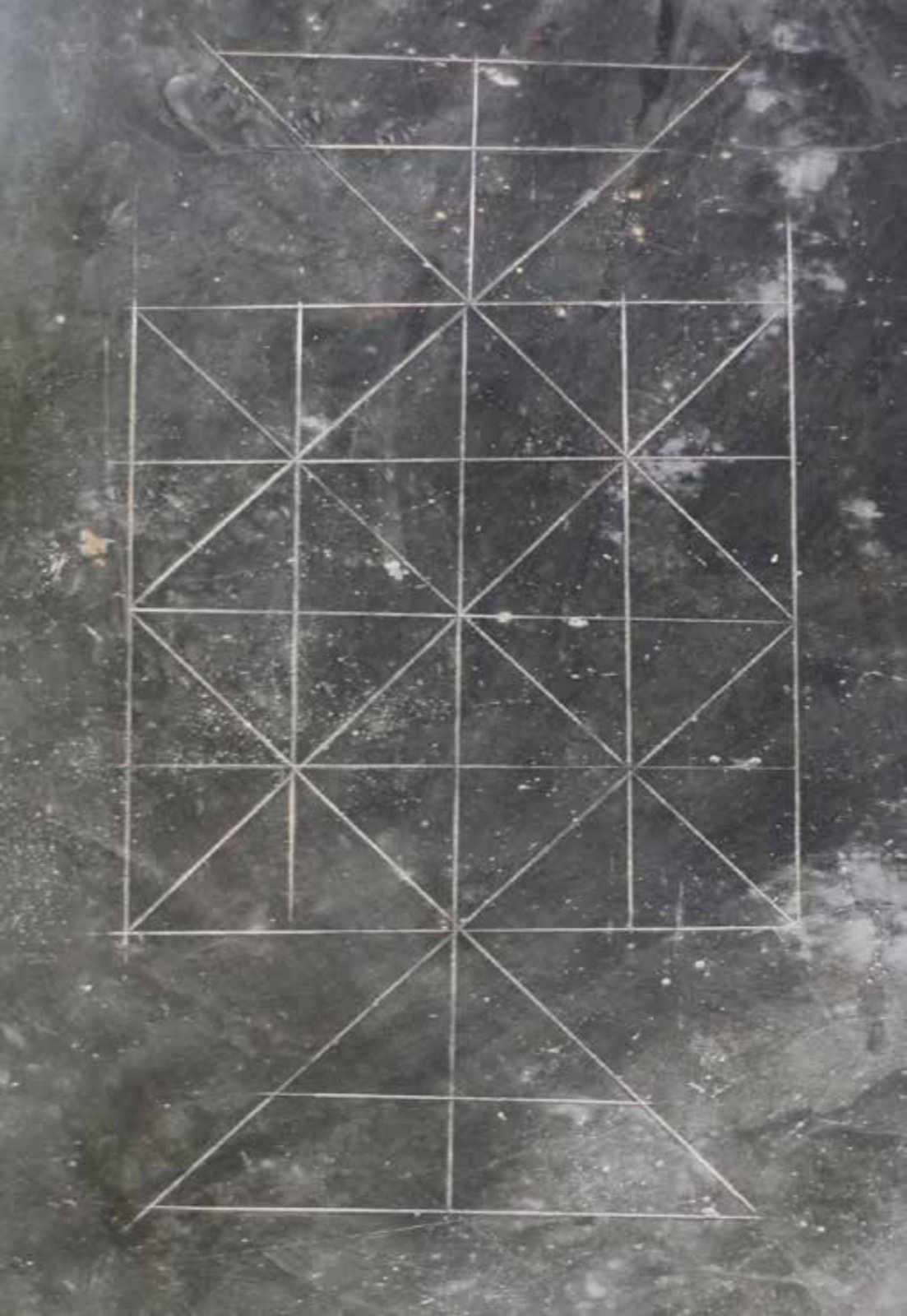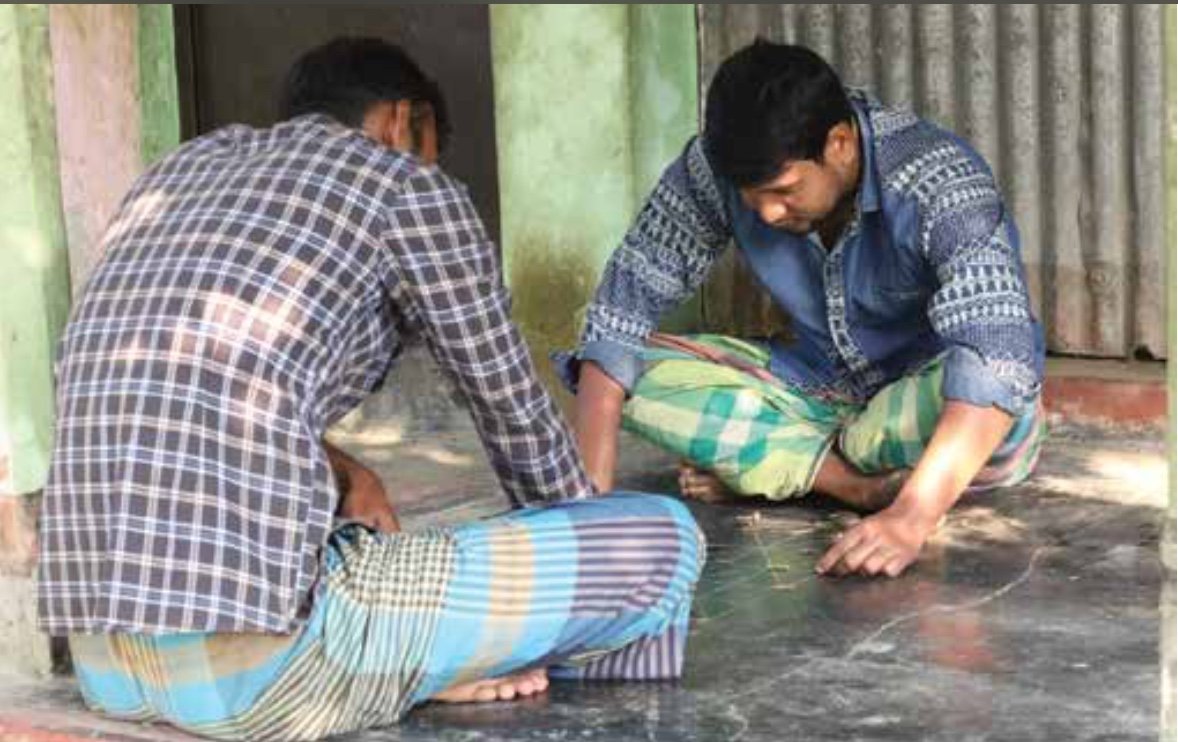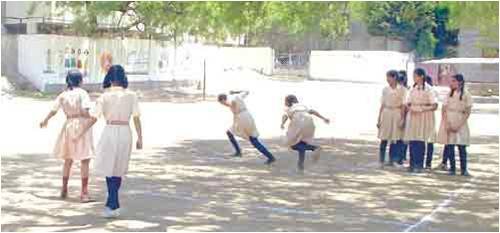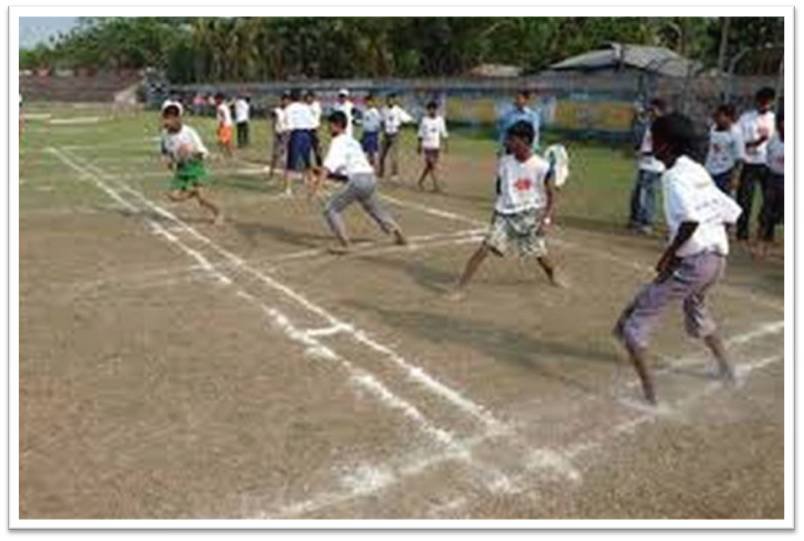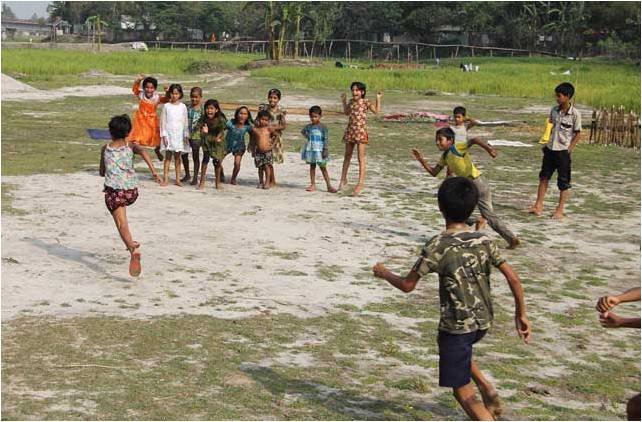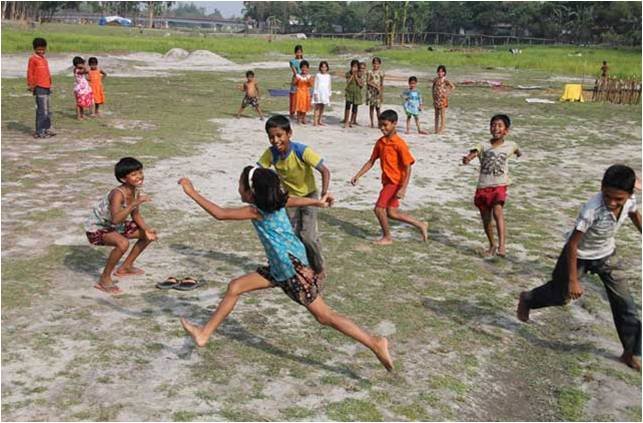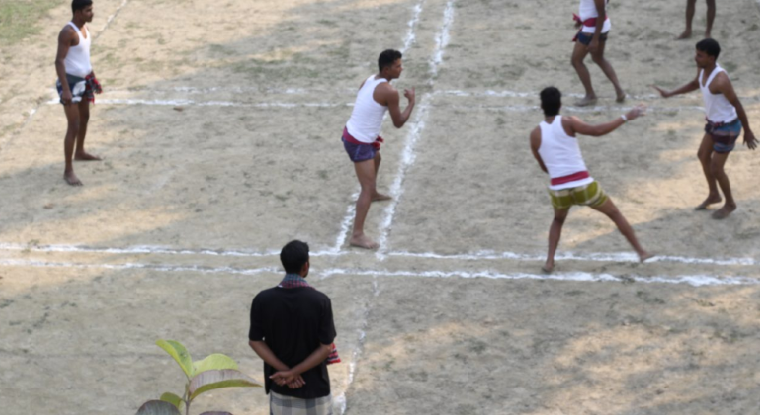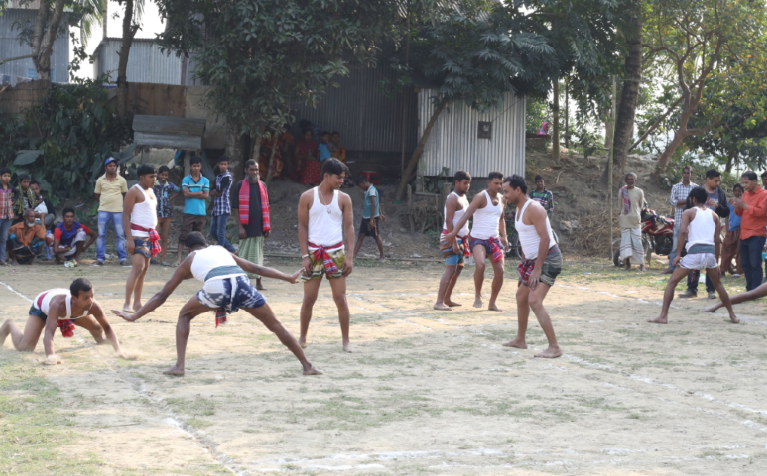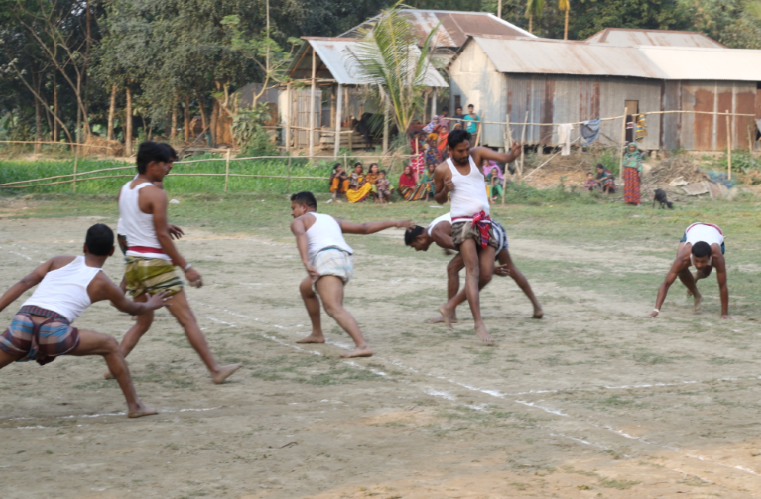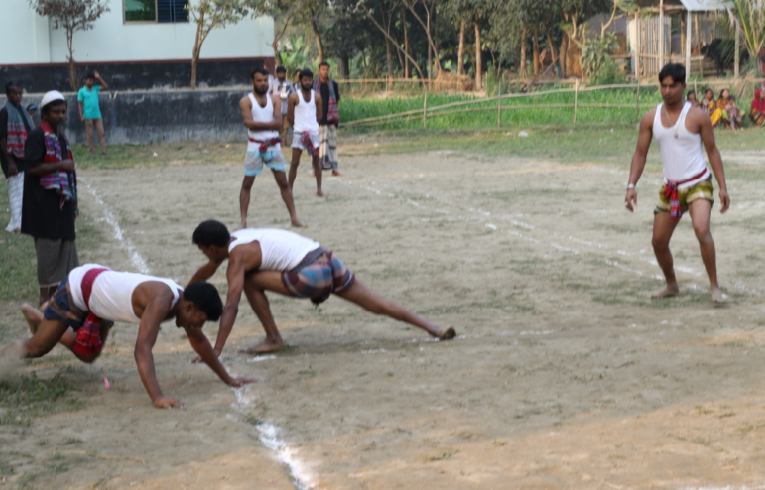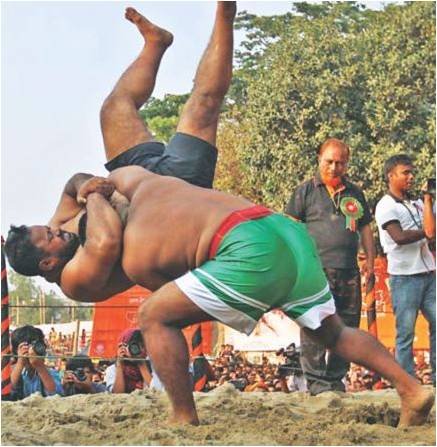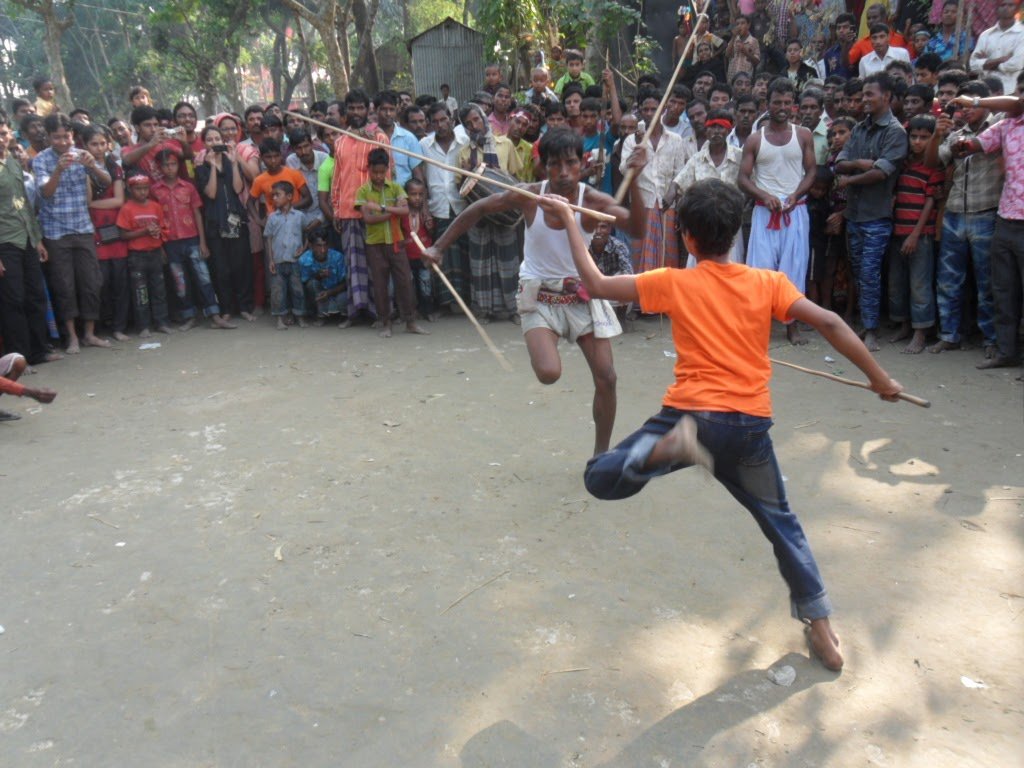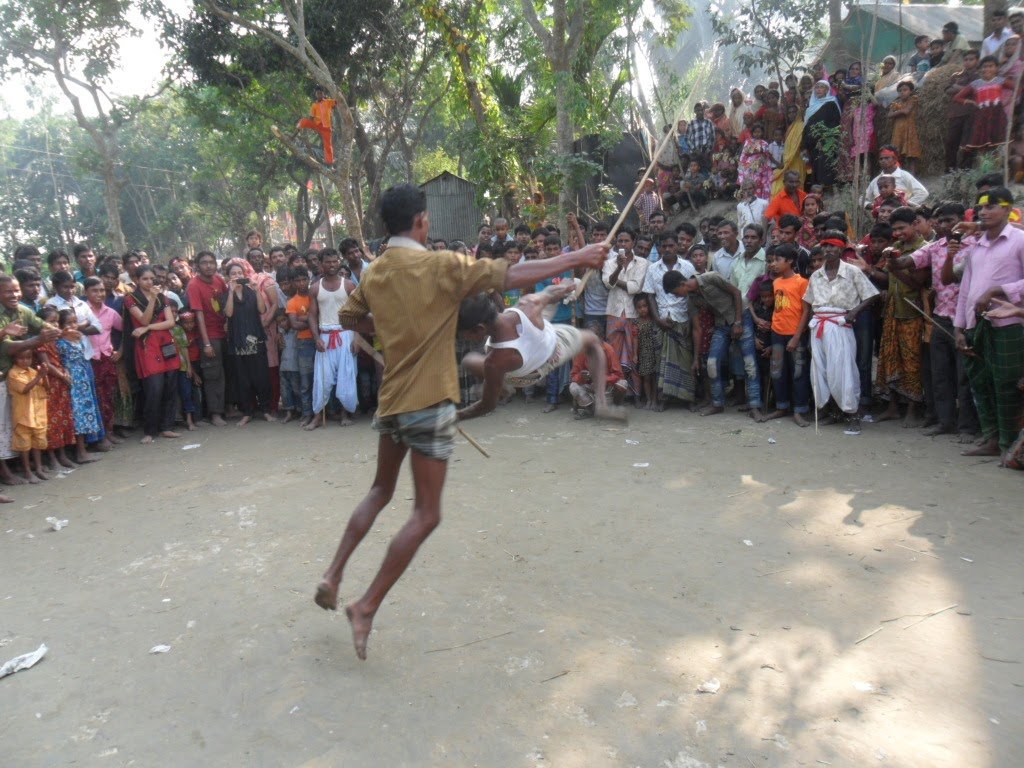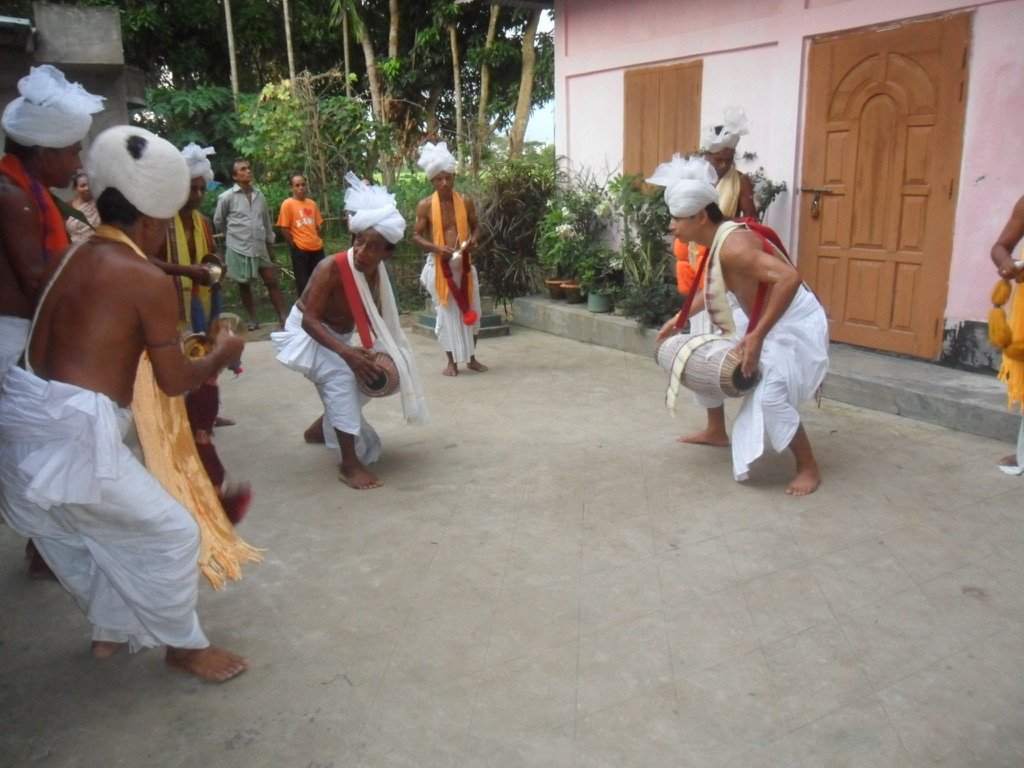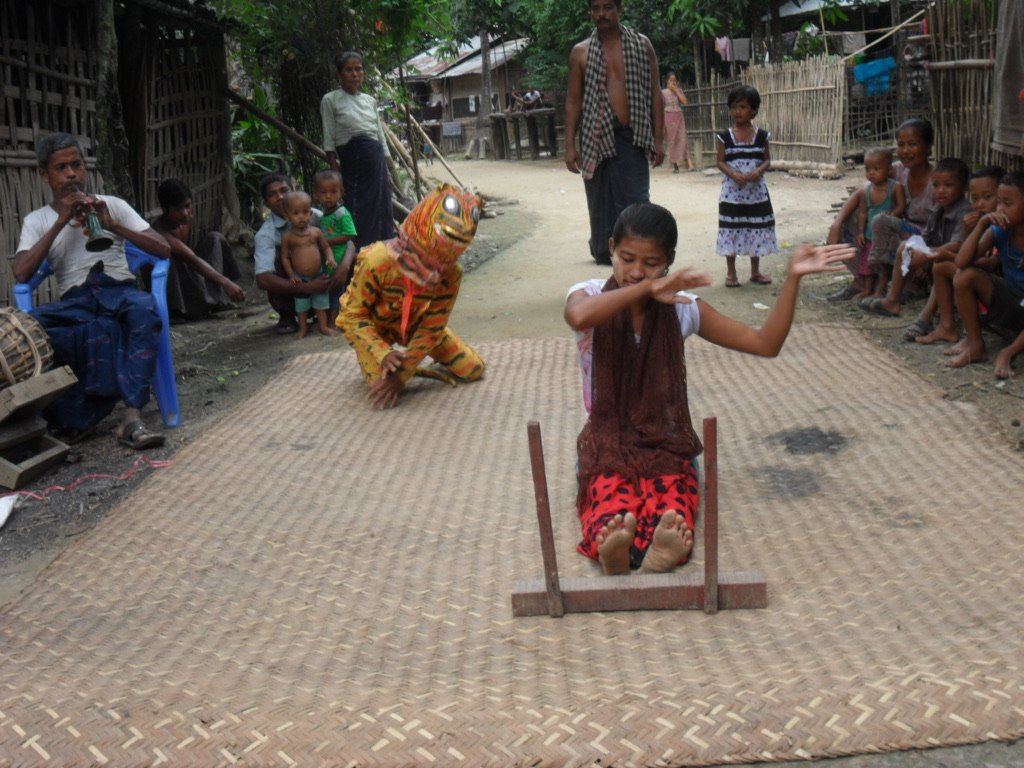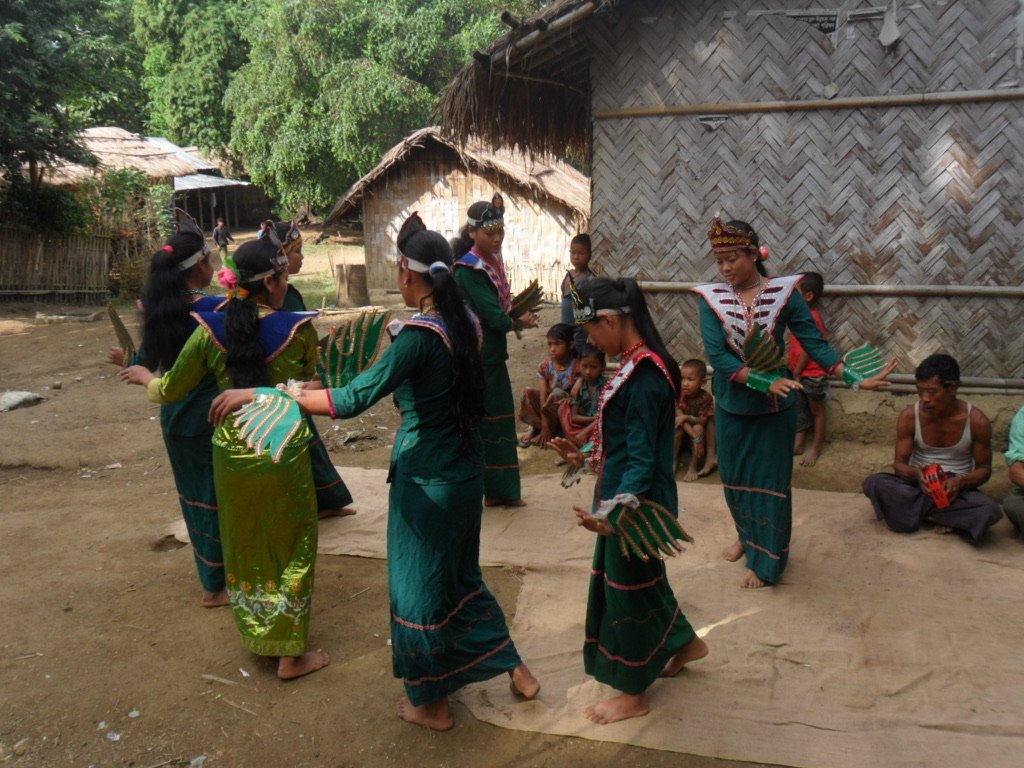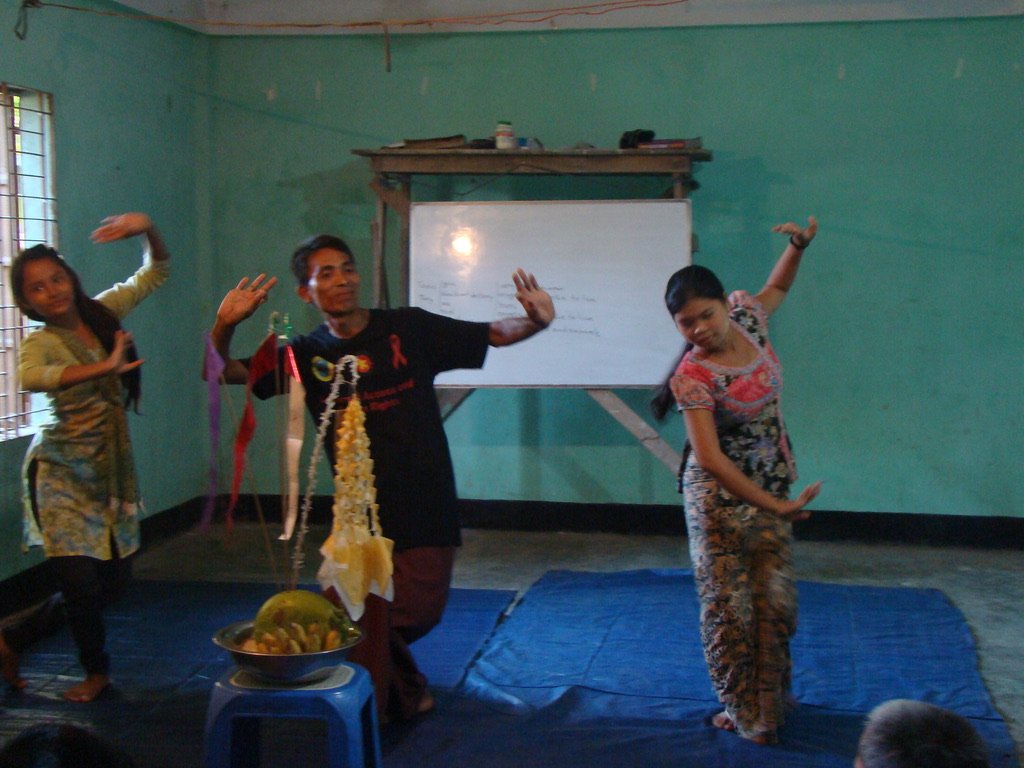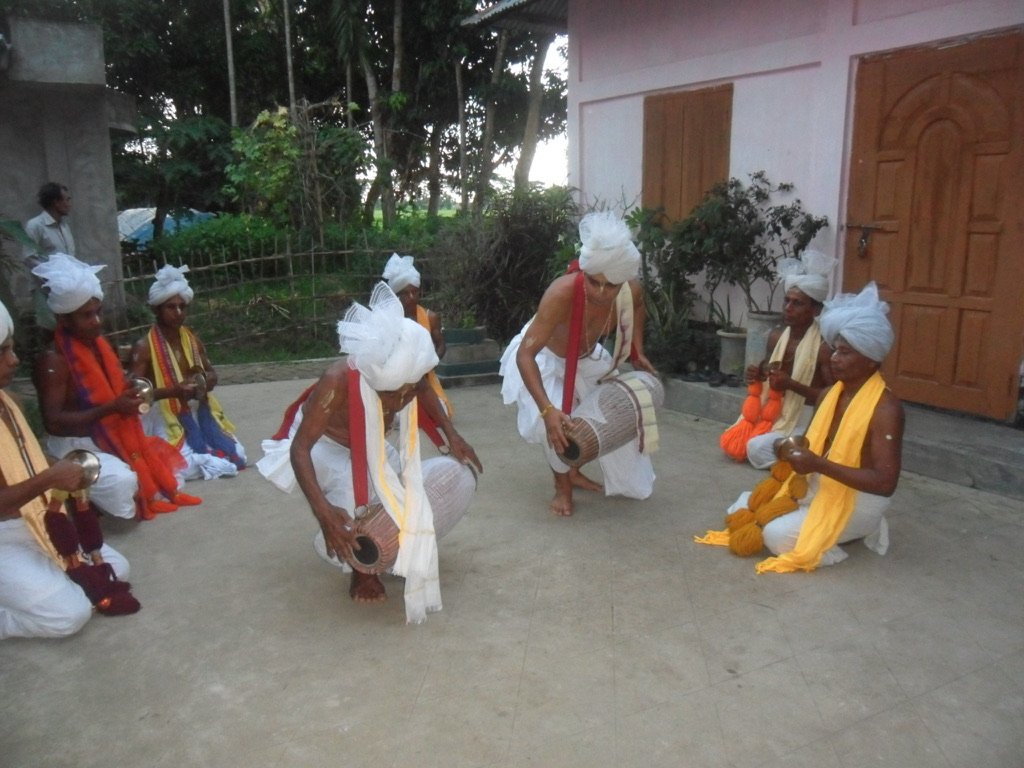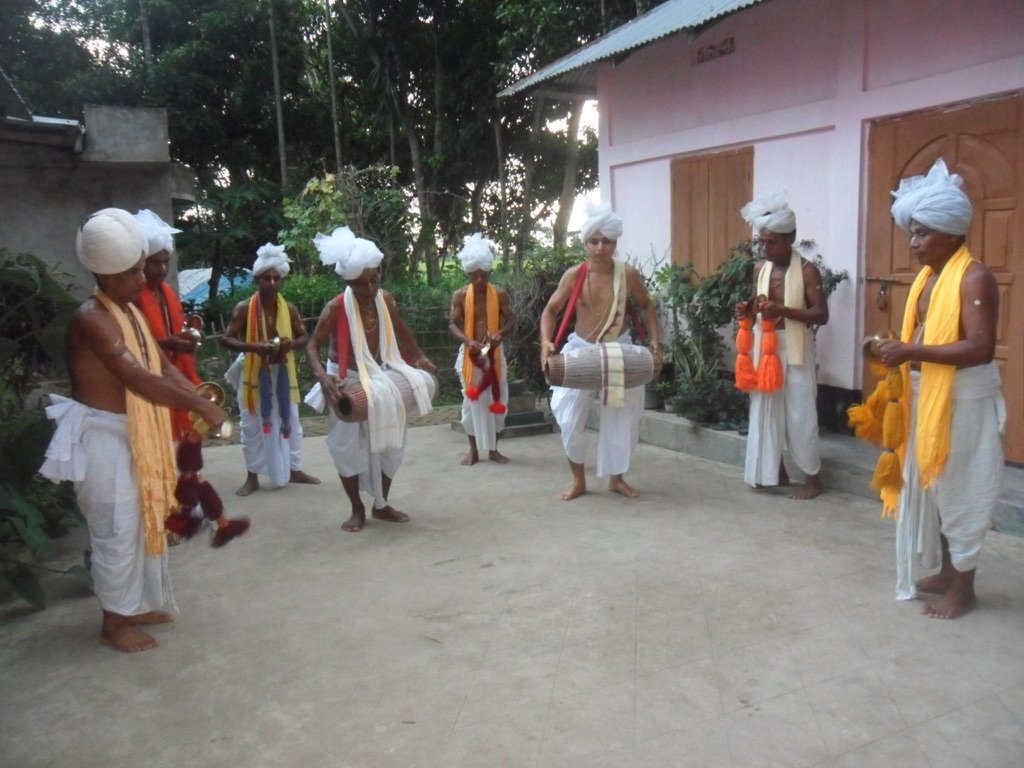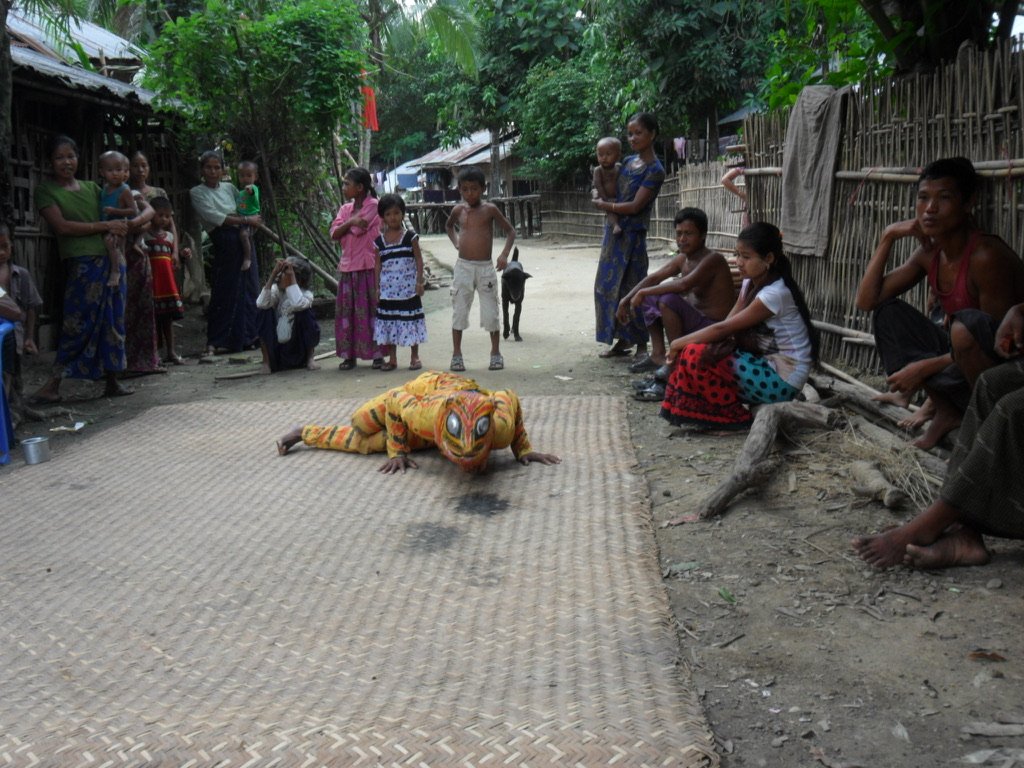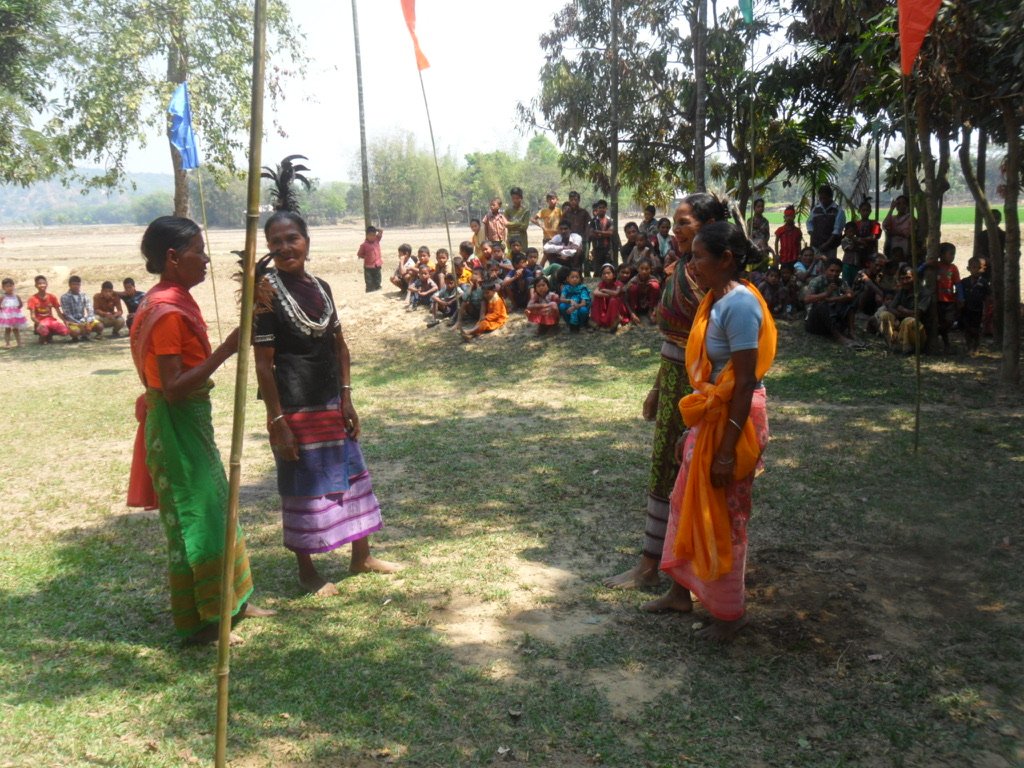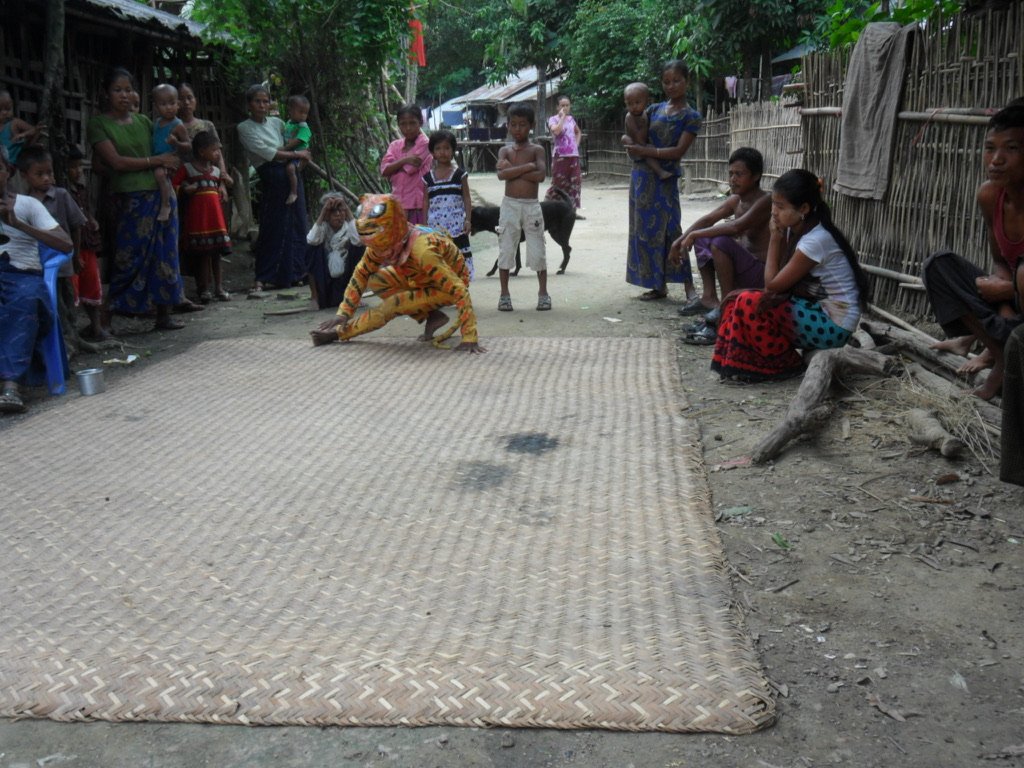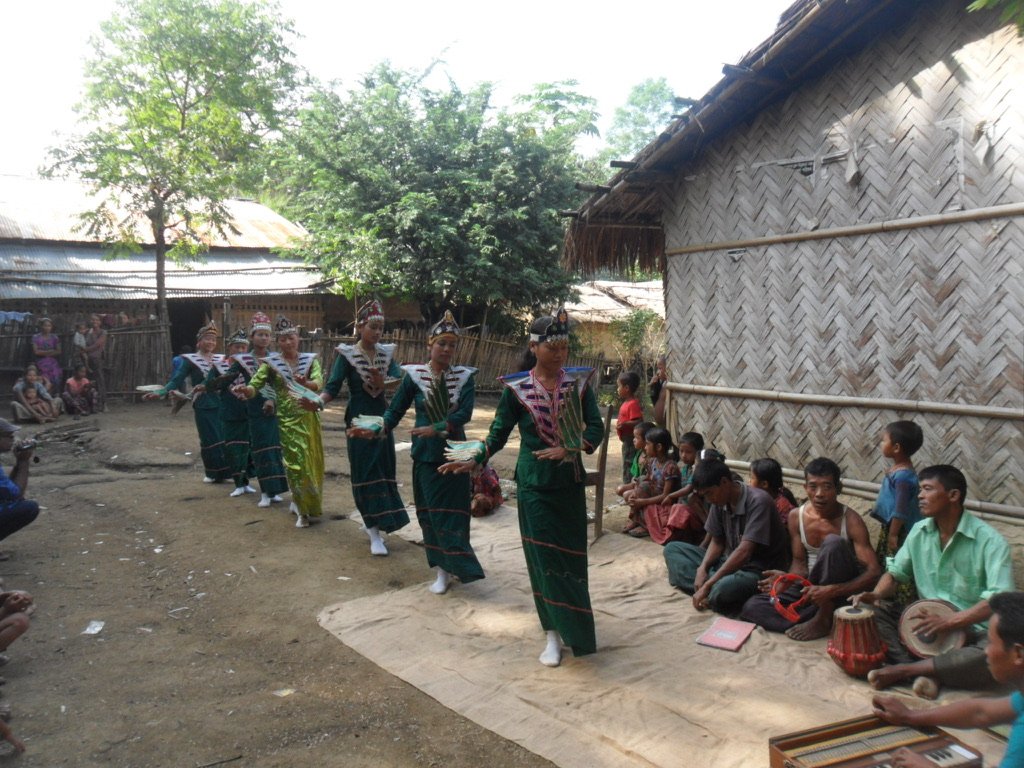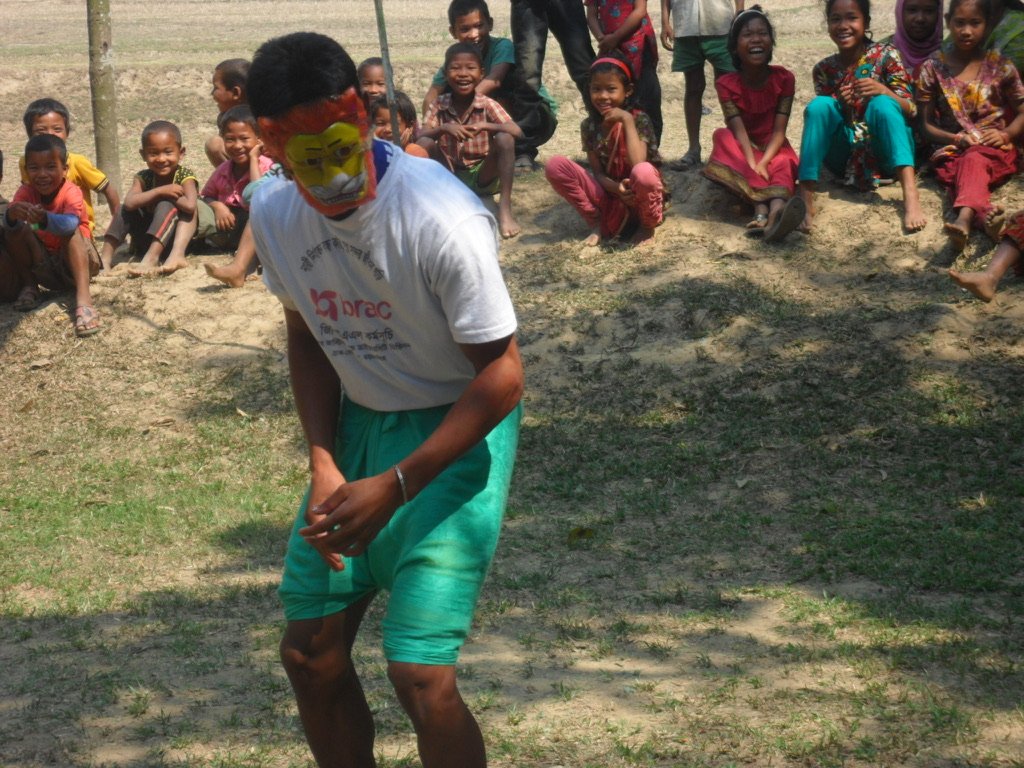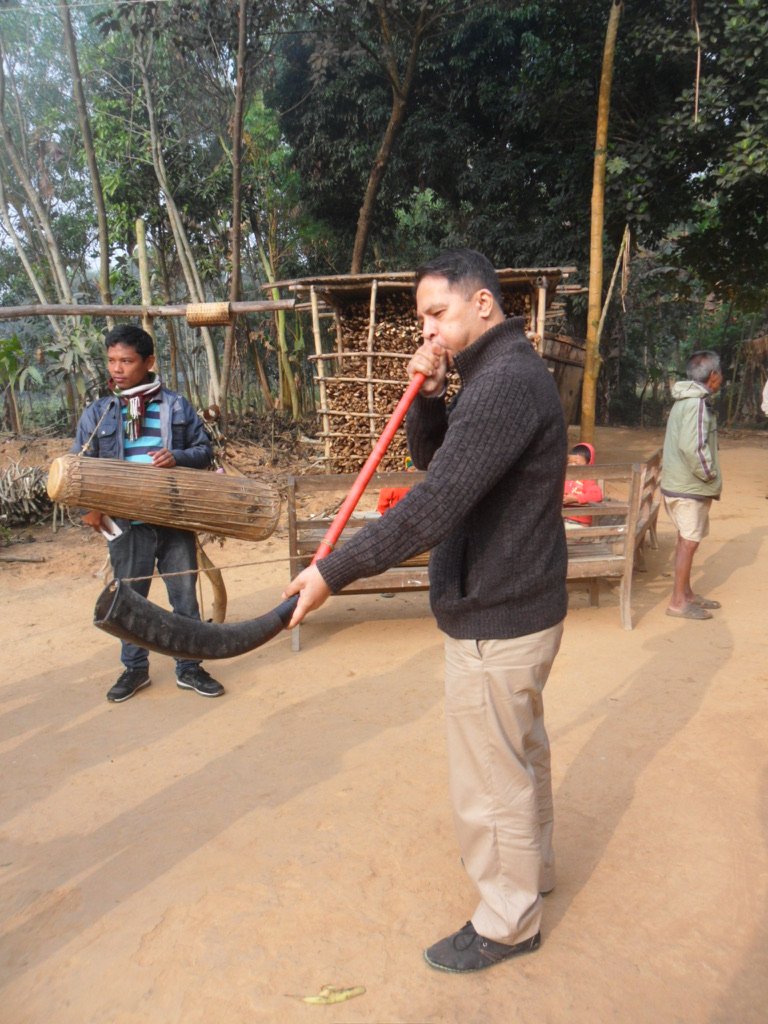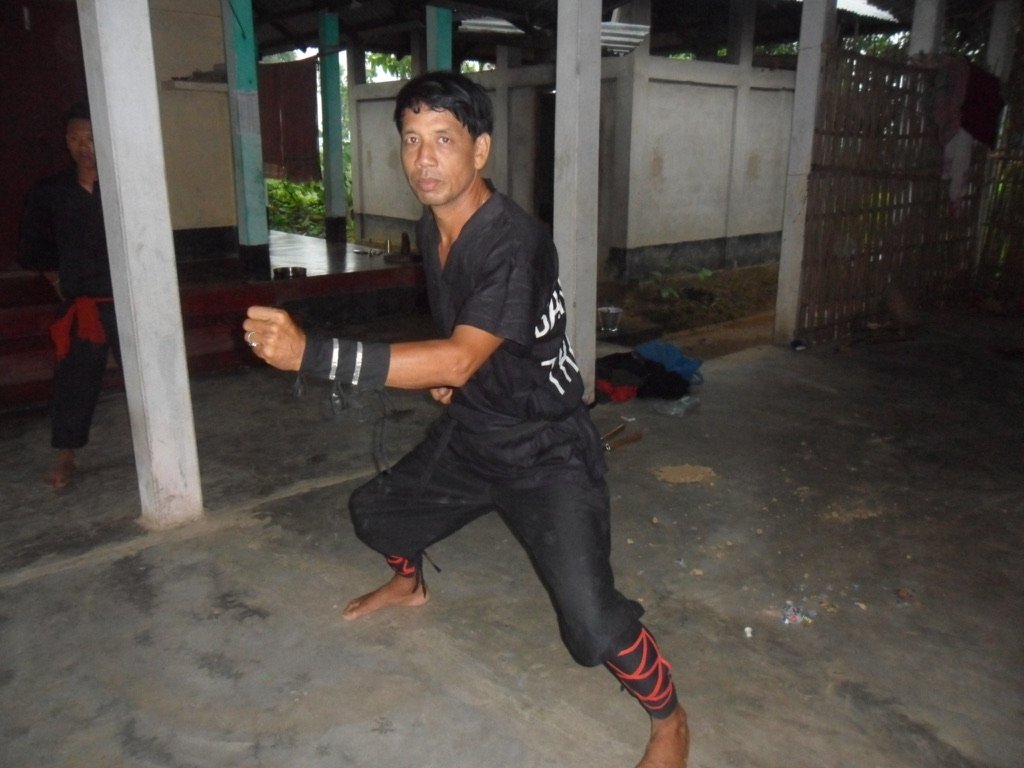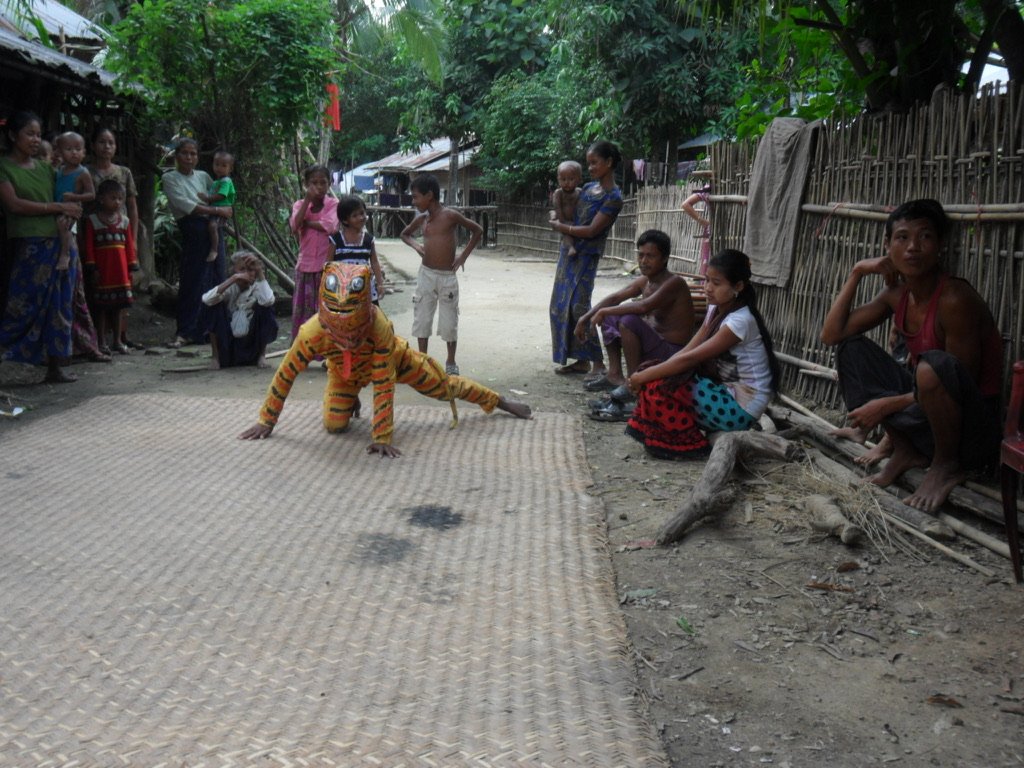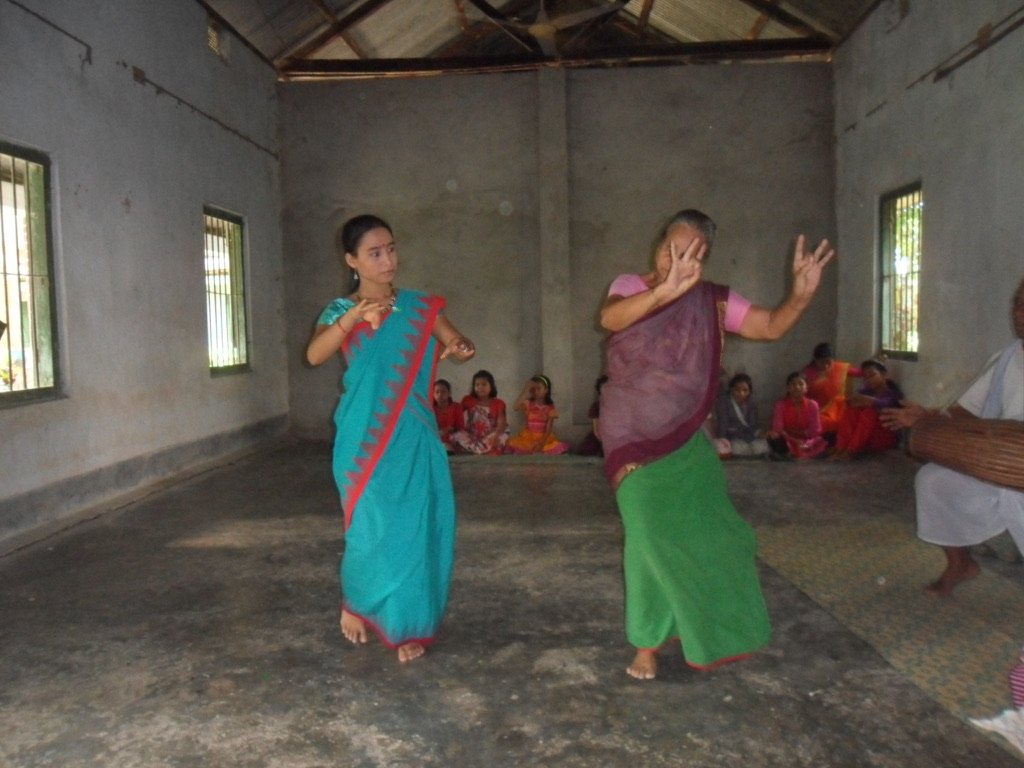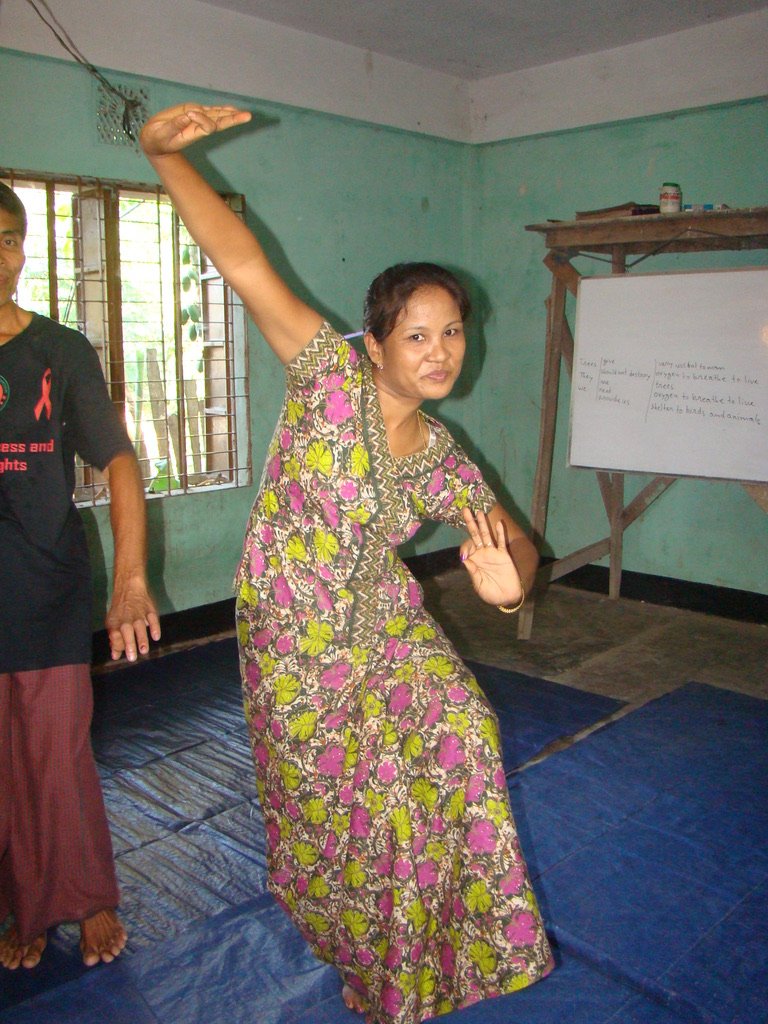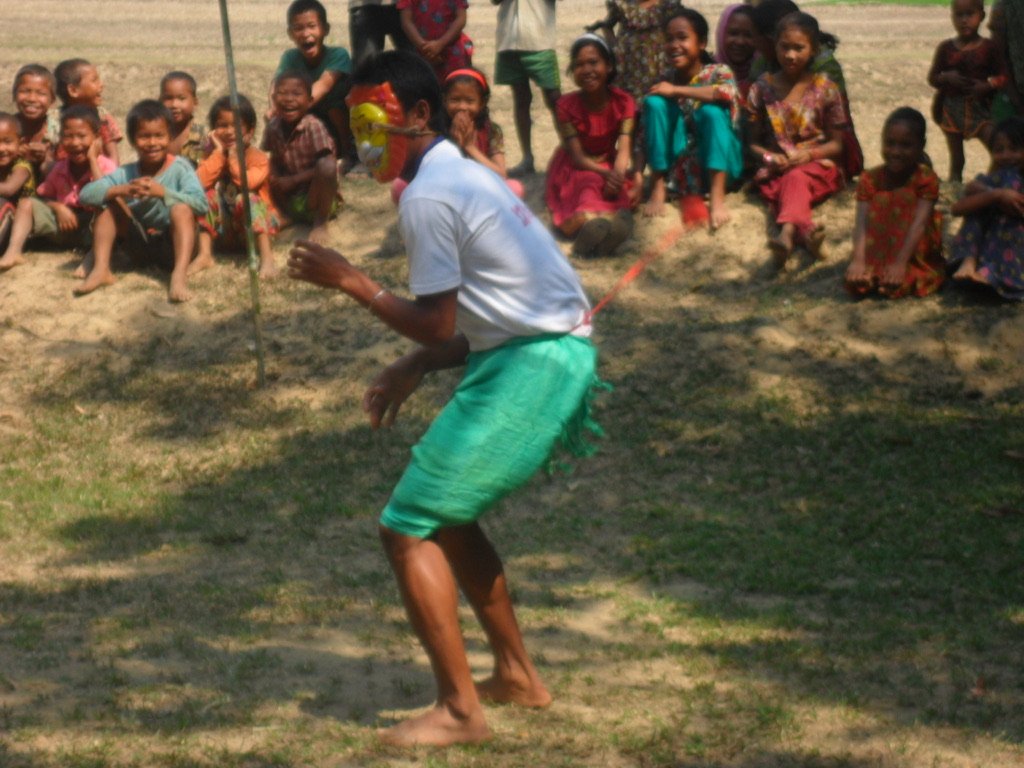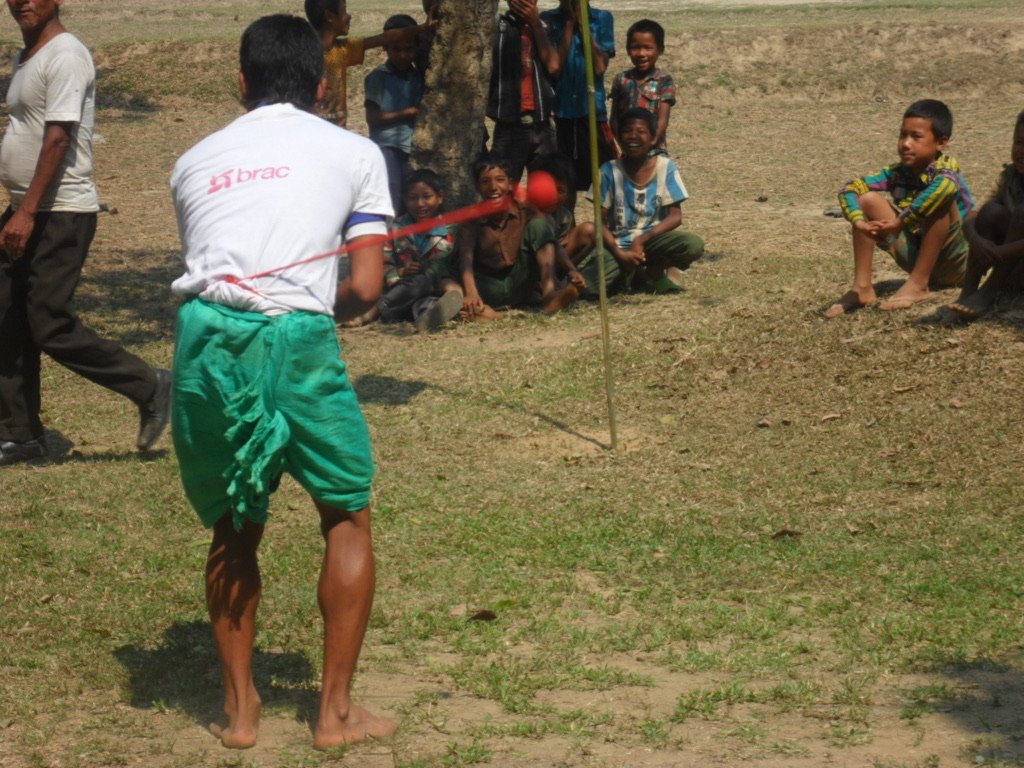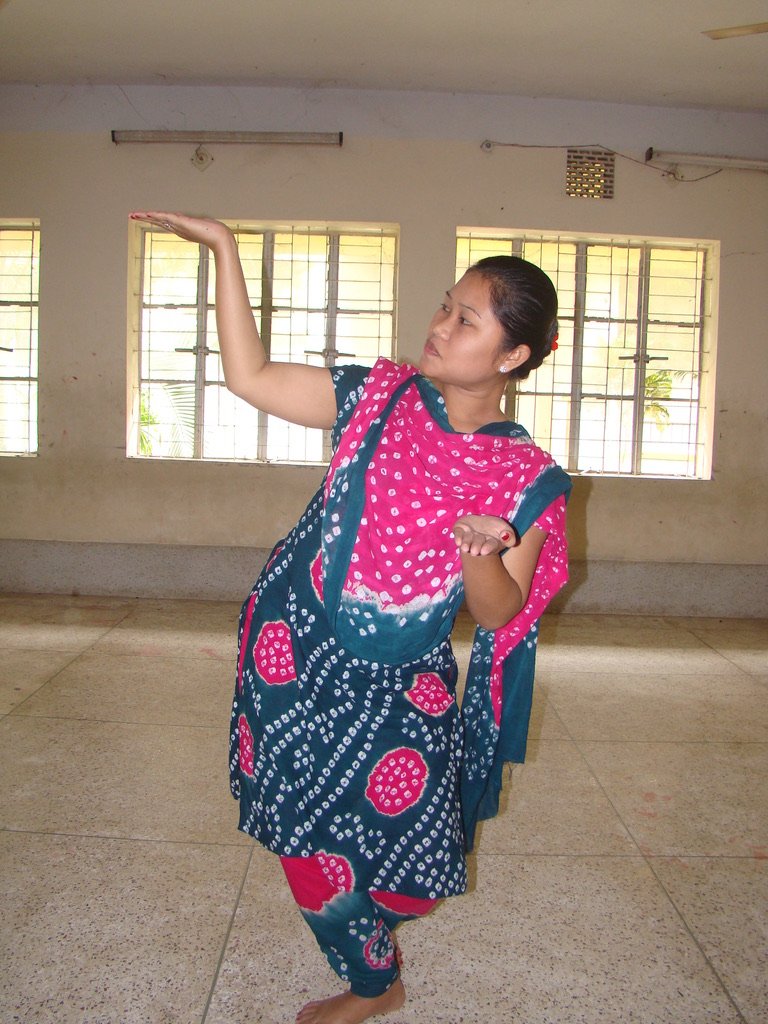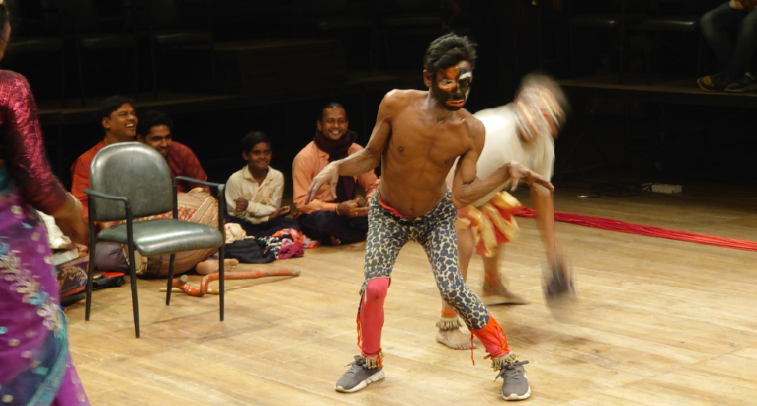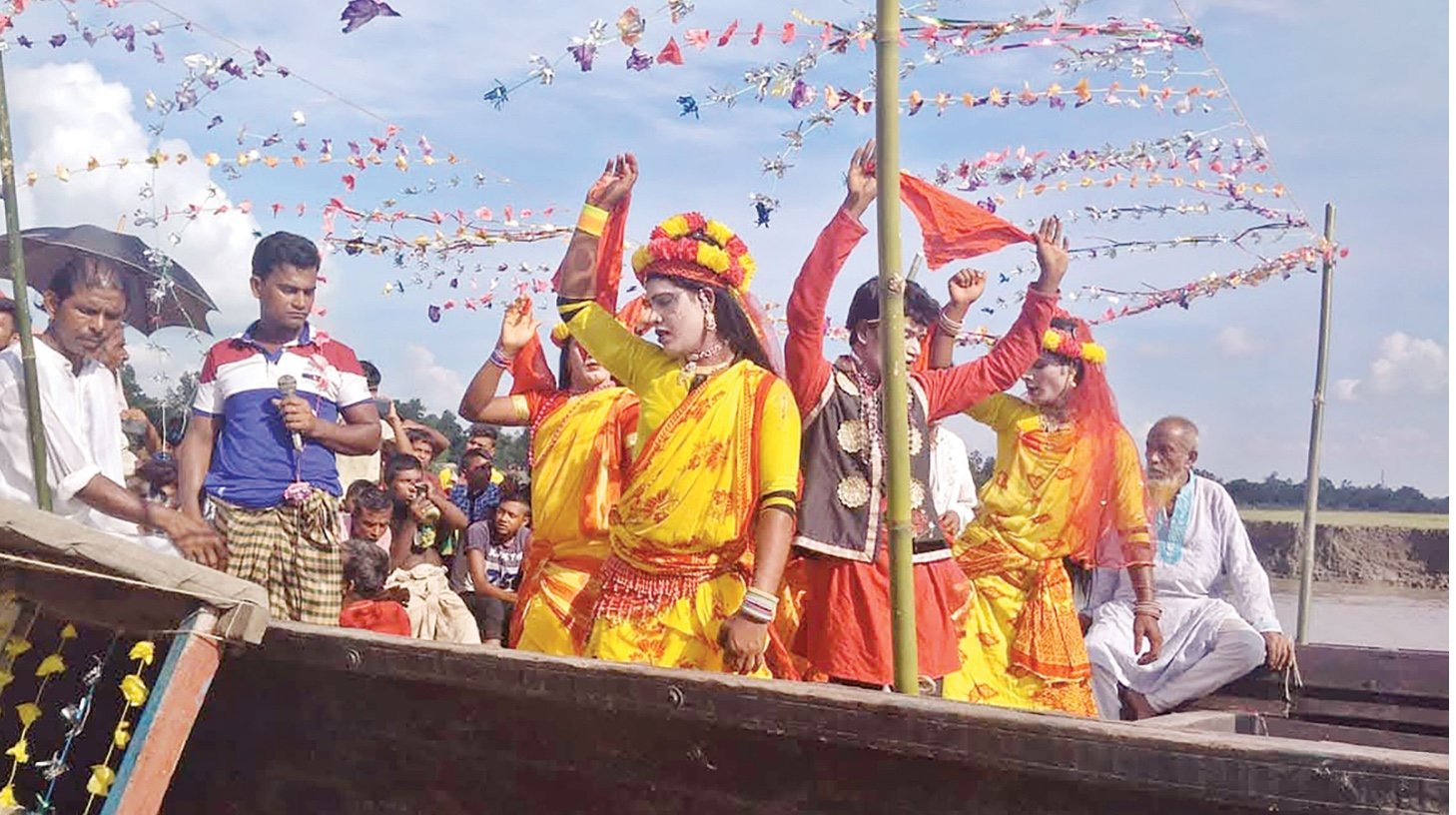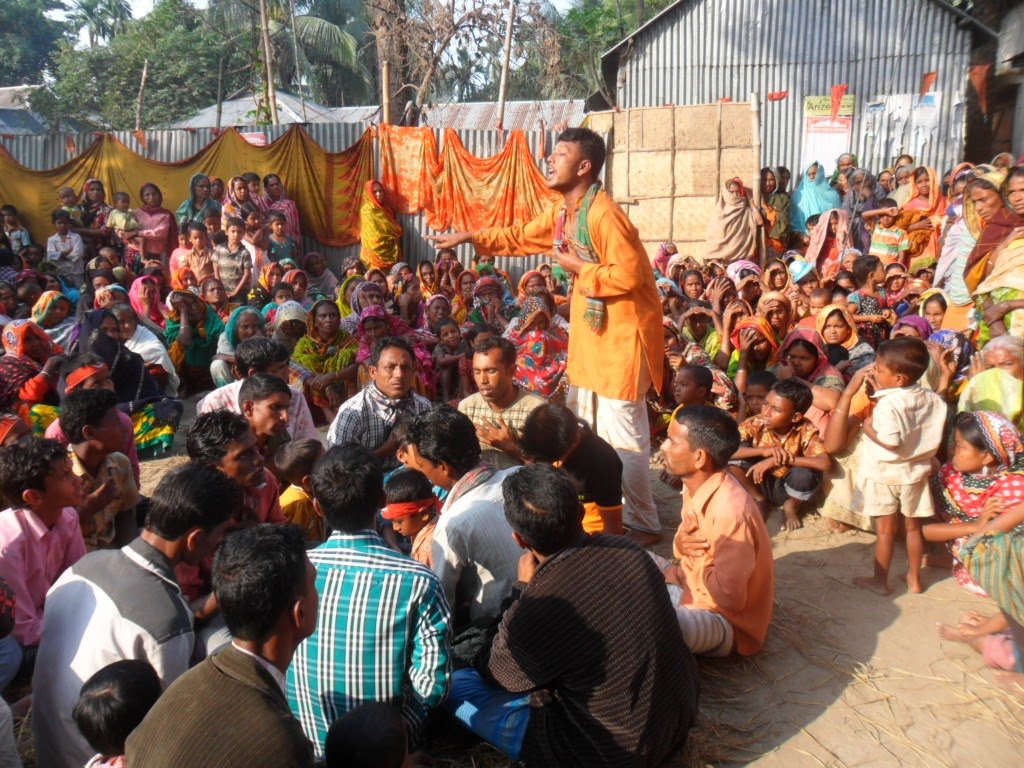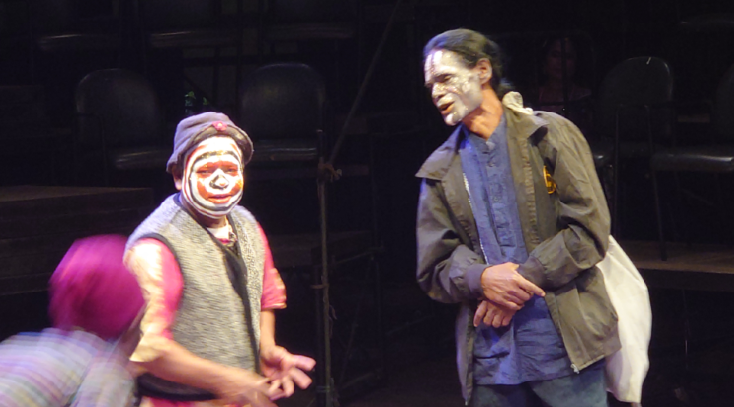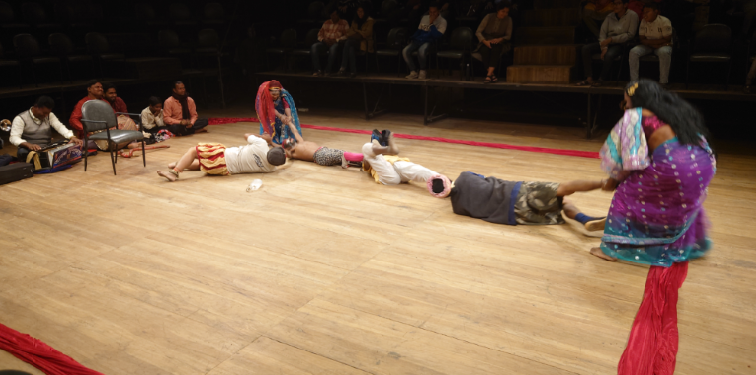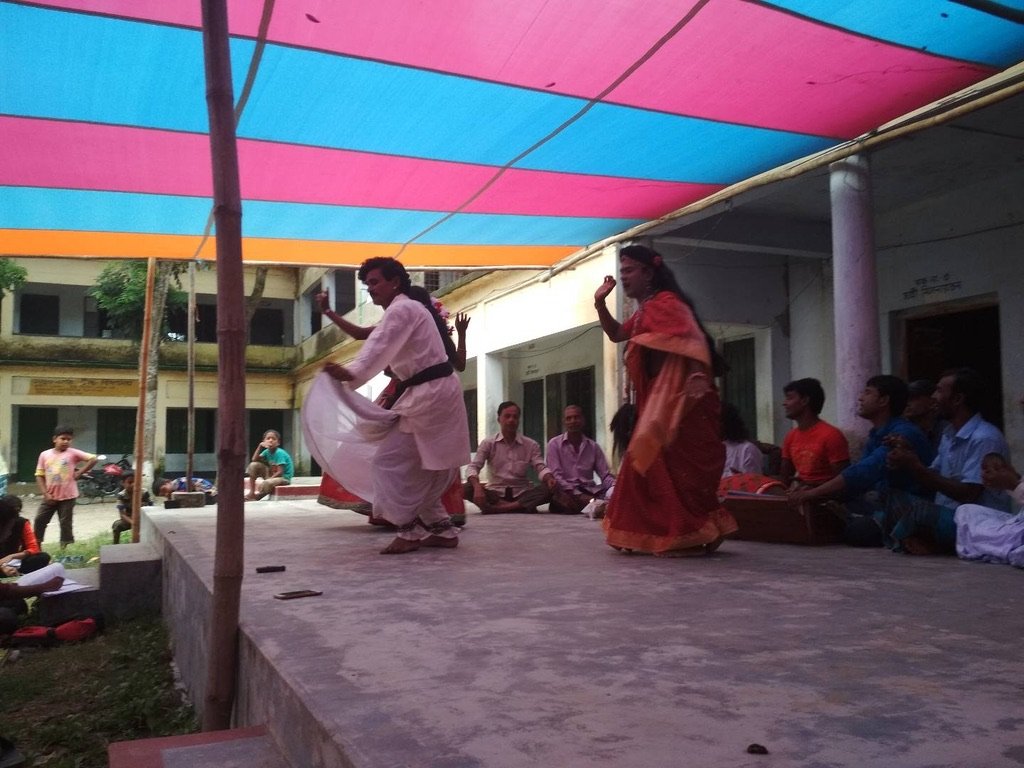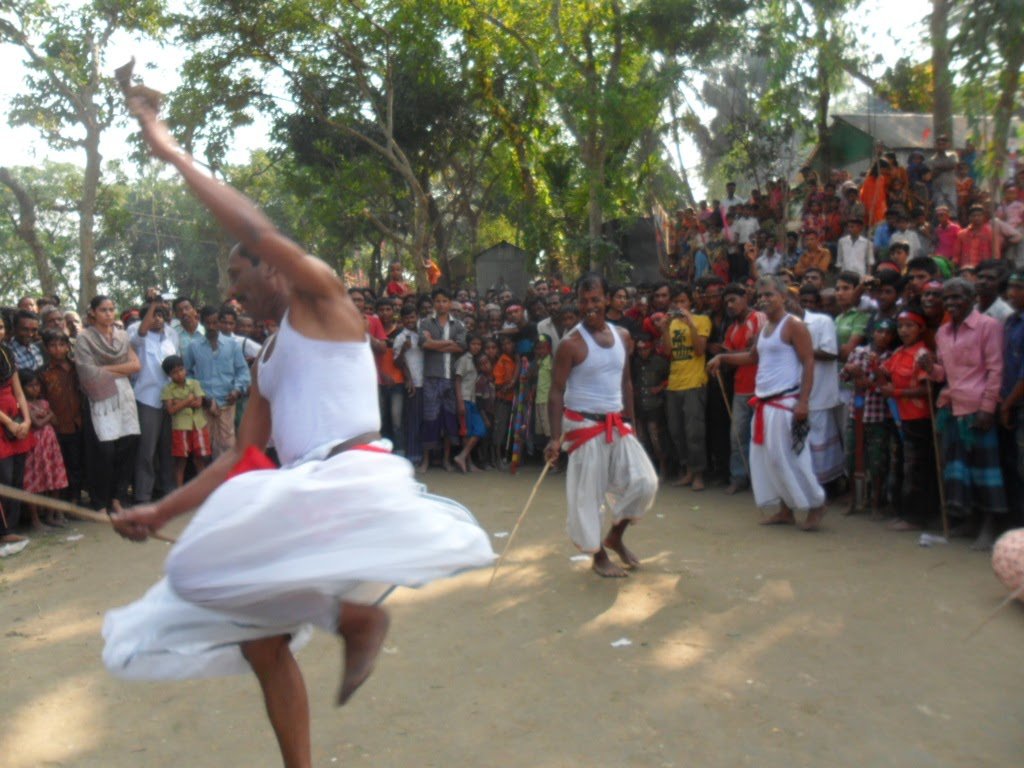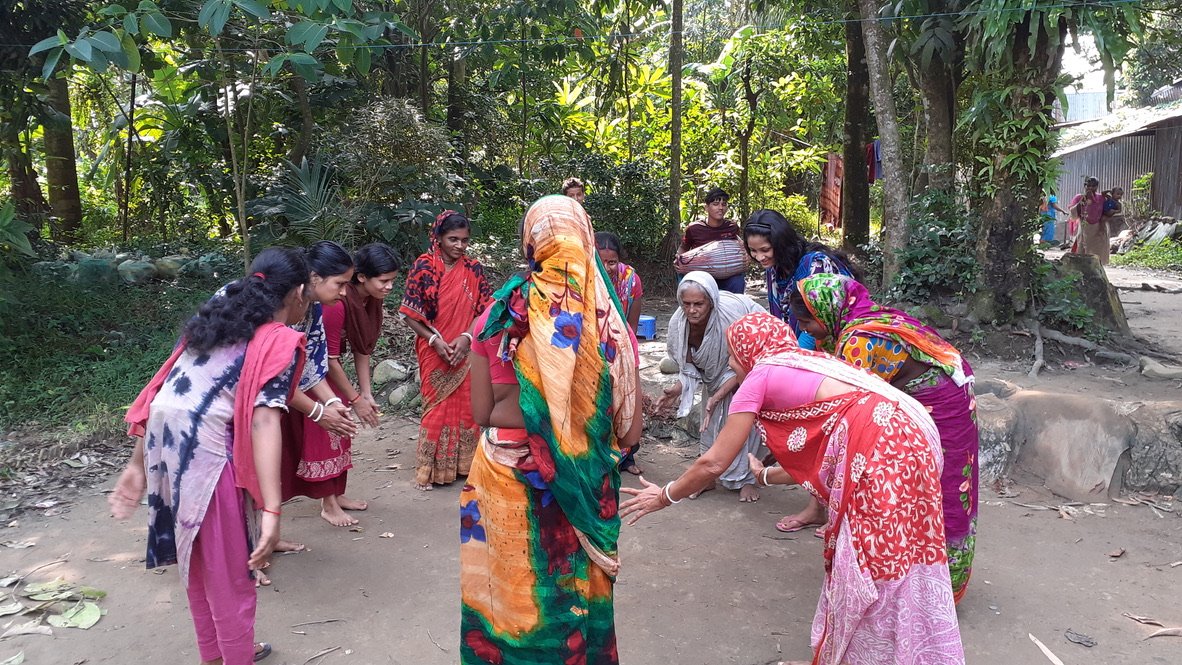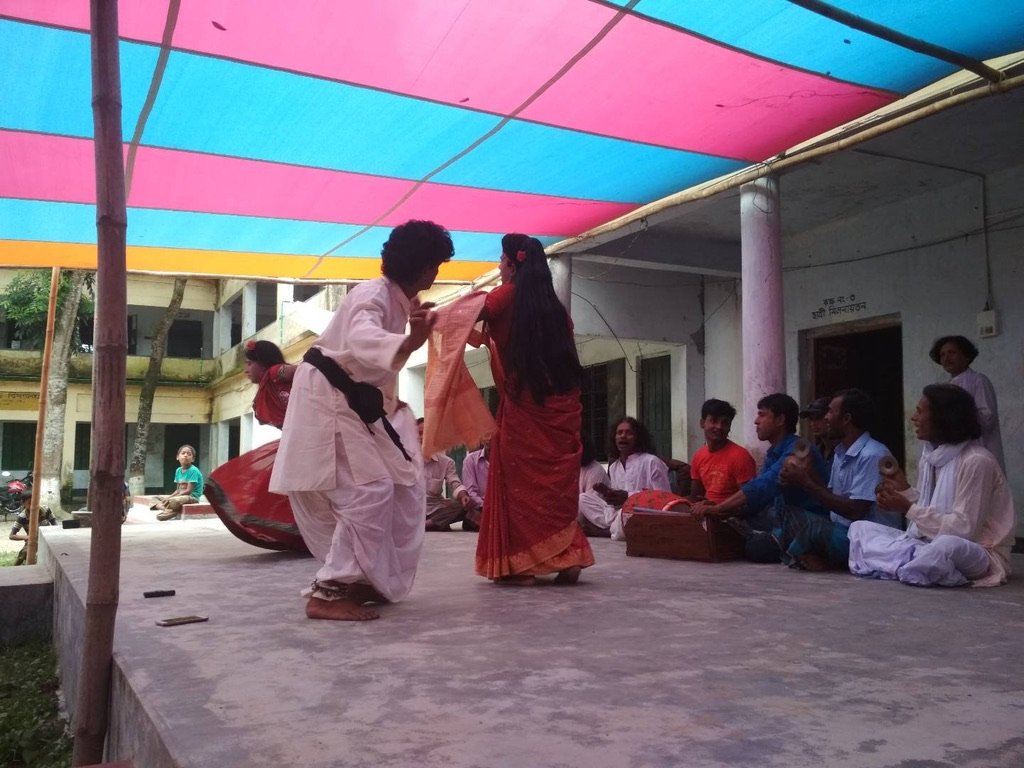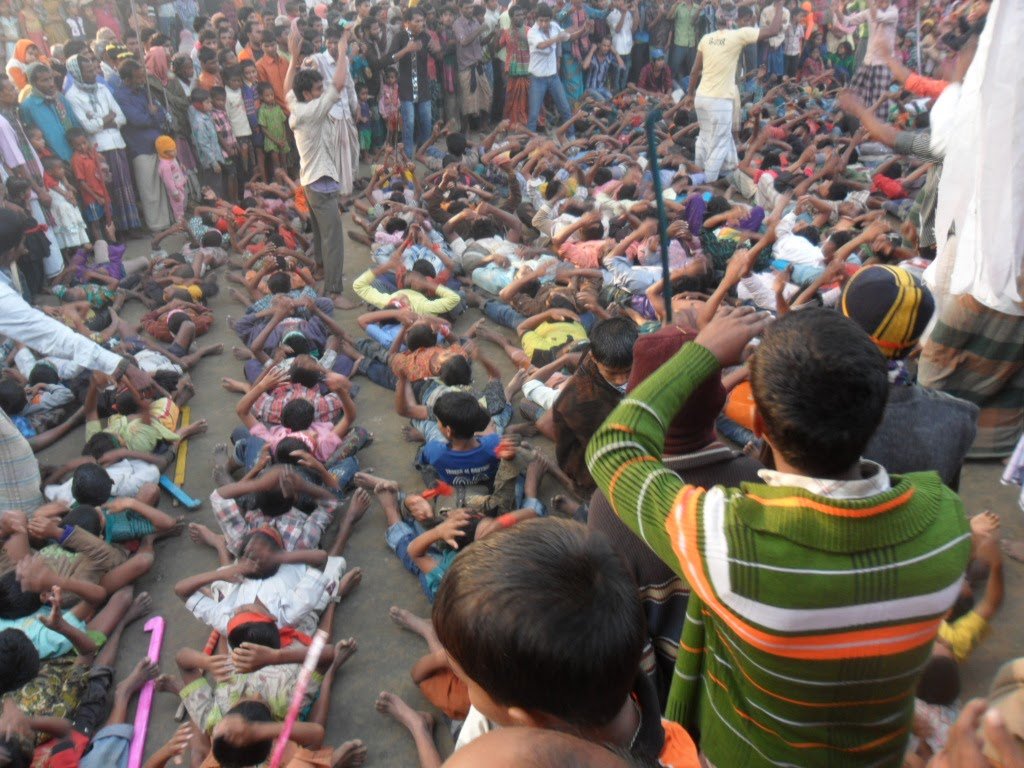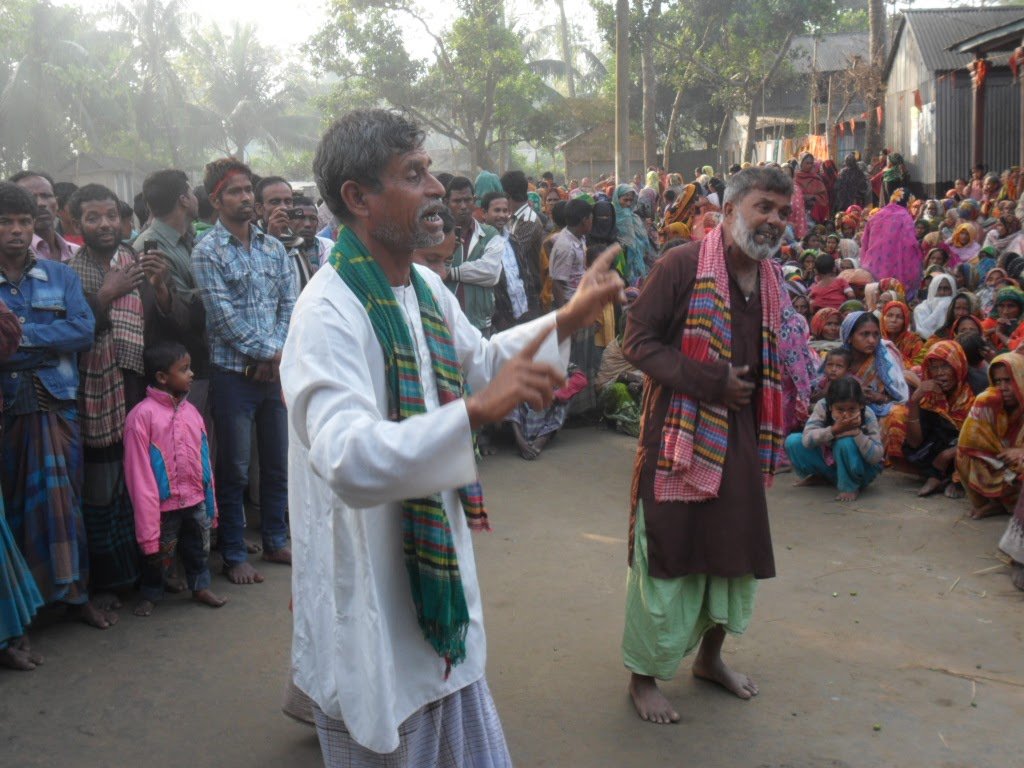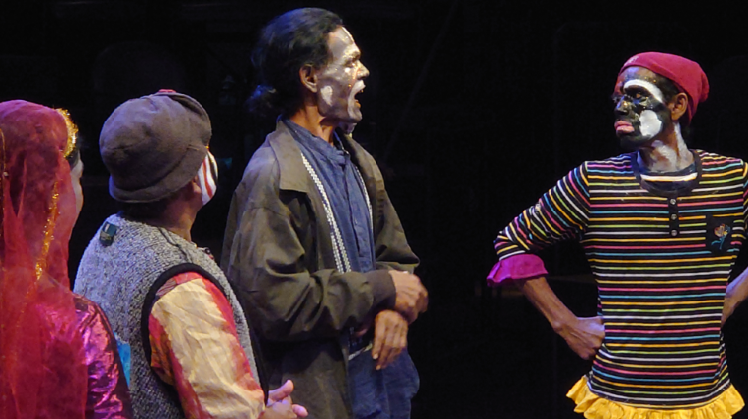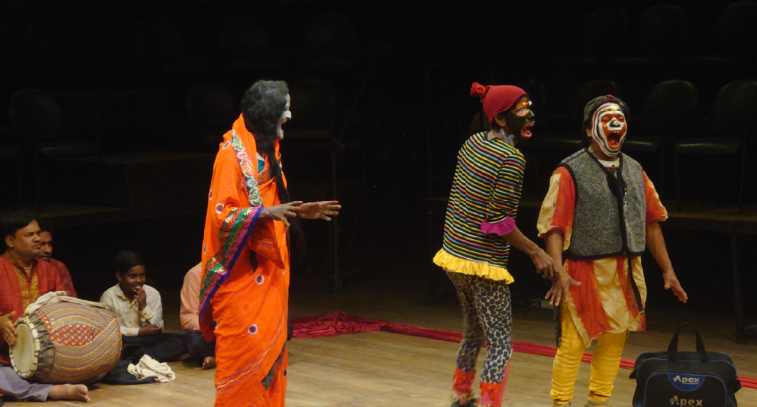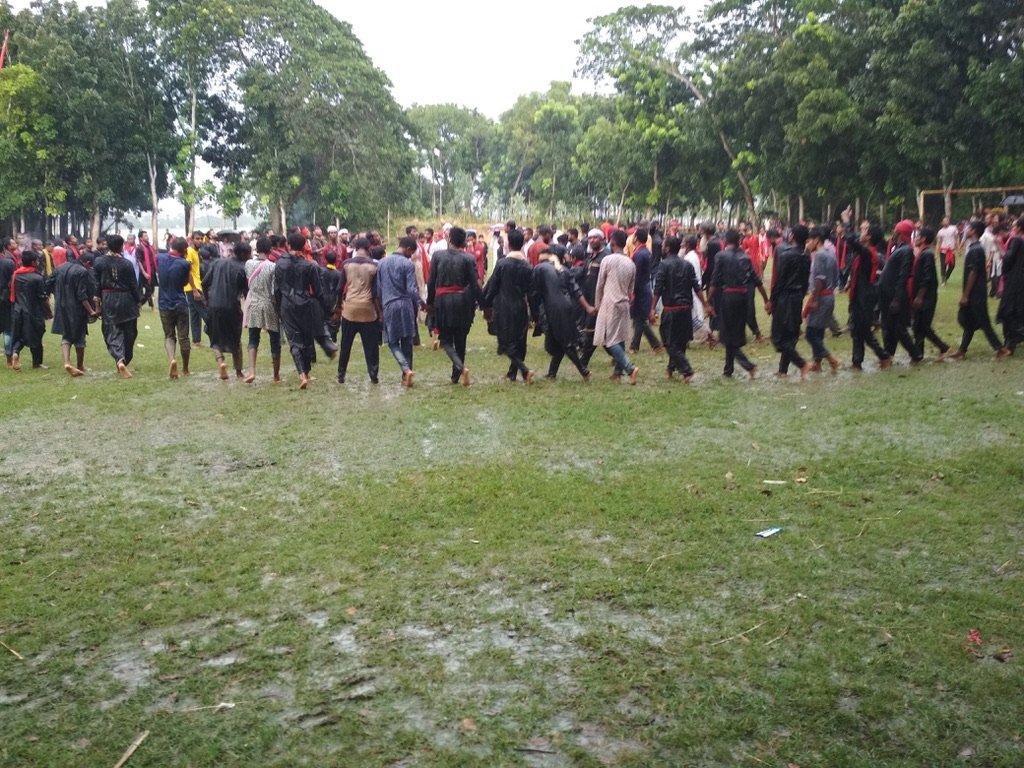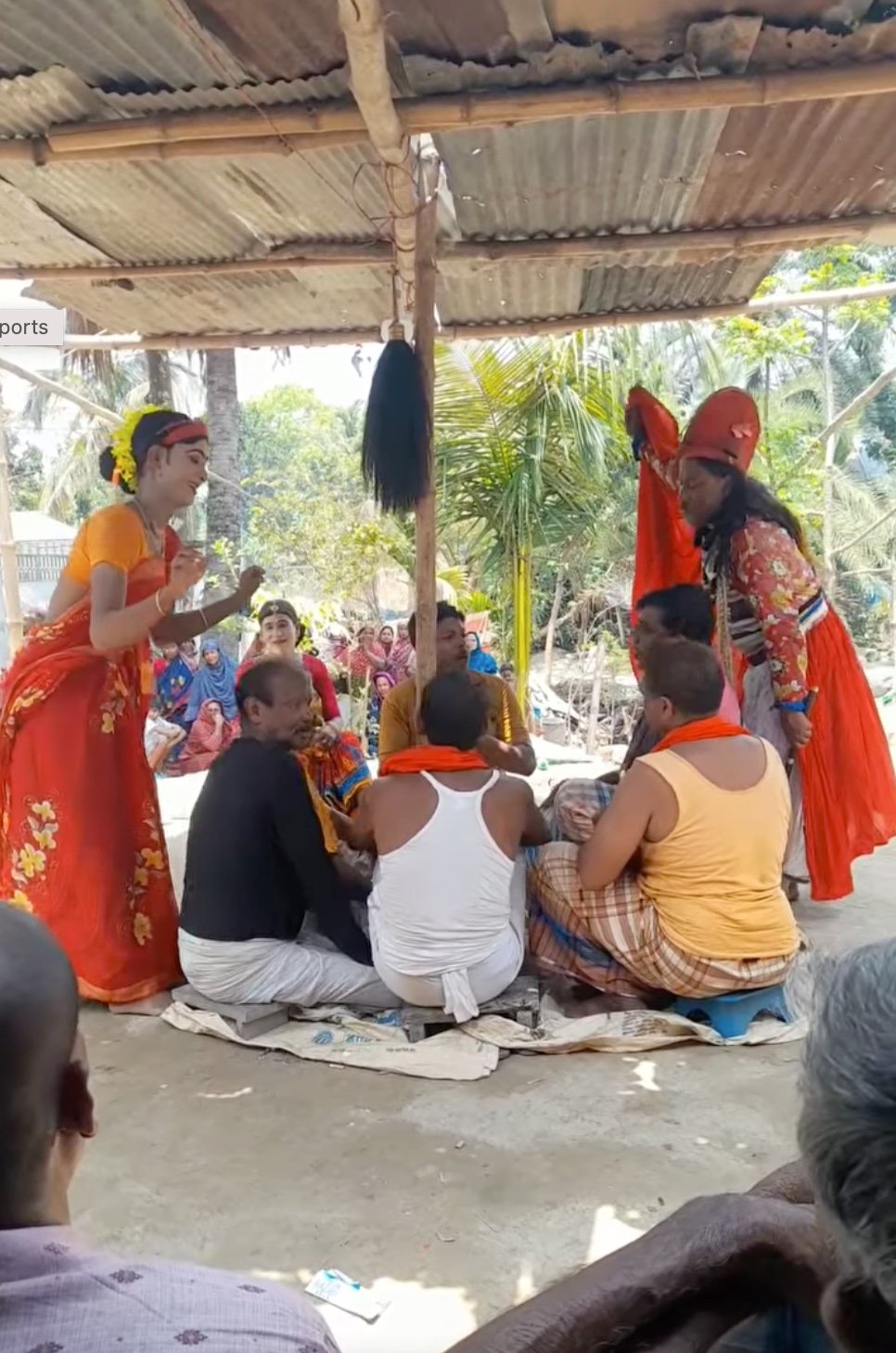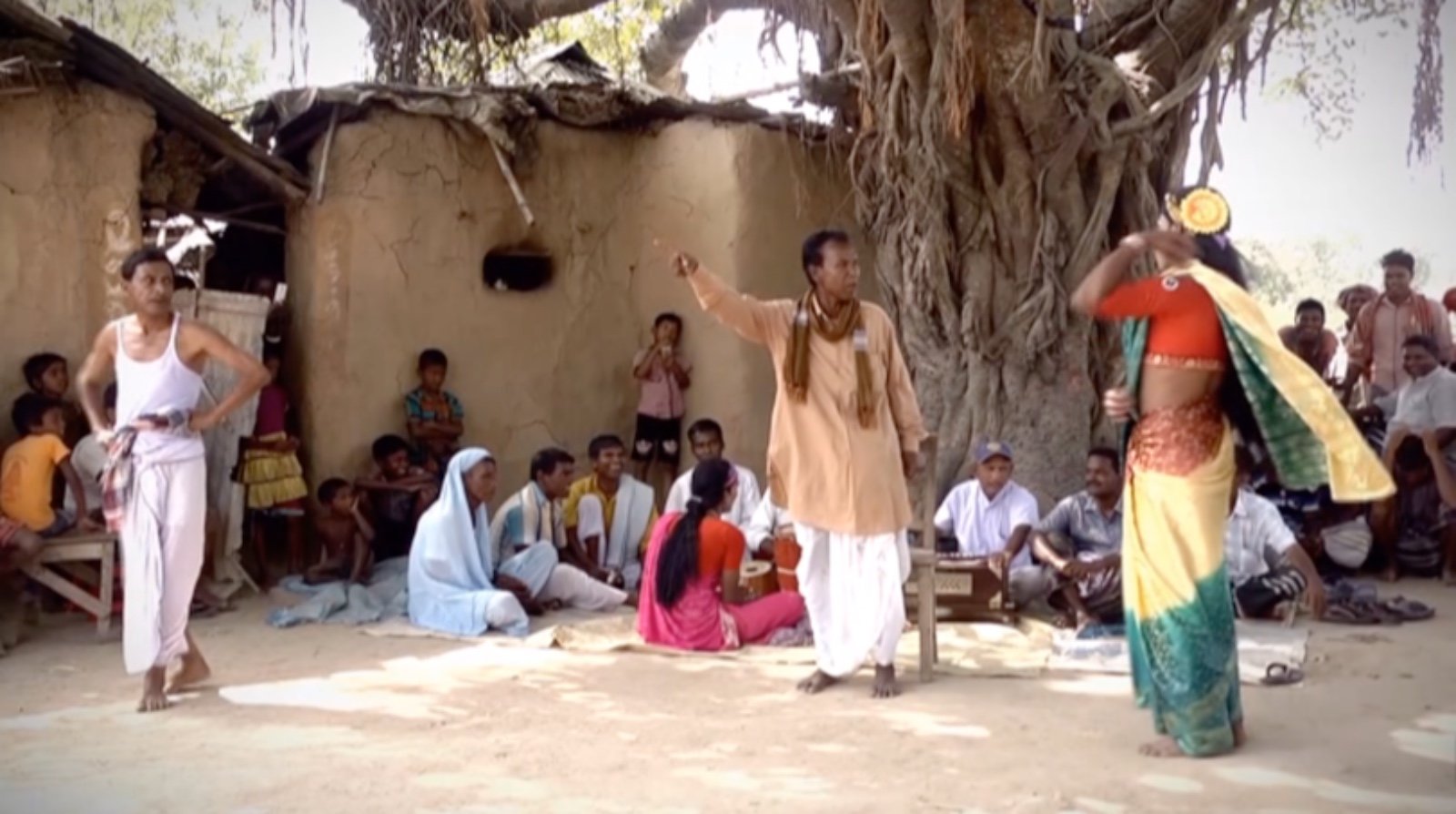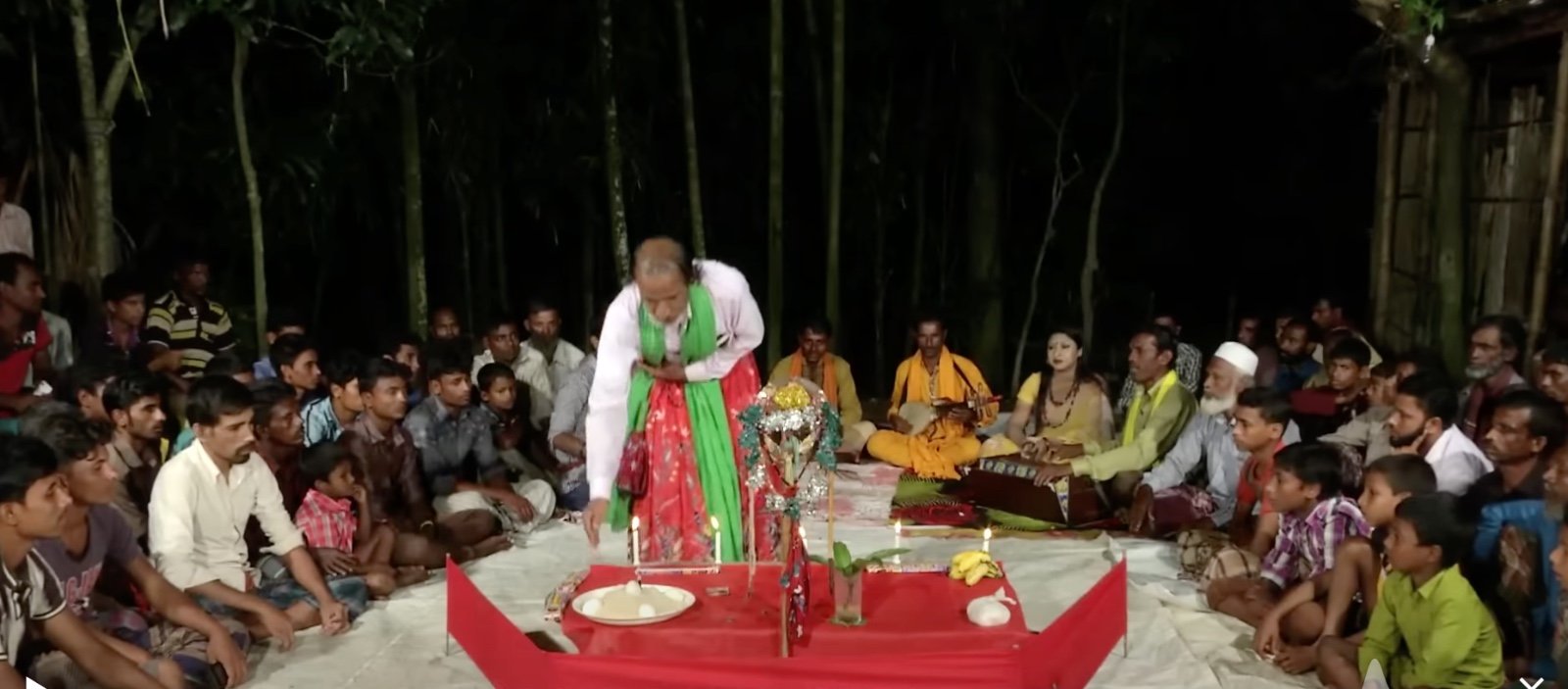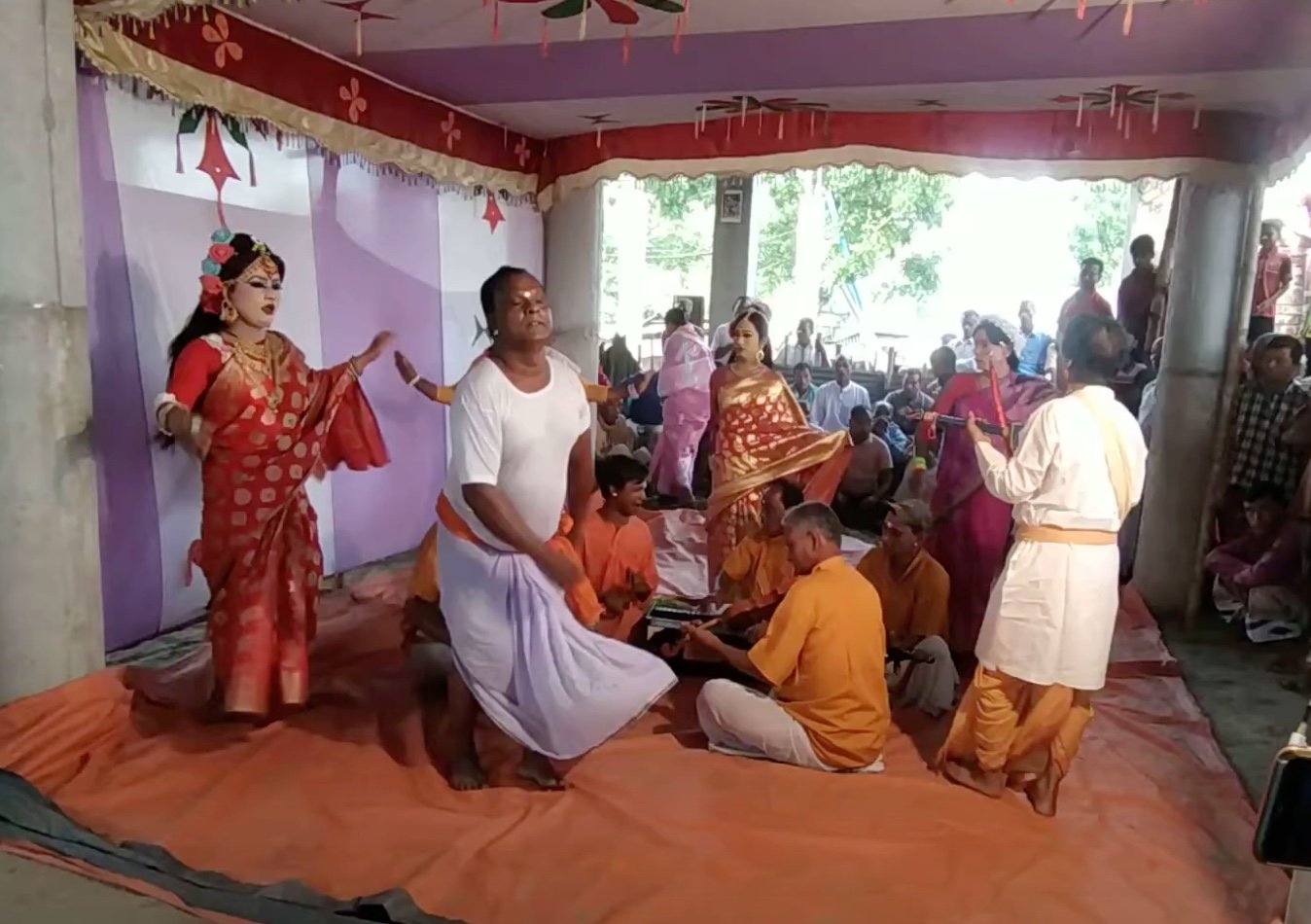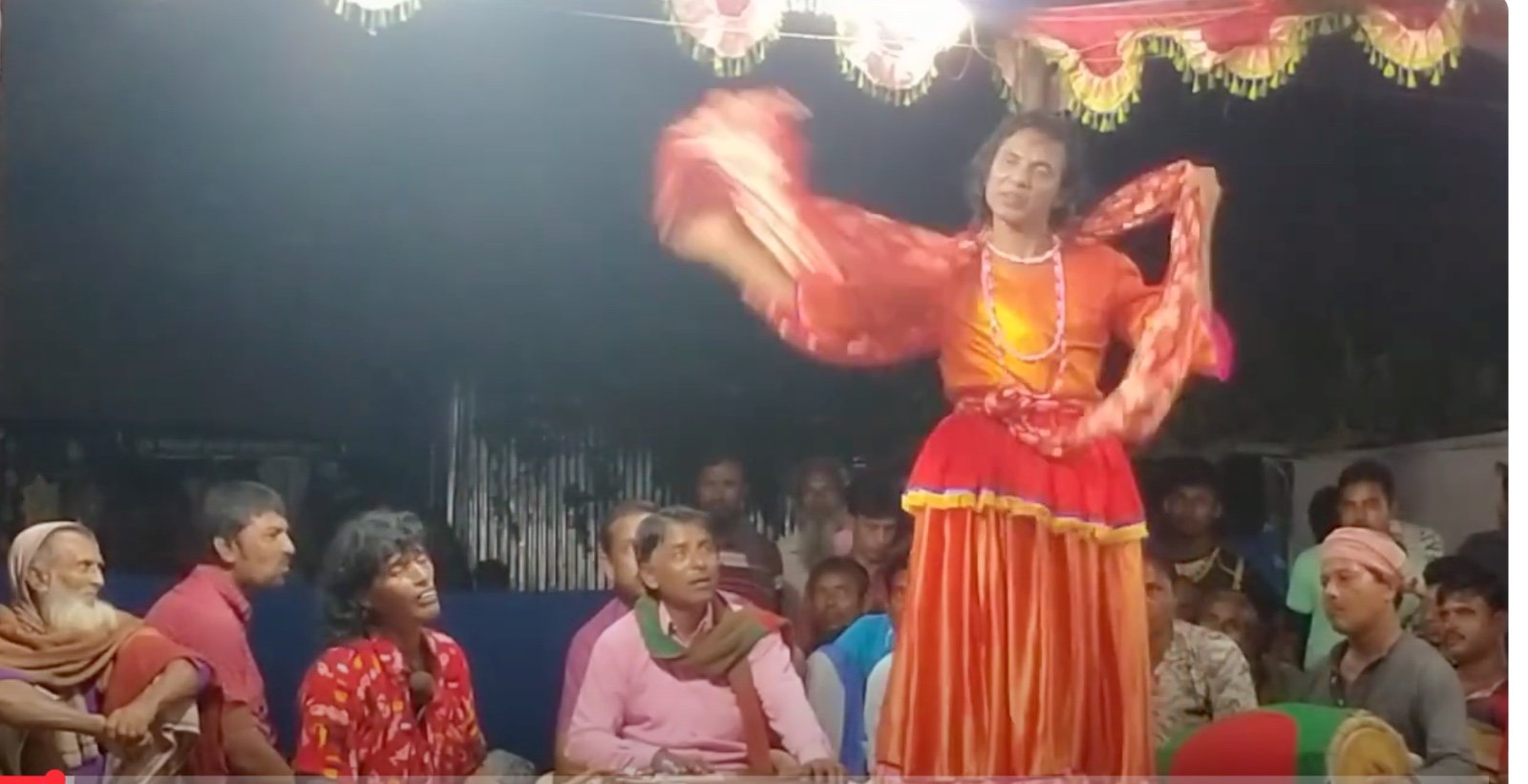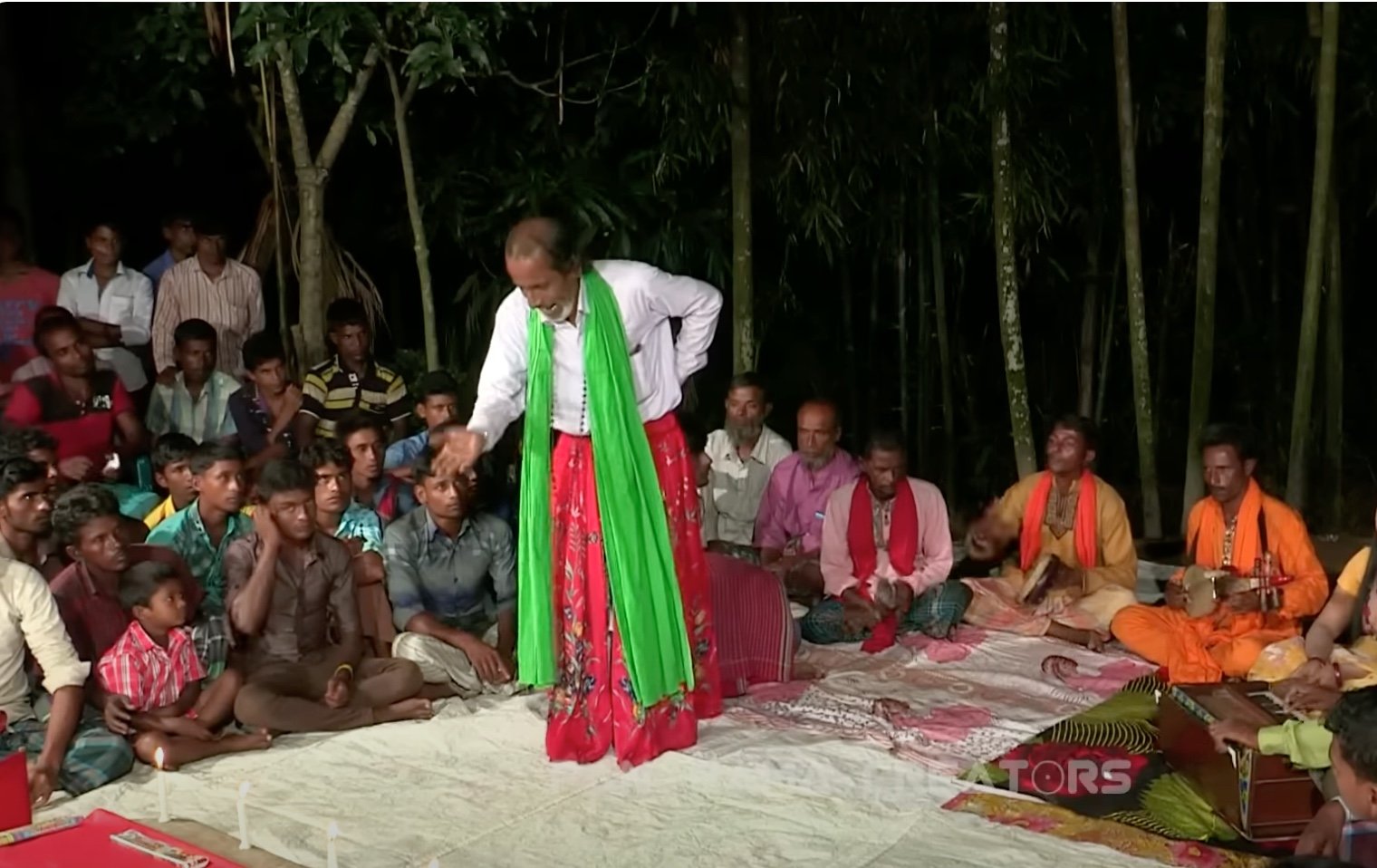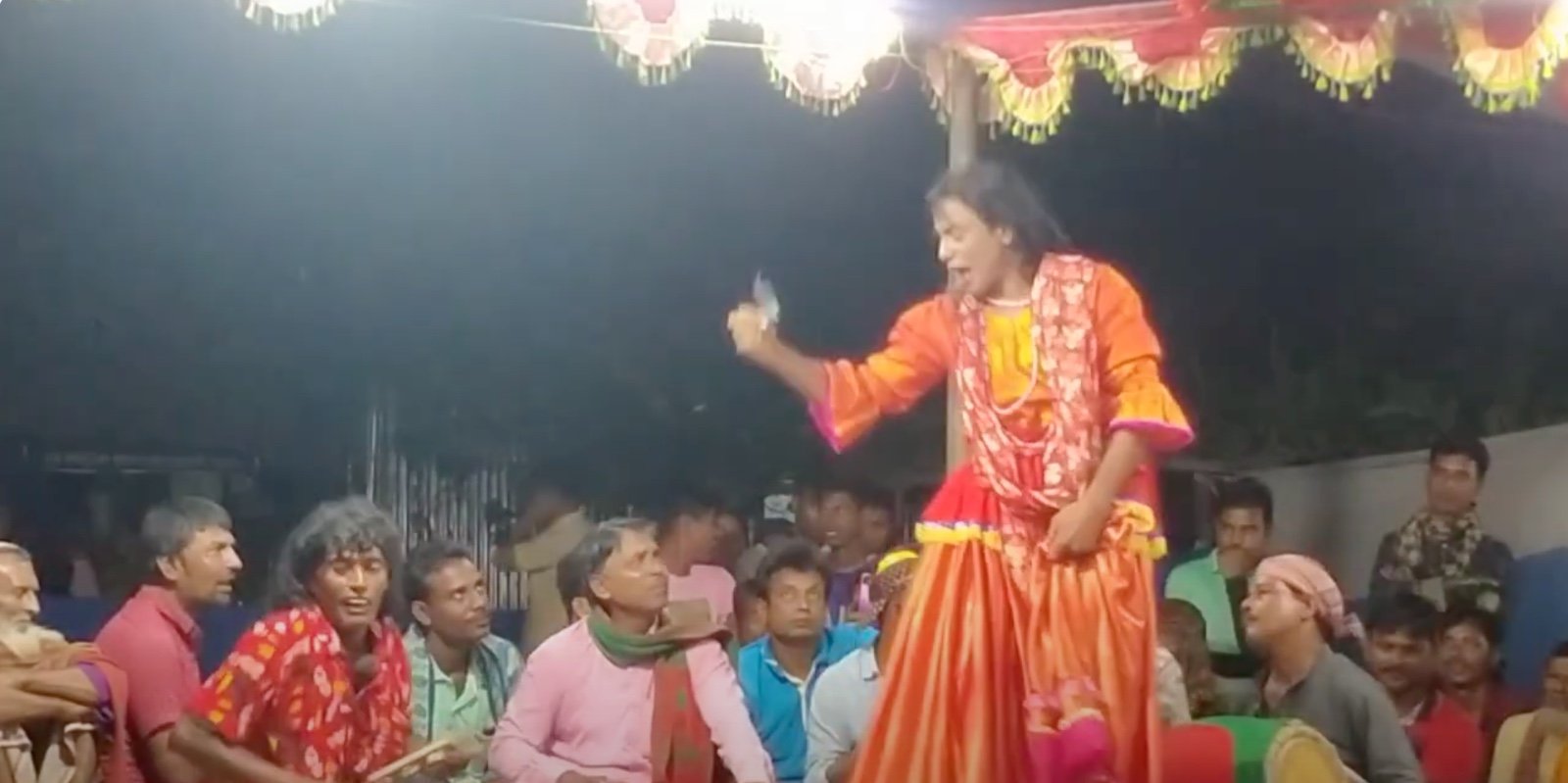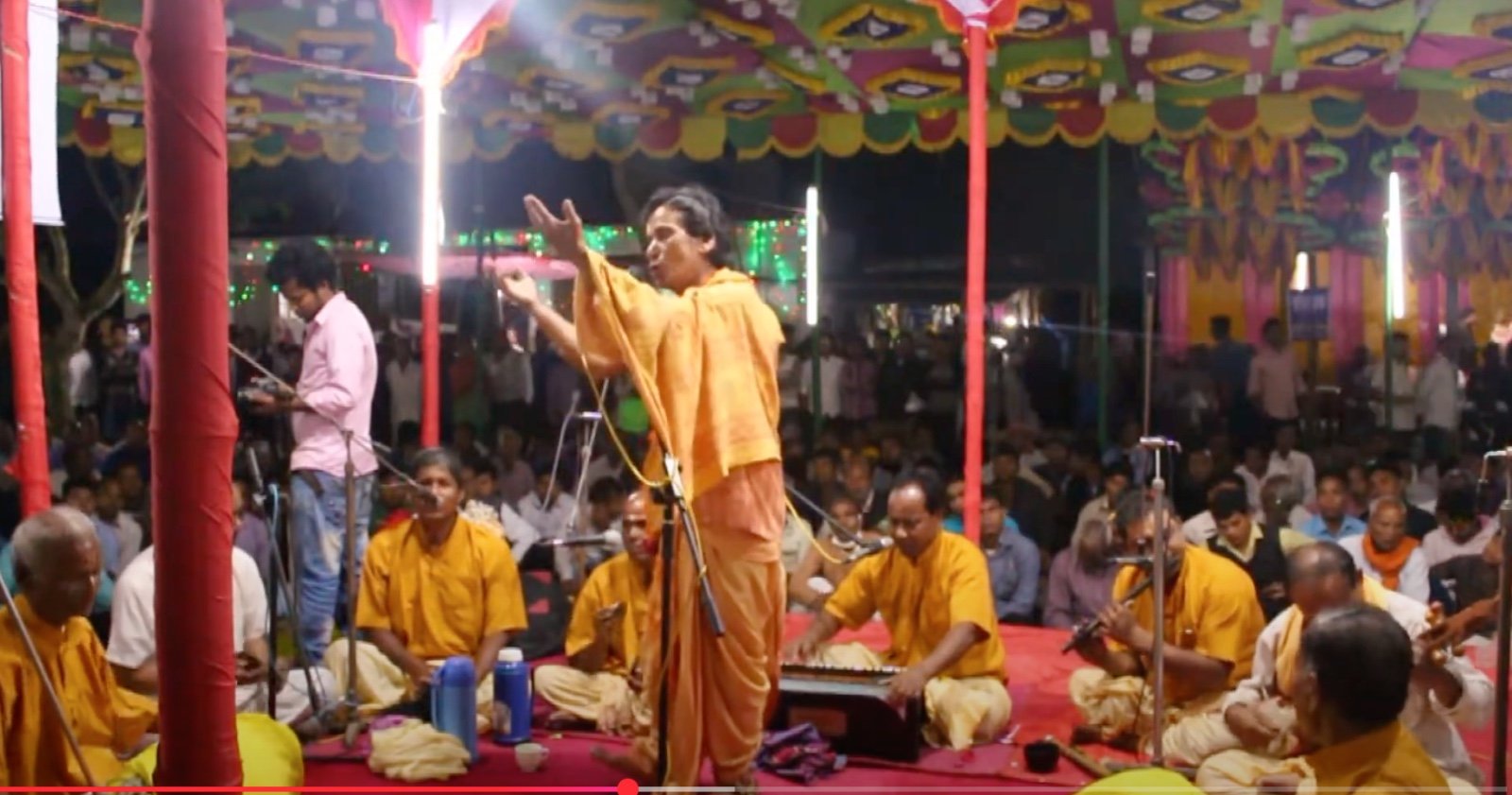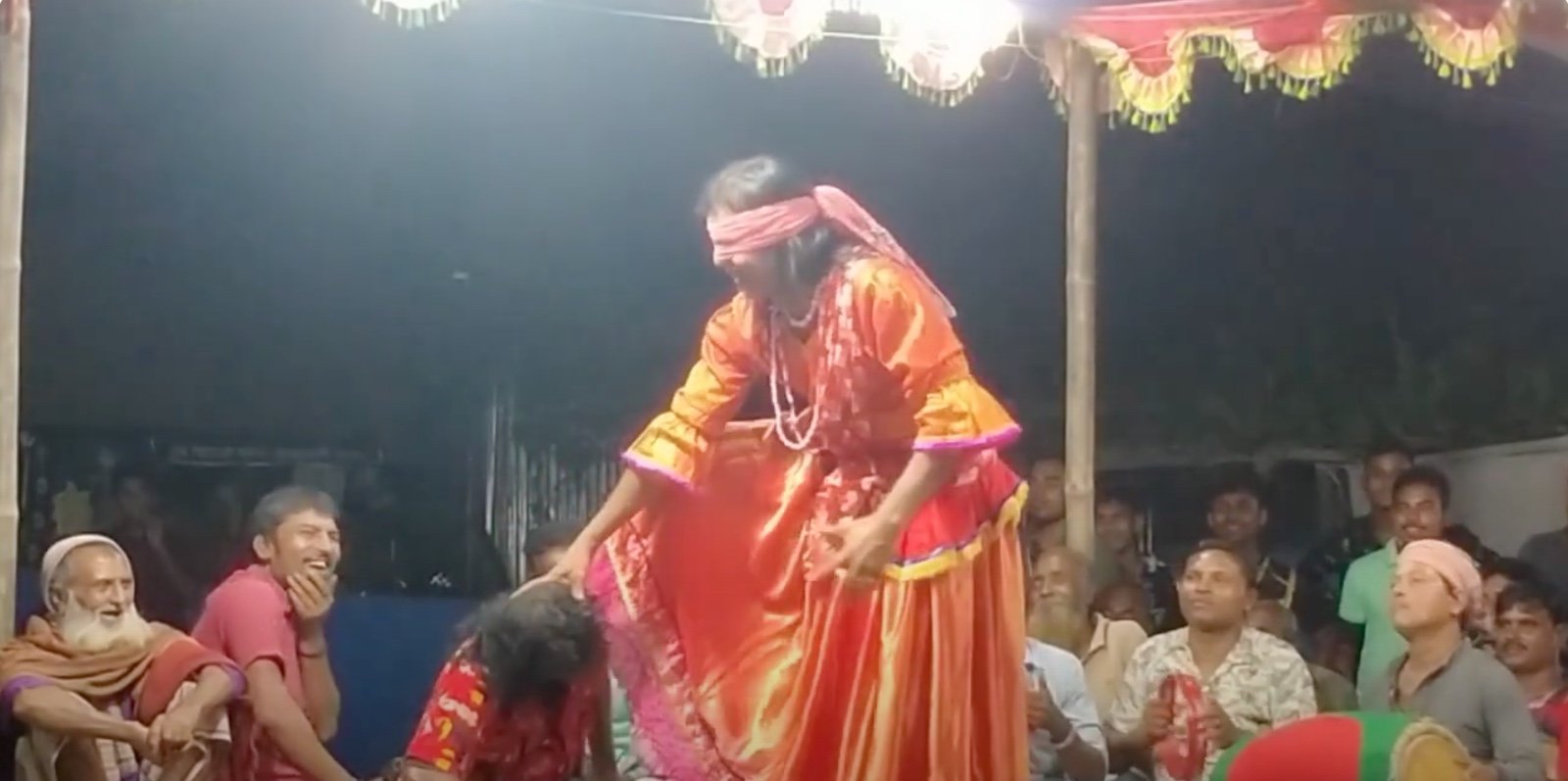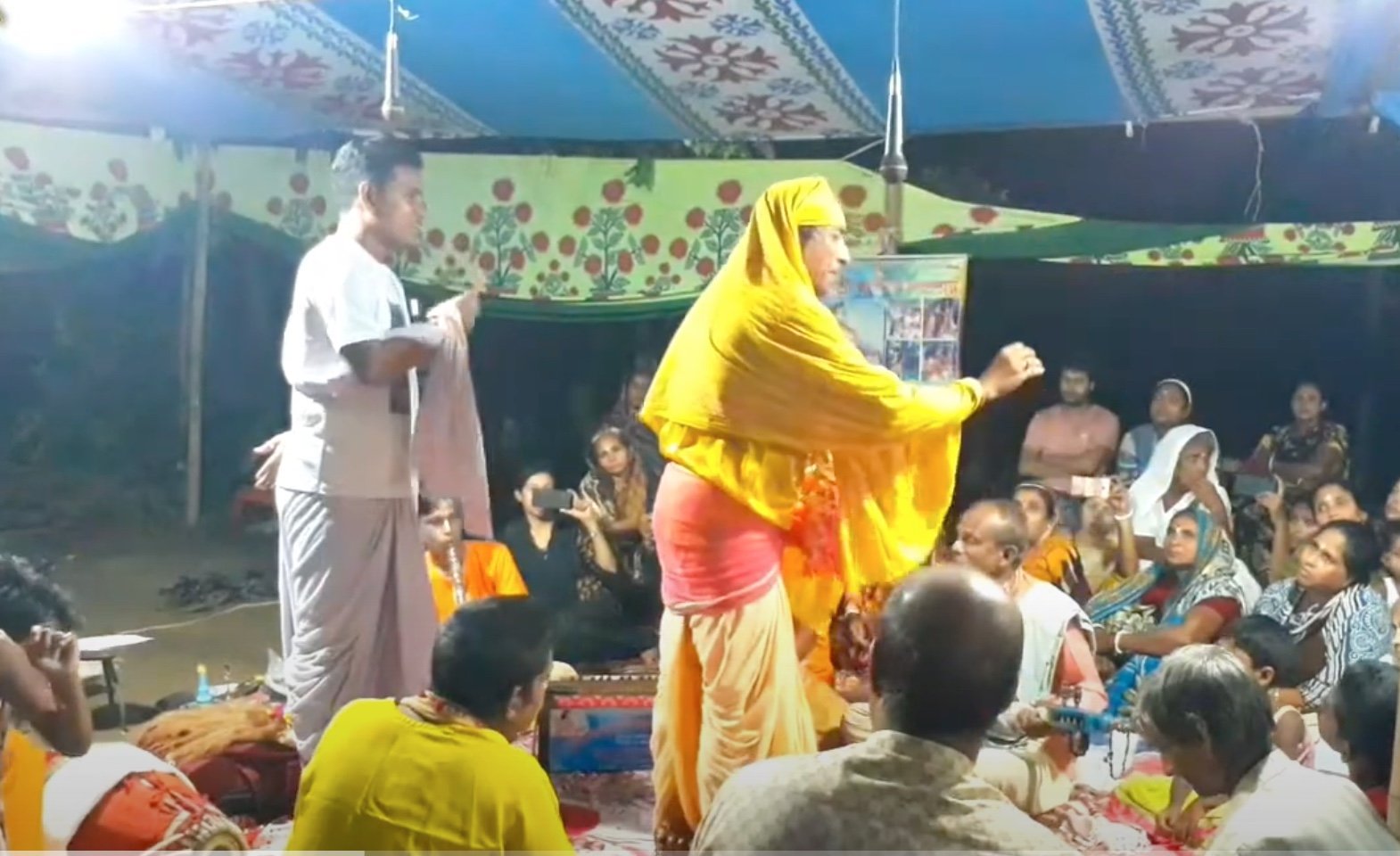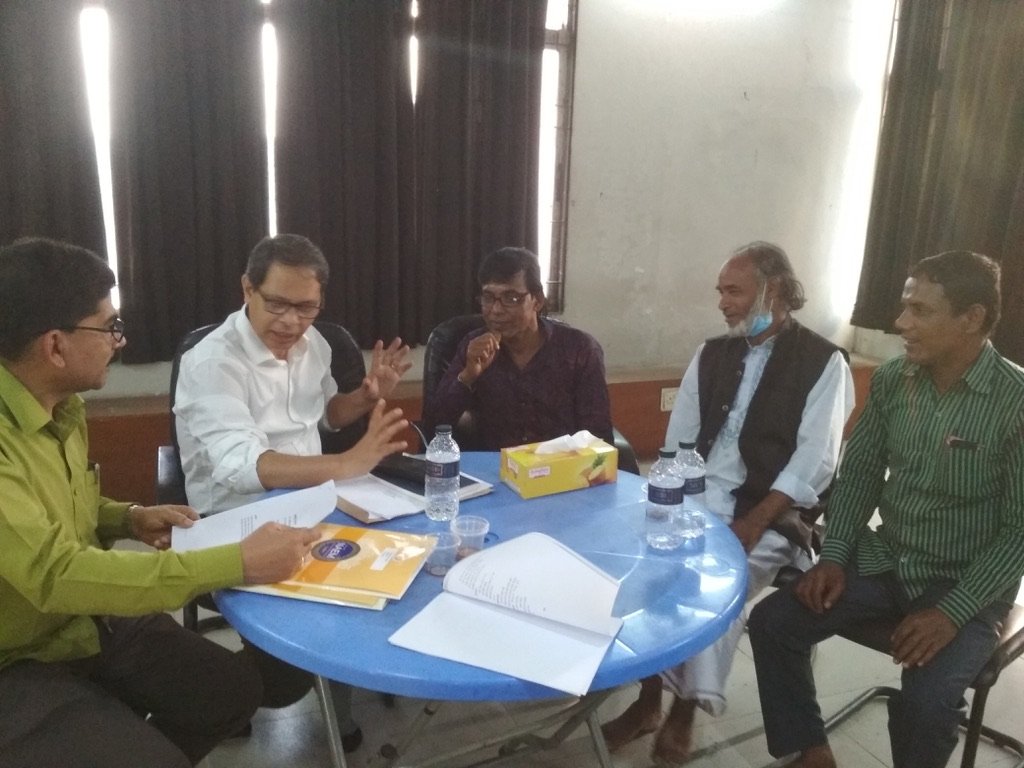Cultural Heritage Damage Assessment and Action Plan Development.
Funding and Research Organization: UNESCO Office in Dhaka.
Research Duration: August 2024 to November 2025 (Sixteen months).
Objective: To assess the impact on Bangladesh’s intangible cultural heritage resulting from the student-led mass uprising following August 5th, 2024, and to develop a comprehensive action plan for recovery and revitalization.
Methodology: Adopted a field-based participatory observation method, incorporating one-on-one interviews, focus group discussions, observation, and interactions with both primary and secondary artist communities.
Findings: The root causes of damage are identified from multiple perspectives, with particular emphasis given to physical, psychological, social, cultural, economic, and professional impacts on traditional practitioner communities. Furthermore, an inclusive recovery action plan is noted to address these multifaceted threats, damage, and challenges.
The Research on South Asian Martial Arts.
Funding and Research Organization: UNESCO (ICM)
Research Duration: June to December 2022 (Six months).
Objective: To conduct in-depth research on the traditional knowledge and practice of martial arts in Bangladesh, India, and Sri Lanka.
Methodology: Ethnographic research methods are employed to carry out field observations and analysis to explore the inherited practice system, process of knowledge transformation, and the socio-cultural significance within traditional martial arts communities in Bangladesh.
Findings: Traditional performance knowledge, presentation style and structure, training systems, practice codifications, social functions and significance, and the processes of transformation and transmission through generations are identified as key aspects of the martial arts of Bangladesh.
Transforming Energy in the Process of Chhukri Dance of Bangladesh.
Research Organization: Self-initiated project
Funding: Fine and Performing Arts Academy (Shilpakala Academy) of Bangladesh.
Research Duration: January-April 2019 (Four months)
Objective: Exploring the historical, mythical, and socio-cultural influences involved in the transformation of energy from a male to a female self, as embodied in folk theatrical performance spaces.
Methodology: Applied participant observation to examine internal transformation processes through one-on-one demonstrations and interviews.
Findings: The inherited process of gender transformation in traditional Chhukri dance is shaped by historical, mythical, and socio-cultural influences; generational practices and training; the dance’s structure and presentation styles; and traditional codes that define both the dance and its social functions.
Developing case studies and sampling methods for the process of intangible cultural heritage (ICH) inventorying.
Under the project framework of Safeguarding Intangible Cultural Heritage through the Strengthening of National Capacities in Bangladesh. This research covers two case studies: Madar Bansh (a tradition of processional performance centered on a consecrated bamboo, symbolizing the divine power of Sufi Saint Madar), and the other is Chadak, (a Hindu ritual performance where a devotee spins while hanging from a sanctified tree (Chadak) or a pole with a hook pierced in his back.
Funding and Research Organization: UNESCO Office in Dhaka
Research Duration: June to December 2018 (Six months).
Objective: To develop a Sample Method for the process of safeguarding ICH inventorying, aiming to strengthen National Capacities in Bangladesh.
Methodology: Exploratory approach through field-based observation, interactions, interviews, and discussions directly with the practitioner communities.
Findings: Two case studies, focusing on Madar Bansh and Chadak, featuring a method for sampling the process of inventorying intangible cultural heritage (ICH).
Research and Audio-Visual Documentation of Bangladesh’s Traditional Games for an Online Digital Library.
Funding and Research Organization: UNESCO Beijing and Tencent China.
Research Duration: October 2016 to March 2017 (Six months)
Objectives: To develop a methodology and guidelines for identifying, collecting, sourcing, inventorying, and characterizing traditional games in a participatory manner through ICTs and other media to create an Online Digital Library on Traditional Games from Bangladesh.
Methodology: A. Ethnographic field research is conducted with actual community members to gather traditional and customary knowledge. B. Participant observation methods are used to initiate play and participate in all relevant activities related to the game, ensuring effective documentation within the real or social context.
Findings: Collected digital/visual material on five selected games through an intensive field survey and data collection. Developed a methodology and guidelines for identifying, collecting, sourcing, inventorying, and characterizing traditional games for the Online Digital Library and Printed media.
Ethnological Theatre of Bangladesh: Examining Theatre of Marma, Manipuri, and Garo Performances.
Research Institution: University of Dhaka, Bangladesh.
Funding Organization: Bengal Foundation, Dhaka, Bangladesh.
Research Duration: 2012 to 2016 (Four years).
Objective: This study examines various forms of ethnic theatrical performance, including festive rituals, shamanic practices, ethno-religious belief-based performances, mythical storytelling, devotional dances, and acrobatic arts, with the aim of exploring ethnologically inspired tools and techniques for the training and preparation of an actor or performer.
Methodology: The ethnographic method was applied in conducting an ethnocultural performance study.
Findings: A series of training tools and techniques is identified and defined as a foundational source of practices for preparing an actor.
Performing Arts: Folk Theatre of Bangladesh
Funding and Research Institute: Asiatic Society, Bangladesh
Research Duration: June to December 2004 (Six months)
Objective: Documenting and preserving the Folk Theatrical Performance of Bangladesh.
Methodology: Applied a mixed-method approach using both primary and secondary sources through field observation and data collection.
Findings: This research involves mapping, documenting, and describing the traditional folk theatrical performances of Bangladesh. It specifically examines features such as tales from Hinduism, Buddhism, Islam, and other indigenous beliefs; stories rooted in Aryan and non-Aryan traditions; acting techniques, narratology and presentation styles distinctive to each performance; the structure of these stories and performance; the organization of performance troupes; use of performance spaces like squares, circle in the square in shape, temple yards or courtyards; use of musical instruments, song and dance forms; and the social roles and cultural significance these performances hold within believers communities.
Indigenous Theatre of Bangladesh: Performance method of supra-narrative Performance and its potentials. University of Dhaka, Bangladesh.
Funding and Research Institution: Dhaka University.
Research Duration: 2001 to 2002 (Two years)
Objective: To examine the inherited performance knowledge and the techniques of narratology embedded in super-narrative tales, myths, and legends, and to assess their potential and applicability in contemporary theatre presentation, art, and design.
Methodology: The empirical method is applied to collect hands-on evidence directly from the community.
Research Findings: Identified the narratological structure of telling the traditional stories, techniques of acting, and principles of shifting and transforming characters, functions of music, dance, and instruments in relation to the style of presentation, and the qualities of improvisations.

